Wanderlust Travel & Photos
Seeing the world one trip at a time.
- Work With Me
- Travel Journal
- Privacy Policy
- Browse by Continent
- South Africa Travel
- Tanzania Travel
- Thailand Travel
- Dominican Republic Travel
- Italy Travel
- Spain Travel
- Canada Travel
- Australia Travel
- New Zealand Travel
- Ecuador Travel
- Peru Travel
- Browse by Region
- East North Central
- East South Central
- Mid-Atlantic
- New England
- South Atlantic
- West North Central
- West South Central
- Central America
- North America
- South America
- Travel Vlog
- Instagram Photos

A Complete Guide to Zimbabwe Entrance Requirements for Visitors
LAST UPDATED: 5/10/24 – Zimbabwe Entrance Requirements for Visitors
If you are traveling to Zimbabwe from outside of the country, you should be aware of the Zimbabwe entrance requirements for visitors before you start planning your travel. If you do not meet the passport, VISA, or immunization requirements, you could be denied entry into Zimbabwe. This is not something that I would wait until the last minute to take care of as you might not have enough time to sort out any issues at the last minute should you run into them.
To assist you in making sure you meet the necessary requirements to visit Zimbabwe, I have outlined all of the requirements you need to be concerned about in this article. Furthermore, I have also created the handy checklist I linked below for you to use as a point of reference and to track all of the requirements as you meet them.
Download the Zimbabwe Entrance Requirements Checklist
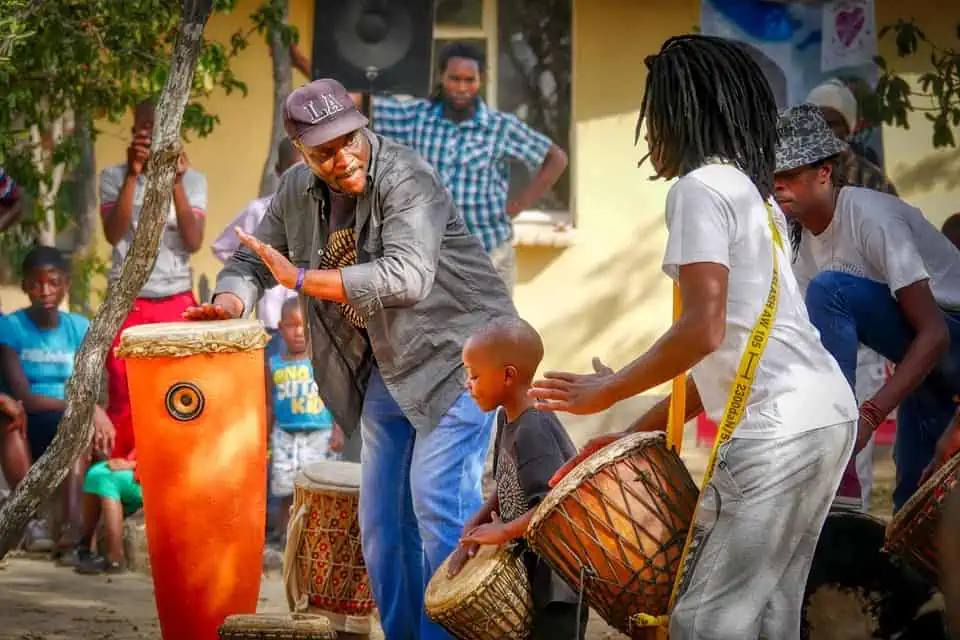
Zimbabwe Passport Requirements
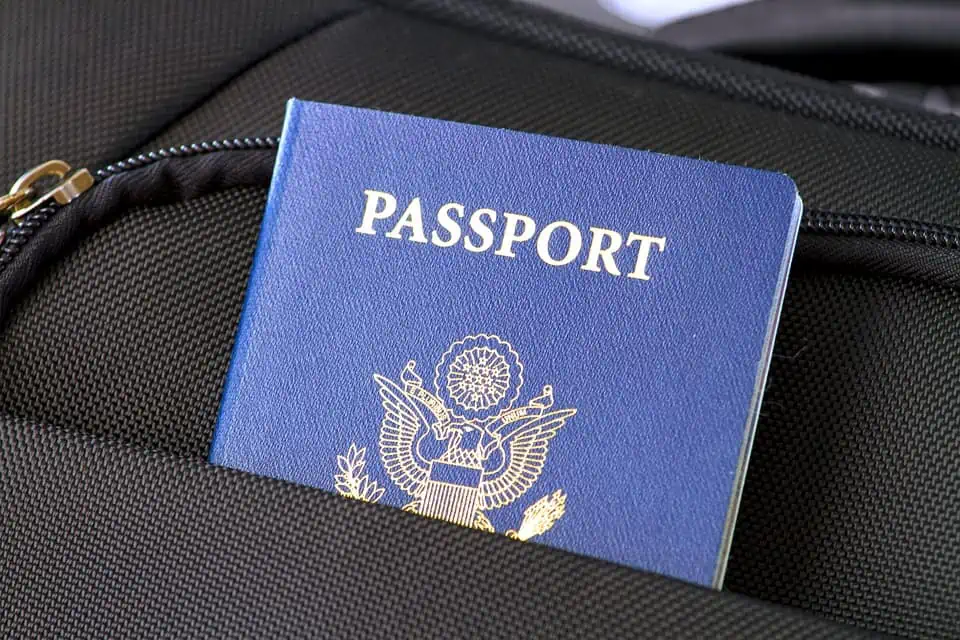
One of the most important Zimbabwe entrance requirements you will need to consider when planning your trip is the country’s passport requirements. To be allowed into Zimbabwe, not only will your passport need to be valid, but it will need to be valid for at least 6 months after your date of arrival. So, if your passport is set to expire within 6-months of your arrival date, you will need to renew your passport before you travel to Zimbabwe.
Zimbabwe VISA Requirements
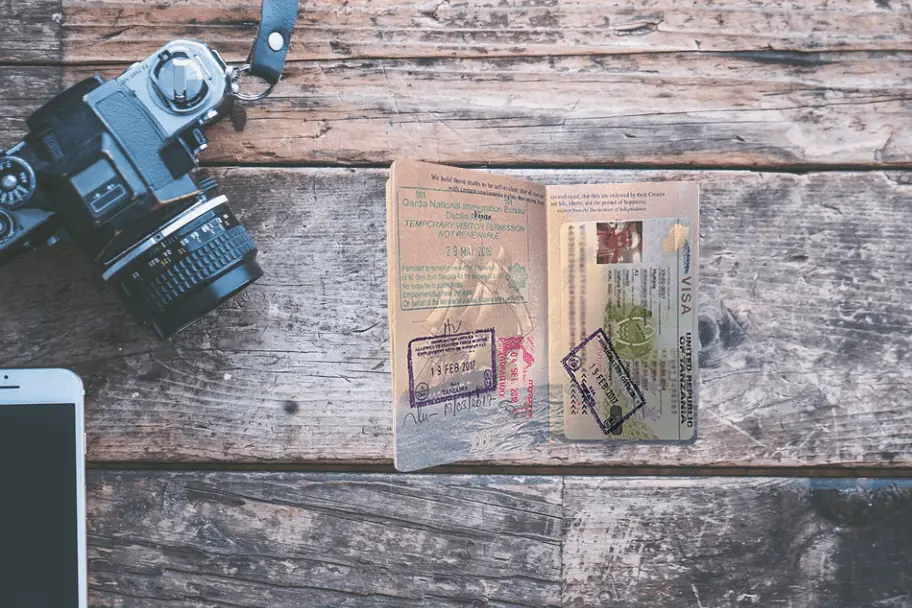
Depending on your nationality, you may or may not have to obtain a visitor VISA before being allowed to enter Zimbabwe. In addition, depending on the passport you hold, you may be able to apply for a VISA upon arrival. If this option is available to you, it is what I strongly recommend.
For travelers who are ineligible for a VISA upon arrival, you will need to coordinate your VISA before traveling to Zimbabwe. For more information on the type of VISA you will need, please see the information I have included below.
Visa Exempt Countries
If you are a passport holder from one of the following countries, you will not need a VISA to visit Zimbabwe for 3 months or less:
Visa On Arrival Eligible Countries
If you aren’t a passport holder from one of the VISA-exempt countries listed above, you must obtain a VISA before entering Zimbabwe. For those who are from countries that are eligible for a VISA upon arrival, I strongly recommend waiting to get your VISA until you arrive. I have listed the countries that are eligible for VISA upon arrival for you to review below.
Those Who Aren’t Eligible for Visa Upon Arrival
If you aren’t a passport holder of a nation that is VISA-exempt or eligible for VISA upon arrival, you will need to apply for a visitor VISA before traveling to Zimbabwe. For more information on how to apply for a visitor VISA for Zimabwe, please refer to the VISA Guide Page for Zimabwe .
Zimbabwe Immunization Requirements
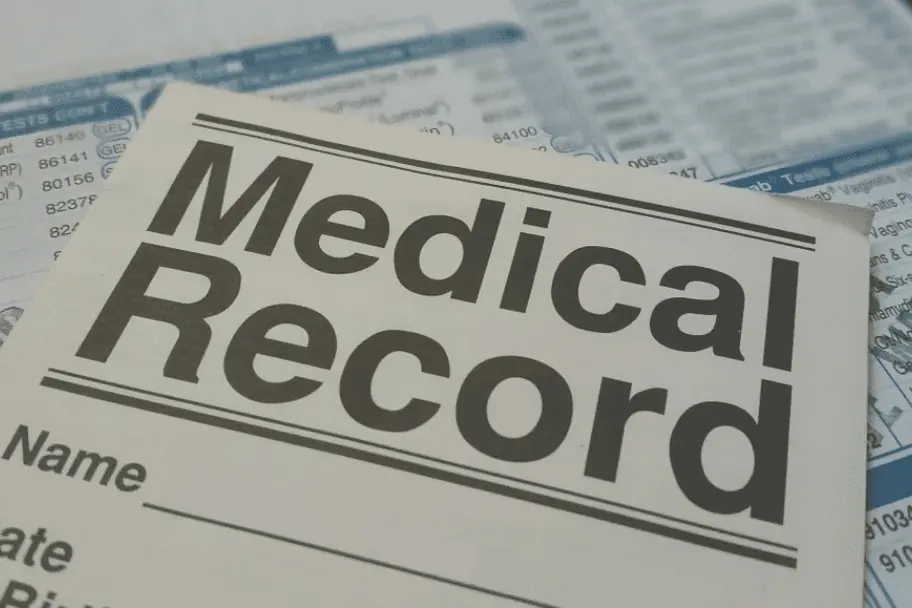
Important Note: I am not a medical doctor and do not have any medical experience. The information provided in this section is a summary of information that I got from the recommendations of the Centers for Disease Control and Prevention in the United States for travel to Zimbabwe . I am providing you this information to help bring awareness of the necessary vaccinations to you, but consultation with my guide should not replace a discussion about your travels with your doctor or a travel medical clinic.
One of the most important, and yet most often overlooked, aspects of travel is the necessary vaccinations that are required or recommended to keep you safe and healthy when you travel. Before you depart for Zimbabwe, you are going to want to make sure that you have all of the proper vaccinations.
Some of these vaccinations, like the Yellow Fever vaccination, are included in the Zimbabwe entrance requirements if you are traveling to Zimbabwe from certain high-risk locations. Other vaccinations, such as a flu shot and the Rabies vaccine, are recommended, but not required. For your convenience, I have summarized the CDC’s recommendations on vaccines and healthcare for travelers visiting Zimbabwe for you to review below.
Recommended Travel Vaccinations for Zimbabwe
There are several vaccinations that the CDC recommends that you get before traveling to Zimbabwe, which I have outlined for you below. If you are traveling to Zimbabwe from a destination where Yellow Fever is common, even if it is only a long layover, then you will be required to show proof of vaccination before you will be allowed into the country. The other vaccinations on this list are not in the Zimbabwe entrance requirements, but they are strongly recommended.
Routine Vaccinations for Zimbabwe
In addition, to the vaccinations that are recommended for travel to Zimbabwe specifically, there are other routine vaccinations that you should make sure that you are current on before traveling anywhere in this world. For an overview of the routine vaccinations recommended by the CDC, please review the chart that I have included below.
Non-Vaccine Preventable Diseases
In addition to the recommended vaccinations, there are other health precautions that you should take when traveling to Zimbabwe to avoid getting sick. While these health precautions aren’t on the list of Zimbabwe entrance requirements, they are important measures that you can take to make sure you don’t get ill while traveling.
aVOID CONTAMINATED WATER
When traveling, one of the easiest ways to get sick is to come into contact with contaminated water. Several illnesses are found in Zimbabwe that can be spread by either drinking or swimming in contaminated water. Before you depart for your trip, you will want to be aware of the illnesses below. To avoid getting sick, make sure you stick to drinking bottled water and avoid swimming in stagnant pools.
AVOID BUG BITES
Another easy way to get sick while traveling is to be bitten by bugs that carry illnesses. The most common insect that spreads diseases to humans is the mosquito, but ticks and flies can also spread serious illnesses through their bites. To make sure you don’t fall ill from an insect bite while in Zimbabwe, I would recommend bringing insect repellent and mosquito netting with you when you visit and avoid getting bitten by bugs as much as possible.
Avoid Animals
In addition to illnesses that you can contract via contaminated water and bug bites, there are also several severe illnesses that you can contract from animals in Zimbabwe. You should always avoid touching wild or domesticated animals, their waste or body fluids, and where they bed and live. According to the CDC, the following severe illnesses can be contracted from animals in Zimbabwe.
be aware of airborne AND droplet illnesses
Out of all the ways that illnesses can be spread, airborne diseases are the hardest to protect yourself against. After all, you don’t have to physically touch or be touched by an infected person or animal and there isn’t a repellant that you can spray on to avoid catching these illnesses.
This is why it is always important to be observant of those with whom you interact while traveling and make sure you don’t expose yourself to potentially harmful airborne illnesses. According to the CDC, the particular airborne illnesses that you should be aware of while traveling to Zimbabwe are as follows:
Zimbabwe Customs Restrictions
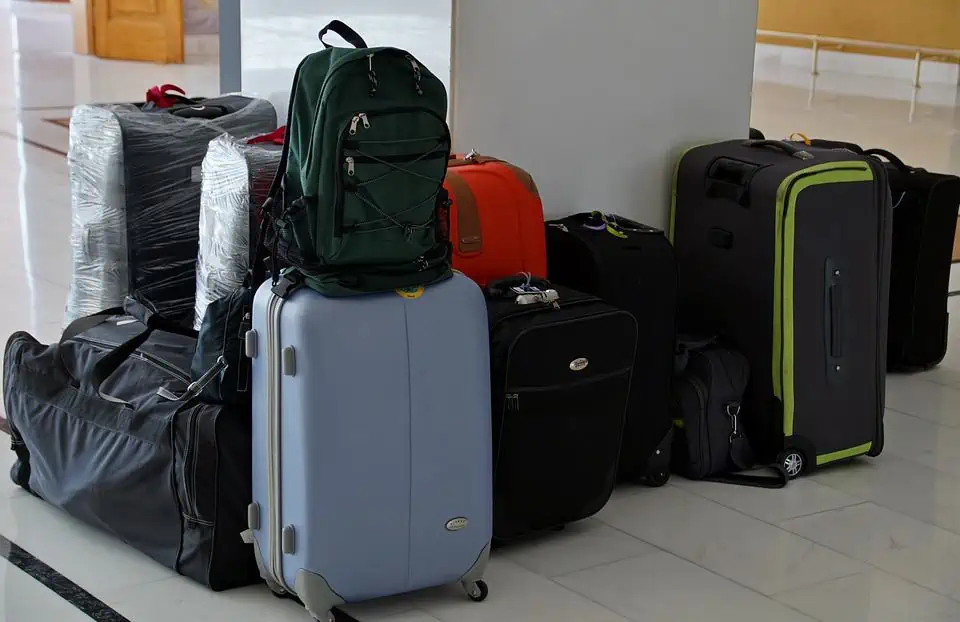
Free Import
When traveling to Zimbabwe, it is important to understand what types of items you are free to bring into the country and which items you will be charged or prohibited from bringing in. According to the VISAHQ.com , website, the following items are considered free-import items, but with limits (as described below).
- 200 cigarettes, 50 cigars, 100 cigarillos, or 500g of tobacco
- 1L of spirits (over 25% volume of alcohol) or 2L of lighter alcohol beverages (up to 25% volume of alcohol)
- Non-commercial amounts of gifts and other items for personal use
Prohibited Items
Before you will be allowed into Zimbabwe, you will also need to clear customs to be sure you aren’t carrying any prohibited items with you. For instance, travelers are strictly prohibited from bringing the following items into Zimbabwe:
- Pornography (please consider the term as used under the Islamic law)
- Counterfeit items
- Cultural artifacts and other objects of cultural importance
- Palm tree and any products thereof
- Explosive material
Controlled Items
In addition to these prohibited items, the government of Zimbabwe has placed limits on the quantity of other items that can be brought into the country. If you plan to travel with any of the following items when visiting Zimbabwe, you will want to plan accordingly so that you do not violate the Zimbabwe entrance requirements:
- Live animals – health certificate required along with complete and valid inoculations. Contact the nearest embassy to obtain permission.
- Endangered species and any products or parts thereof as outlined by CITES may be brought in only with CITES permission.
- Hunting weapons are permissible only with authorization obtainable from the Ministry of Interior. Contact the nearest embassy for more information (see Contact tab).
Zimbabwe Currency Restrictions
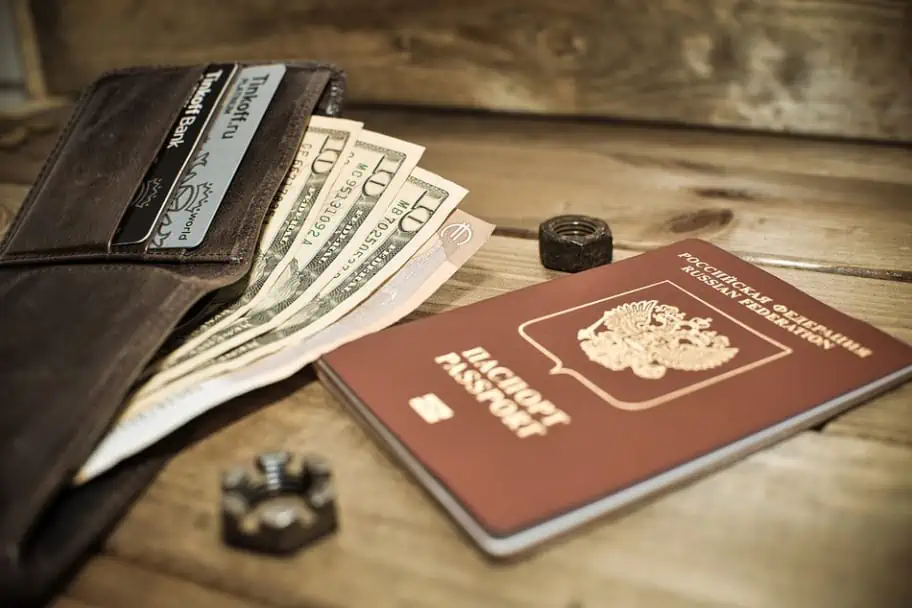
The final aspect of the Zimbabwe entrance requirements that you will want to make sure you comply with when traveling to Zimbabwe is the amount of currency you plan on bringing to the country. When visiting Zimbabwe, like all countries, you can’t just bring any amount of currency that you want into the country or leave with any amount of currency when visiting. According to the US State Department website , the government of Zimbabwe has the following currency limits and regulations in place:
- There are no currency restrictions on entry.
- There is a $2,000 currency restriction on exit unless more is declared upon entry.
IMPORTANT NOTE: There is currently a currency shortage in Zimbabwe, so make sure you have small denominations of currency with you when you visit as getting change back on purchases may not be possible. After years of hyperinflation, the country has gone back to using the US dollar as its currency, but there are limits to how much you can withdraw from banks and ATMs per day. Very few places accept international credit cards, so I would STRONGLY suggest pre-paying for as much of your travel (hotels, tours, etc..) ahead of time so that you can reserve your cash for other expenses and souvenirs.
Don’t Forget to Subscribe to My Adventures!
Type your email…

Let Me Help You Save On Your Next Adventure!
‘start exploring today’ merchandise available now.
Published by Josh Hewitt
Avid traveler and photographer who loves to see new places, meet new people, and experience new things. There is so much this world can teach us, we just need to explore! View all posts by Josh Hewitt
Related Articles

Ecuador Entrance Requirements: Everything You Need to Know

Top 15 Things to See in Ecuador: The Must-Visit Destinations

Unforgettable Experiences: The Top 25 Things to Do in South Africa
16 comments ›.
You must be getting excited! I remember being in Laos and wanting to pet a dog, but then I remembered about the advice from the doctor and had to hold back. Sounds like it’ll be the same for you there.
I am getting so excited!! It has been too long since I have been able to travel internationally. I definitely won’t be petting any dogs, even though I love them. I have read to many scary stories of travelers scrambling to find rabies vaccinations internationally. 😬
Almost all the airport/airline horror stories I’ve read have been about Europe, so hopefully everything will go smoothly for you.
Fingers crossed!! We do go thru Amsterdam on the way home, so that has me a little anxious. Direct flight from Atlanta there.
I’m flying to San Diego in two days and I’m even nervous about that. More than ever, my essentials will be going in my carry-on.
Great idea!! I might even try and go just carry-on for my international flights right now. Or at least my essentials and some clothes in case.
I wish I could. I’m a chronic overpacker. 🙁
I read about an idea I might try. Pack just clothes you want to donate and then donate them at your destination (wash first obviously). Means much less to pack on way home.
Yes, I’ve heard about that, too. I’ve never tried it but I should because it’s such a good idea (although I’ve heard that even charity shops and consignment store throw away tons of unsold clothes every year, at least in the US – kinda bursts the bubble).
I read that a lot of what people won’t buy at charity snd consignment shops in the US gets sent to Africa and Asia anyways. You bring up a great point though. I don’t want to donate to places that will just try to profit off my altruism at the expense of the needy. Might have to look into this more before my trip.
Oh, I think I gave you the wrong idea. What I was referring to was that there is just too much stuff (e.g., clothing) floating around in America. So much that even Goodwill and their ilk can’t use all of it.
Gotcha. I did not know that. 😮
- Africa Travel Blog (9/18/22): Safari in Hwange National Park October 5, 2022 • 12:00 pm
Hello! Thank you for all the information you’ve provided – we are traveling to Africa for 2 months (Sep-Oct ’24) and I’ve found many useful tips in your posts. I have a question about the VISA for Zimbabwe (we are Canadian)… ordinarily I would try to make sure I have all my VISAs before leaving home, but you mention you recommend waiting to get it on arrival. May I ask why? Thanks!
Hi there! Thank you so much for the kind words and for reading!
You certainly can get your visa ahead of time if you’d prefer. Zimbabwe does offer e-visas ( https://www.evisa.gov.zw ).
We got ours on arrival and it was a really quick process. It really didn’t delay us much at all at the airport. And I visited during the end of COVID where we had to also show our vaccination proof.
It really depends on what you are more comfortable with.
Leave a Reply Cancel reply
Thank you so much for reading and for the kind words!!
wow, thank you so much for sharing the informative article this article is really helpful thank you bottom of my…
[…] The 20 Best Travel Accessories for 2024: An Essential Guide – https://wanderlustphotosblog.com/2024/01/24/the-20-best-travel-accessories-for-2024-an-essential-gui… […]
Discover endless entertainment with KheloYar, the go-to platform for online gaming enthusiasts. Offering a diverse selection of games, from fantasy…
Discover more from Wanderlust Travel & Photos
Subscribe now to keep reading and get access to the full archive.
Continue reading
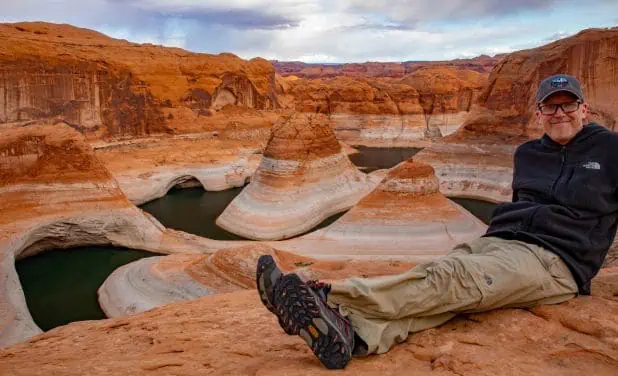
Subscribe To My Adventures!

The Ultimate Zimbabwe Travel Guide: Everything You Need to Know
Check out our Zimbabwe Travel Guide
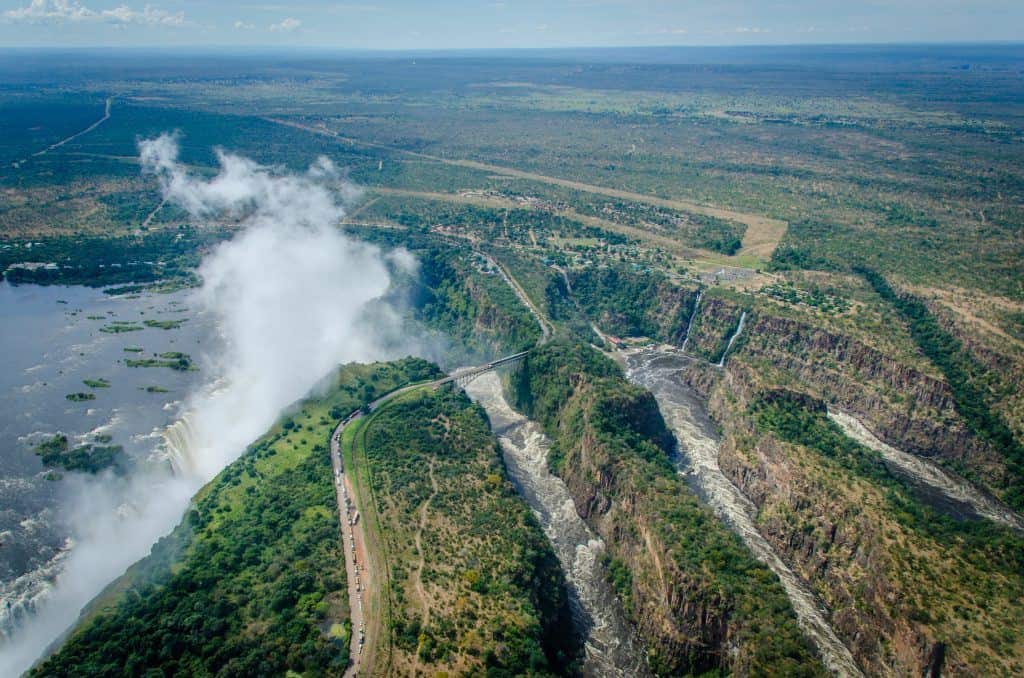
Renowned for its magnificent natural landscapes, abundance of wildlife, and cultural treasures, Zimbabwe is an incredibly diverse destination that promises exciting adventures and memorable experiences for travelers. This comprehensive guide provides key details to help you plan your perfect Zimbabwe holiday.
Key takeaways
Top sights and experiences not to miss, be awestruck at victoria falls.
- White water rafting – Ride the rapids along the Zambezi River for an exhilarating experience.
- Helicopter tours – Take to the skies for a bird’s-eye view of the falls and to feel the spray.
- Bungee jumping – Leap off Victoria Falls Bridge connecting Zimbabwe and Zambia for the thrill of a lifetime.
Discover Great Zimbabwe Ruins
The ancient city of Great Zimbabwe thrived between the 11th and 15th centuries as the heart of trade and ceremonies in the medieval era. The magnificent stone wall ruins provide evidence of the sophisticated early Shona civilization that inhabited the area. Take a guided tour for fascinating insight into the history, society and architecture.
Go on Incredible Safaris

Renowned as one of Africa’s premier safari destinations, Zimbabwe boasts superb national parks teeming with diverse wildlife. Top safari experiences include:
- Hwange National Park – Zimbabwe’s largest park with huge herds of elephants and excellent game viewing.
- Mana Pools National Park – Remote wilderness perfect for walking safaris and canoeing to observe elephants, lions, wild dogs and more up close.
- Matobo National Park – Home to endangered black and white rhinos along with over 3,500 ancient Bushman rock paintings.
- Gonarezhou National Park – Off the beaten track park with iconic baobab trees and diverse antelope species.
Take a Houseboat Safari on Lake Kariba
The stunning Lake Kariba offers pristine landscapes and relaxing houseboat cruises to observe hippos, crocodiles and elephants along the shores and islands. It’s a peaceful alternative to traditional safaris.
Visit Mystical Matobo National Park
A UNESCO World Heritage Site, Matobo National Park contains unique granite domes, wooded valleys, and impressive balancing rock formations. It houses ancient Bushman cave paintings and diverse wildlife like the endangered black and white rhino.
Experience the Power of the Zambezi River
The mighty Zambezi River powers the iconic Victoria Falls and offers spectacular white water rafting excursions including family friendly options. For a more relaxed experience, enjoy a sunset cruise on the river.
Best Time to Visit Zimbabwe
- April to October – The peak dry season brings warm, sunny days ideal for wildlife viewing on safaris and adventure activities at Victoria Falls.
- May to July – Cooler temperatures and Victoria Falls at full flood capacity make these months a great option to avoid crowds.
- November to March – The wet season has hotter weather with dramatic afternoon thunderstorms. Abundant migratory birdlife and newborn animals.
Top Destinations and Attractions
Hwange national park.
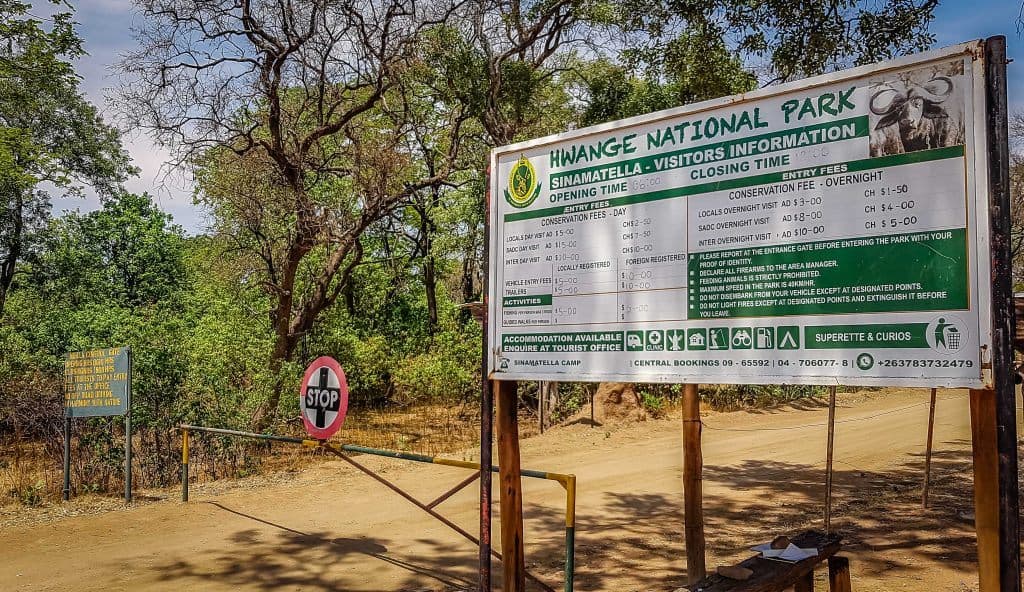
Boasting over 100 mammal and 400 bird species, Hwange is Zimbabwe’s top national park. It harbors one of the largest elephant populations in Africa, estimated at over 40,000! The park offers exceptional opportunities for safaris and sightings of lions, buffaloes, leopards, wild dogs, giraffes, zebras and more.
Zimbabwe’s second largest city, Bulawayo contains historical landmarks like the Natural History Museum, local markets and the Chipangali Wildlife Orphanage where injured animals are rehabilitated. Nearby destinations like Matobo National Park and the Khami Ruins archaeological site can be visited on day trips.
Mana Pools National Park
Bordering the Zambezi River, the remote wilderness of Mana Pools National Park allows for adventures like canoeing safaris to observe hippos, crocodiles and plentiful birdlife. Walking safaris provide incredible views of wildlife including elephants, lions and African wild dogs in their natural habitat.
Great Zimbabwe Ruins
The granite stone ruins at Great Zimbabwe provide evidence of an ancient prosperous city that was once the hub of trade for the Kingdom of Mutapa during the country’s Late Iron Age. The site spans over 720 hectares and the ruins have been declared a UNESCO World Heritage Site.
Zimbabwe’s Welcoming and Vibrant Culture
Beyond the natural attractions, Zimbabwe’s friendly people and culture make a visit to the country incredibly rewarding. Here are some memorable cultural experiences for travelers:
- Try dishes like sadza (ground maize porridge) and tsunga (meat and vegetable stew) and interact with local vendors at markets.
- Learn about ancient Shona traditions and ways of life on tours of rural villages.
- Shop for stone sculptures, wood carvings, basketry and textiles crafted by local artisans.
- Attend vibrant music and dance performances showcasing Zimbabwe’s talented artists.
- Visit community-based tourism projects supporting local livelihoods through conservation, farming and other initiatives.
Essential Information for Your Trip
- US dollars are widely accepted in Zimbabwe. Carry small denominations for purchases and tipping.
- Apply for visas in advance through eVisa or at the nearest Zimbabwean Embassy/Consulate.
- Pack lightweight, neutral clothing. Bring rain protection, hats, insect repellent and warm layers for early morning game drives.
- Drink bottled water only and take precautions against malaria when visiting rural areas and parks.
- Follow guide instructions closely during activities for safety. Give animals ample space.
- Take advantage of tour companies that support local communities and conservation efforts.
Start Planning Your Dream Trip!
With its magnificent landscapes, abundant wildlife and cultural treasures, Zimbabwe promises an unforgettable adventure. Use this guide to start planning your idyllic Zimbabwe getaway! Reach out to reputable tour operators like The Grown-up Travel Company for customized itineraries or to arrange complete package deals. Alternatively, connect with an Africa travel specialist for expert advice tailored to your interests and budget. The wonders of Zimbabwe await!
I know what it's like to go from being a crazy backpacker without a care in the world, via being a vaguely sensible parent to being an adventurer once more. In other words, evolving into a Grown-up Traveller.
Like everyone else, I love to travel, have visited a lot of countries and all that but my big thing is Africa.
I also own and run The Grown-up Travel Company as a travel designer creating personalised African itineraries for experienced adventurers
Related Posts
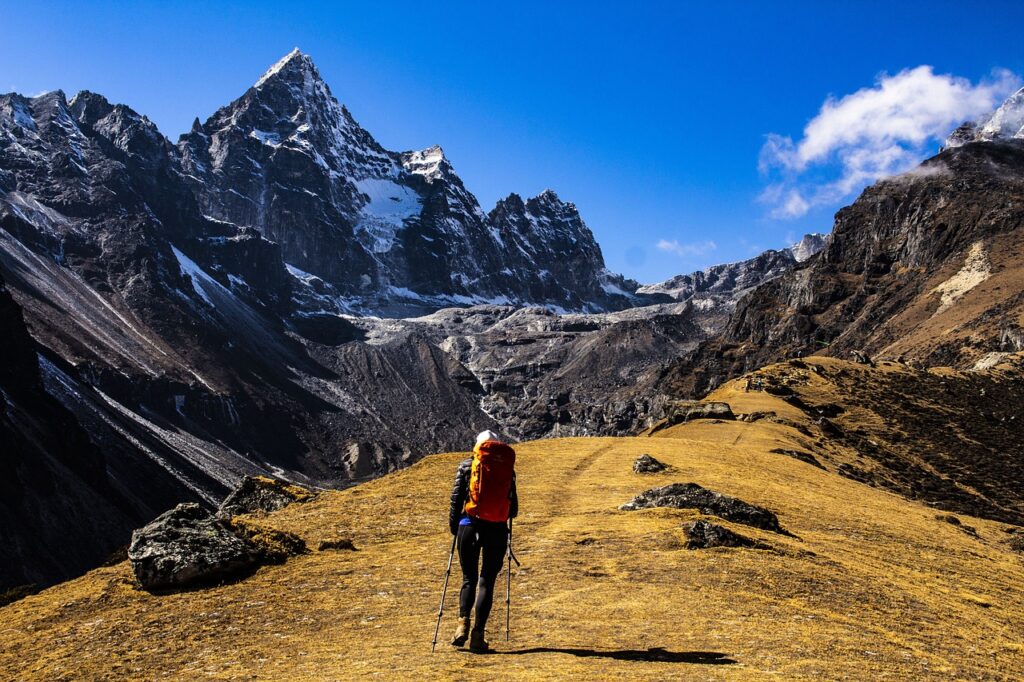
What you need to know about an Everest Base Camp trek
- 20 June 2024

What Kind of Holidays Should You Go on as a Solo Traveller?

Destinations on Your Bucket List To Visit by Private Jet
- 19 June 2024
Leave a Reply Cancel Reply
Your email address will not be published. Required fields are marked *
Name *
Email *
Add Comment *
Save my name, email, and website in this browser for the next time I comment.
Post Comment
This site uses Akismet to reduce spam. Learn how your comment data is processed .
Cookies on GOV.UK
We use some essential cookies to make this website work.
We’d like to set additional cookies to understand how you use GOV.UK, remember your settings and improve government services.
We also use cookies set by other sites to help us deliver content from their services.
You have accepted additional cookies. You can change your cookie settings at any time.
You have rejected additional cookies. You can change your cookie settings at any time.
Warnings and insurance
Before you travel.
No travel can be guaranteed safe. Read all the advice in this guide. You may also find it helpful to:
- see general advice for women travellers
- read our guide on disability and travel abroad
- see general advice for LGBT+ travellers
- read about safety for solo and independent travel
- see advice on volunteering and adventure travel abroad
Travel insurance
If you choose to travel, research your destinations and get appropriate travel insurance . Insurance should cover your itinerary, planned activities and expenses in an emergency.
About FCDO travel advice
The Foreign, Commonwealth & Development Office ( FCDO ) provides advice about risks of travel to help you make informed decisions. Find out more about FCDO travel advice .
Follow and contact FCDO travel on Twitter , Facebook and Instagram . You can also sign up to get email notifications when this advice is updated.
Related content
Is this page useful.
- Yes this page is useful
- No this page is not useful
Help us improve GOV.UK
Don’t include personal or financial information like your National Insurance number or credit card details.
To help us improve GOV.UK, we’d like to know more about your visit today. Please fill in this survey (opens in a new tab) .

- Factsheet: Facts about Zimbabwe’s power situation -
- Moneypox Alert! -
- Fact Check: No, EcoCash has not opened a WhatsApp crypto-currency trading platform -
- Factsheet: How bad should it get – Zimbabwe traffic management, road safety? -
- Fact Check: Zimbabwean women and facts on agricultural land ownership -
FACTSHEET: What travelers to Zimbabwe should know about the country’s COVID-19 regulations
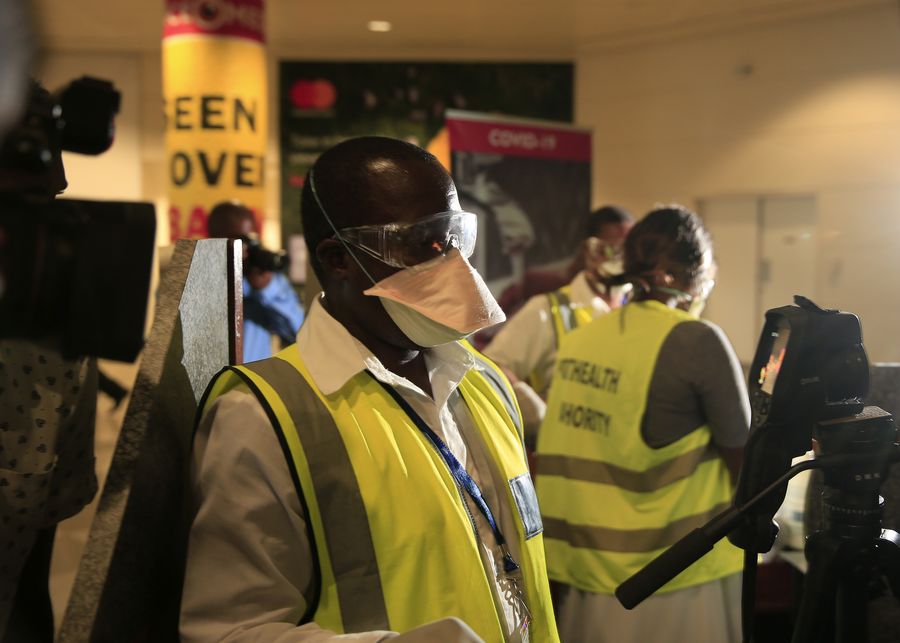
Zimbabwe first imposed travel restrictions, in response to COVID-19, in March 2020. The regulations have, since then, been frequently changed depending on the Government of Zimbabwe’s response to the spread of the pandemic.
Ahead of the festive season, here is what you need to know about the current travel regulations.
All land borders were opened from December 1, 2020. International arrivals are also allowed through Robert Gabriel Mugabe Airport in Harare, the Joshua Mqabuko Nkomo Airport in Bulawayo, and the Victoria Falls Airport.
COVID-19 test certificates
A Zimbabwean citizen or returning resident arriving in the country must have a certificate showing that they had a negative COVID-19 PCR test in the previous 48 hours. If they have this certificate, they can be allowed to go home for self-quarantine.
A citizen or resident who arrives without the PCR test certificate, or showing any symptoms, will be kept at a holding facility until they take a COVID-19 test. They will have to pay US$60 for the test . If they test negative, they are released. If they test positive, they must be isolated at a government-approved facility for 14 days.
Regulations for foreign nationals
A foreign national is also required to show a negative COVID-19 PCR test done in the last 48 hours. A foreign person who arrives without the 48-hour test will not be allowed to enter Zimbabwe. There is no option for quarantine or testing at the port in this case. A foreigner who shows COVID-19 symptoms on arrival will also be denied entry.
Contact tracing
Travellers may be required to fill out track and trace information on arrival in Zimbabwe.
Boarding flights
For passengers leaving Zimbabwe, nobody is allowed on a flight unless they have a negative COVID-19 PCR test certificate issued within 48 hours of departure.
There is a curfew in effect, which starts at 10PM and ends at 6AM.
Masks are mandatory. According to regulations, everyone must wear a face mask, which can be a homemade cloth, as long as it covers the nose and mouth.
According to a Cabinet directive issued on December 1, all gatherings are limited to 100 people.
Holiday resorts, restaurants
Holiday resorts and restaurants remain open, subject to COVID-19 regulations such as social distancing and regular disinfection. Restaurants can open until 8PM. Inter-city travel is also allowed.
Do you want to use our content? Click Here

Mthuli Ncube falsely claims there were only US$40m bank deposits under GNU
Is Prof Ngwenya’s right about Bulawayo’s COVID-19 positivity rate?

Gender-based violence – So who is beating who?

Why facts matter?

Fact-check it!

Have three Air Zimbabwe planes vanished?

FACT CHECK: Are power cuts now ‘a thing of the past’ in Zambia?

Are 70% of Zimbabwean men raising children not their own? No, it’s not true.

FACT CHECK: Has RBZ banned forex cash withdrawals from FCAs?

Is Zimbabwe the only country in the world that doesn’t have its own currency?

FACTSHEET: Corporal punishment, pregnancy and the new Education Bill

Do the majority of young women think it is acceptable for women to be beaten up by their intimate partners? Yes, they do
Zimbabwe Travel Restrictions
Traveler's COVID-19 vaccination status
Traveling from the United States to Zimbabwe
Open for vaccinated visitors
COVID-19 testing
Not required
Not required for vaccinated visitors
Restaurants
Not required in public spaces, enclosed environments and public transportation.
Zimbabwe entry details and exceptions
Ready to travel, find flights to zimbabwe, find stays in zimbabwe, explore more countries on travel restrictions map, destinations you can travel to now, dominican republic, netherlands, philippines, puerto rico, switzerland, united arab emirates, united kingdom, know when to go.
Sign up for email alerts as countries begin to open - choose the destinations you're interested in so you're in the know.
Can I travel to Zimbabwe from the United States?
Most visitors from the United States, regardless of vaccination status, can enter Zimbabwe.
Can I travel to Zimbabwe if I am vaccinated?
Fully vaccinated visitors from the United States can enter Zimbabwe without restrictions.
Can I travel to Zimbabwe without being vaccinated?
Unvaccinated visitors from the United States can enter Zimbabwe without restrictions.
Do I need a COVID test to enter Zimbabwe?
Visitors from the United States are not required to present a negative COVID-19 PCR test or antigen result upon entering Zimbabwe.
Can I travel to Zimbabwe without quarantine?
Travelers from the United States are not required to quarantine.
Do I need to wear a mask in Zimbabwe?
Mask usage in Zimbabwe is not required in public spaces, enclosed environments and public transportation.
Are the restaurants and bars open in Zimbabwe?
Restaurants in Zimbabwe are open. Bars in Zimbabwe are .
- Travel Advisories |
- Contact Us |
- MyTravelGov |
Find U.S. Embassies & Consulates
Travel.state.gov, congressional liaison, special issuance agency, u.s. passports, international travel, intercountry adoption, international parental child abduction, records and authentications, popular links, travel advisories, mytravelgov, stay connected, legal resources, legal information, info for u.s. law enforcement, replace or certify documents.
Share this page:
Zimbabwe Travel Advisory
Travel advisory june 27, 2023, zimbabwe - level 2: exercise increased caution.
Reissued after periodic review with updates to crime and civil unrest information.
Exercise increased caution in Zimbabwe due to crime and official harassment of U.S. citizens.
Country Summary : Opportunistic crime, such as pickpocketing, theft, and smashing of car windows with intent to steal, is common. Violent crime, such as assault, carjacking, and home invasion, also occurs. Criminals often target foreigners and residents suspected of having large sums of cash.
Demonstrations may occur and increase in frequency around political events, such as elections. Large gatherings are often restricted by the government and can quickly escalate to violence.
Foreigners, journalists, and non-governmental organizations may be subject to heightened scrutiny in Zimbabwe.
Read the country information page for additional information on travel to Zimbabwe.
If you decide to travel to Zimbabwe:
- Stay alert and avoid openly displaying cash.
- Carry a copy of your passport and visa and leave originals in your hotel safe.
- Stay away from political rallies, demonstrations, and crowds.
- Monitor local media for breaking events and be prepared to adjust your plans.
- Keep travel documents up to date and easily accessible.
- Enroll in the Smart Traveler Enrollment Program (STEP) to receive Alerts and make it easier to locate you in an emergency.
- Follow the Department of State on Facebook and Twitter .
- Review the Country Security Report for Zimbabwe.
- Prepare a contingency plan for emergency situations. Review the Traveler’s Checklist .
- Visit the CDC page for the latest Travel Health Information related to your travel.
Travel Advisory Levels
Assistance for u.s. citizens, zimbabwe map, search for travel advisories, external link.
You are about to leave travel.state.gov for an external website that is not maintained by the U.S. Department of State.
Links to external websites are provided as a convenience and should not be construed as an endorsement by the U.S. Department of State of the views or products contained therein. If you wish to remain on travel.state.gov, click the "cancel" message.
You are about to visit:

Search Smartraveller

Latest update
Exercise a high degree of caution in Zimbabwe due to the threat of crime and the risk of civil unrest.
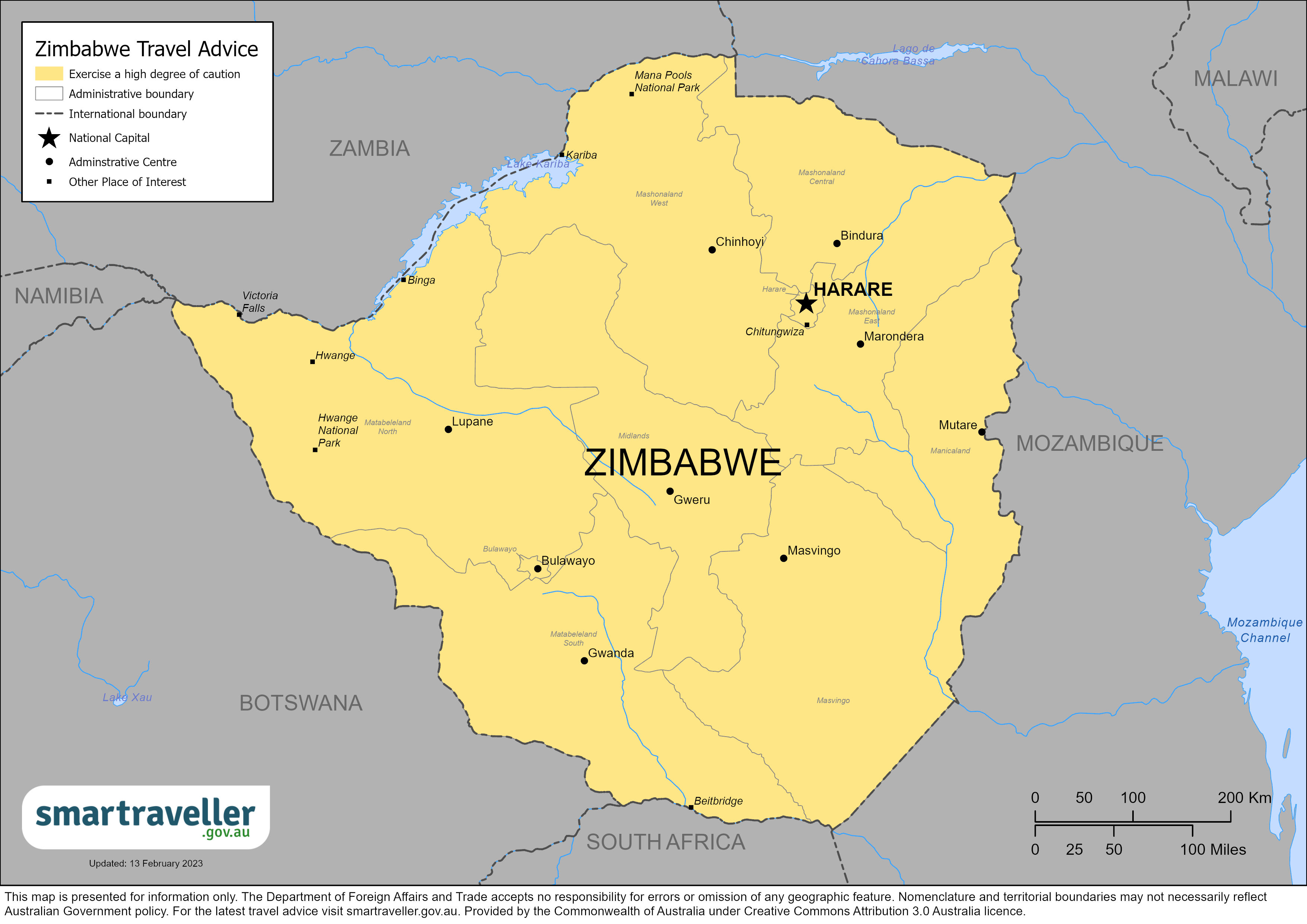
Zimbabwe (PDF 760.95 KB)
Africa (PDF 1.77 MB)
Local emergency contacts
Fire and rescue services, medical emergencies.
Call 999 or go to a hospital.
Call 999 or Harare Central Police Station on 777 777 or visit the nearest police station.
Advice levels
Exercise a high degree of caution in Zimbabwe.
Exercise a high degree of caution in Zimbabwe due to the threat of crime and the risk of civil unrest.
- The security situation can be volatile. There may be food, water, medicine and fuel shortages, sometimes at short notice. Essential services, such as the electricity supply, can be unreliable. Communication networks can also be weak and unreliable.
- Demonstrations and protests in Zimbabwe can be unpredictable and may turn violent quickly. Avoid activities that could be considered political and stay away from protests and demonstrations. During periods of unrest, monitor local media, avoid affected areas and follow advice from local authorities.
- Violent crime, such as assault and armed robbery, occurs. The risk increases at night, in city centres and open areas such as parks and fields. Keep your accommodation locked, even when you're in it. Don't walk at night. Petty crime, such as mugging and bag snatching, is common. Don't carry bags that are easy to snatch.
- Land confiscation, wildlife poaching and violence against farmers have caused unrest. Get up-to-date security advice before you visit national parks, game farms, lodges or hunting areas.
- Theft from vehicles is common. Thieves target cars stopped at intersections, especially on the way to and from Harare Airport. Minimise the amount of time you have to stop. Approach red lights slowly. Keep vehicle doors locked and windows up.
- Flooding and extreme weather can occur during the rainy season from November to April. Infrastructure damaged by flooding and extreme weather can take many years to be repaired.
Full travel advice: Safety
- Malaria is a risk everywhere in Zimbabwe except in Harare and Bulawayo. Consider taking anti-malarial medication. Other parasitic and insect-borne diseases that occur include filariasis and schistosomiasis. Ensure your accommodation is insect-proof. Use insect repellent.
- The rate of HIV/AIDS infection is very high. Take precautions if you're engaging in activities that expose you to the risk of infection.
- Outbreaks of foodborne, waterborne, and other infectious diseases also occur. These include typhoid, hepatitis, tuberculosis and cholera. Parts of Zimbabwe (including Harare) are currently experiencing a cholera outbreak. Drink only boiled or bottled water. Avoid raw or undercooked food. Ensure your vaccinations are up-to-date. Don't swim in lakes and rivers due to the risk of waterborne diseases.
- The standard of medical facilities is generally poor to average. Outside of Harare and Bulawayo, facilities are even more limited. Public hospitals, including in Harare, suffer from serious shortages. You may need medical evacuation from Zimbabwe if you're seriously ill or injured. Ensure your travel insurance covers this.
Full travel advice: Health
- Always carry your ID, such as a copy of your passport. Police and immigration officials may ask to see it.
- Understand and follow local laws. For example, it's illegal to kill, capture or trade a protected animal or its parts without a licence.
- Same-sex relations are illegal in Zimbabwe and can attract criminal penalties.
- Be careful when taking photos. Photographing airports, military establishments, government offices, the President's residence and security forces is illegal.
- Avoid political activity and any activities that officials could view as political. These include discussions, commentary and protests. It's illegal to criticise or insult the President or have material considered offensive to the President's office.
- It is illegal to leave Zimbabwe with more than $US 10000 (or equivalent) in cash. This amount is subject to change with little notice.
Full travel advice: Local laws
- You need a visa to enter Zimbabwe. A 30-day tourist visa is available on arrival for a fee. You can apply to have this period renewed and extended, if required, for a maximum stay of 90 days. Entry and exit conditions can change at short notice. You should contact the nearest embassy or consulate of Zimbabwe for the latest details.
- Check with your travel provider or airline for departure requirements.
Full travel advice: Travel
Local contacts
- The Consular Services Charter details what the Australian Government can and can't do to help you overseas.
- For consular help, contact the Australian Embassy in Harare .
- To stay up to date with local information, follow the Embassy’s social media accounts.
Full travel advice: Local contacts
Full advice
Civil unrest and political tension.
The security situation is volatile. Unemployment is high, the economy is unstable, and there is a high crime rate.
Sometimes there are shortages of medical supplies, basic goods and food.
Essential services such as power, water and transport are unreliable. There're frequent and sometimes long power outages. There's water rationing in some parts of the country.
In some areas of Zimbabwe, issues causing unrest include:
- land confiscation
- people forced off their land
- crop looting
- cattle theft
- wildlife poaching
- violence against farmers, their families and workers
Demonstrations and protests in Zimbabwe can be unpredictable and may turn violent quickly. Avoid activities that could be considered political including political discussions in public places and online. Stay away from protests and demonstrations. During periods of unrest, monitor local media, avoid affected areas and follow advice from local authorities.
During periods of unrest:
- monitor the media for potential demonstrations or protests
- avoid affected areas
- follow advice from local authorities
More information:
- Demonstrations and civil unrest
There's a high risk of theft and other crime.
Petty crime is common, especially in urban and tourist areas. Dangers include:
- bag-snatching
- pickpocketing
Violent crimes, such as armed robbery and assault , also occur. People known to be storing large sums of cash are sometimes targeted.
The risk of crime increases:
- on city streets and in city centres
- near bridges
- around parks
- in open fields
- when leaving banks and ATMs.
Robberies may happen during the day, particularly in crowded urban areas.
To help protect yourself from violent crime:
- avoid carrying bags that are easy to snatch
- always lock doors, windows and gates at your accommodation
- travel with other people, or preferably a tour group
- avoid walking after dark
- don't carry or display large amounts of cash
Get immediate medical help if you're a victim of violent crime, especially sexual assault . The risk of HIV/AIDS is high, and post-exposure prophylaxis (PEP) HIV medication needs to be taken within 72 hours of the incident for it to be effective.
Kidnapping can happen anywhere, anytime, including in destinations that are typically at lower risk.
The Australian Government's longstanding policy is that it doesn't make payments or concessions to kidnappers.
Other crime
Theft from vehicles is common.
Thieves target cars stopped at intersections. In Harare, remain alert on the way to and from the airport and along Churchill, Borrowdale, and Masvingo-Beitbridge roads.
Thieves also slash the tyres of cars parked or stopped in traffic. When someone stops to change their tyre, thieves rob them.
You could be robbed while visiting national parks. Safari operators may ask you to show proof of indemnity insurance.
Get updates on the security situation before you visit:
- national parks
- farms, game farms, lodges and hunting areas
If travelling by car:
- keep your doors locked, windows up and valuables hidden, even when moving
- be aware of people near your vehicle
- stop as little as possible, approach red lights slowly and plan ahead when you approach residential gates
- leave road space in front of your car in case you need to move away quickly
Scams and fraud
Commercial fraud, money transfer and employment scams are increasing.
Limited police services
Police have limited resources, including vehicles and fuel. They may ask to be driven from a police station to a crime scene.
Police processes can be slow and complicated when recovering property or prosecuting offenders.
Cyber security
You may be at risk of cyber-based threats during overseas travel to any country. Digital identity theft is a growing concern. Your devices and personal data can be compromised, especially if you’re connecting to Wi-Fi, using or connecting to shared or public computers, or to Bluetooth.
Social media can also be risky in destinations where there are social or political tensions, or laws that may seem unreasonable by Australian standards. Travellers have been arrested for things they have said on social media. Don't comment on local or political events on your social media.
More information:
- Cyber security when travelling overseas
Terrorism is a threat worldwide.
Tours and adventure activities
Transport and tour operators don't always follow safety and maintenance standards. This is important for adventure activities, such as rafting, bungee jumping and other adventure sports.
If you plan to do an adventure activity :
- check if your travel insurance policy covers it
- see if your operator is registered
- ask about and insist on minimum safety requirements
- always use available safety gear, such as life jackets or seatbelts
If proper safety equipment isn't available, use another provider.
If you visit Victoria Falls, carry your passport in a waterproof bag. Authorities may not accept a damaged passport.
Swimming safety
Swimming in lakes and rivers is unsafe.
- attacks by wildlife
- catching waterborne diseases, such as bilharzia (schistosomiasis) , (see ' Health ')
Climate and natural disasters
Zimbabwe experiences severe weather . On 3 April, Zimbabwe declared a state of disaster due to drought.
The rainy season is from November to April. Flooding can occur.
If there's a natural disaster :
- secure your passport in a safe, waterproof location
- monitor local media and other sources
- register with the Global Disaster Alert and Coordination System to receive alerts
- do what local authorities say
- keep in touch with your friends and family
Travel insurance
Get comprehensive travel insurance before you leave.
Your policy needs to cover all overseas medical costs, including medical evacuation. The Australian Government won't pay for these costs.
If you can't afford travel insurance, you can't afford to travel. This applies to everyone, no matter how healthy and fit you are.
If you're not insured, you may have to pay many thousands of dollars up-front for medical care.
- what activities and care your policy covers
- that your insurance covers you for the whole time you'll be away
Physical and mental health
Consider your physical and mental health before you travel, especially if you have an existing medical condition.
See your doctor or travel clinic to:
- have a basic health check-up
- ask if your travel plans may affect your health
- plan any vaccinations you need
Do this at least 8 weeks before you leave.
If you have immediate concerns for your welfare, or the welfare of another Australian, call the 24-hour Consular Emergency Centre on +61 2 6261 3305 or contact your nearest Australian Embassy, High Commission or Consulate to discuss counselling hotlines and services available in your location.
- General health advice
- Healthy holiday tips (Healthdirect Australia)
Medications
Not all medication available over the counter or by prescription in Australia is available in other countries. Some may even be considered illegal or a controlled substance, even if prescribed by an Australian doctor.
If you plan to bring medication, check if it's legal in Zimbabwe. Take enough legal medicine for your trip.
Carry a copy of your prescription or a letter from your doctor stating:
- what the medication is
- your required dosage
- that it's for personal use
More information:
- Medication
Health risks
Insect-borne diseases.
Malaria is a risk everywhere except in Harare and Bulawayo.
Mosquitoes also spread other diseases, including filariasis .
To protect yourself from disease:
- make sure your accommodation is insect-proof
- use insect repellent
- wear long, loose, light-coloured clothing
- consider taking medicine to prevent malaria
Get medical advice if you have a fever, muscle pain, rash or severe headache.
Infectious diseases
The rate of HIV/AIDS infection is high.
Take precautions if you engage in activities that put you at risk of infection.
Other health risks
Serious outbreaks of other waterborne, foodborne and infectious diseases sometimes occur, including:
- bilharzia (schistosomiasis)
- tuberculosis
Serious outbreaks sometimes occur.
Parts of Zimbabwe, including Harare are currently experiencing a cholera outbreak. Water shortages due to drought have driven some people to use unsafe water sources.
In October 2023, the government declared a polio outbreak in Zimbabwe. Ensure you are fully vaccinated and see information on polio .
To protect yourself from illness:
- keep your vaccinations up to date ( Immunisation for travel )
- drink boiled water or bottled water with sealed lids
- avoid ice cubes
- avoid raw and undercooked food, such as salads
- avoid contact with dogs and other mammals
If you're bitten or scratched by an animal, get medical help straight away.
Don't swim in fresh water to avoid waterborne diseases.
Get medical help if you have a fever or diarrhoea.
Medical care
Medical facilities.
Health services are poor.
Medical facilities are generally of a poor standard. Some private medical facilities in the larger cities are of average standard. Outside of Harare and Bulawayo, facilities are even more limited. Some medical supplies and prescription medications may not be available.
Public hospitals in Harare and other towns have shortages of:
They may not treat patients with certain illnesses. They may not be able to help in an accident or emergency.
You may need to pay up-front before receiving treatment, even in an emergency.
You may need to be evacuated if you become seriously ill or injured. Medical evacuation can be very expensive.
You're subject to all local laws and penalties, including those that may appear harsh by Australian standards. Research local laws before travelling.
If you're arrested or jailed, the Australian Government will do what it can to help you under our Consular Services Charter . But we can't get you out of trouble or out of jail.
Penalties are severe for carrying, making or dealing in illegal drugs, including marijuana.
You may face lengthy prison sentences and heavy fines.
Carrying or using drugs
By law, you must always carry ID, such as a copy of your passport.
You may have to show these documents if you're stopped by police or immigration officials.
You face the death penalty for:
Juvenile offenders may get corporal punishment.
In Zimbabwe, it's illegal to:
- kill, capture or trade a protected animal, or its parts, without a licence
- wear clothing with camouflage designs if you're a civilian
- have or trade counterfeit or pirated goods, or pornographic material
- have precious or semi-precious stones without paperwork
Same-sex relationships are illegal.
It's illegal to take photos of sensitive locations. You need permission from the Ministry of Information to photograph:
- military establishments
- government offices
- the President’s residence
- political party offices
- security forces
It's also illegal to photograph demonstrations and protests.
By law, you can't take part in political activities, or activities that authorities could interpret as political.
- discuss politics in public places
- make derogatory or insulting comments about the President
- carry material that attacks the President's office
- display or distribute banned books
- display political loyalty such as slogans or images from Zimbabwean political parties
- continue driving when the President's motorcade goes past. See Travel
An open hand is the symbol of a main political party in Zimbabwe. Authorities could think a friendly wave is deliberate political activity.
The President's official residence is at State House, Chancellor Avenue, The Avenues, Harare. The roads around the residence are closed between 6pm and 6am. Do not rely on GPS navigation around this area. Security is strict. Don't look through the gates or hang around outside the walls.
If you plan to do business in Zimbabwe, research local laws and regulations, including for land and business ownership.
- Advice for LGBTQIA+ travellers
- Doing business
Australian laws
Some Australian criminal laws still apply when you're overseas. If you break these laws, you may face prosecution in Australia.
Staying within the law and respecting customs
Dual citizenship
Zimbabwe doesn't have a clear policy regarding dual nationals.
Australian-Zimbabwean dual citizens who are arrested or detained may not be able to obtain consular help from Australian officials.
- Dual nationals
Visas and border measures
Every country or territory decides who can enter or leave through its borders. For specific information about the evidence you'll need to enter a foreign destination, check with the nearest embassy, consulate or immigration department of the destination you're entering.
You need a visa to enter Zimbabwe. A 30-day tourist visa is available on arrival for a fee. You can apply for 2 consecutive extensions from within Zimbabwe (maximum stay is 90-days) at any Zimbabwean Department of Immigration Office.
Don't overstay a visa. Penalties (including jail) may apply. To extend a visa on arrival, apply online through the Department of Immigration or in person at its office. Allow enough time for an extension review.
You can also apply for a double-entry tourist visa, valid for 30 days from each entry date.
Alternatively, you may be eligible for a KAZA UniVisa that allows multiple entries in 30 days:
- between Zimbabwe and Zambia
- to Botswana for day trips
You can get a KAZA UniVisa at:
- Harare, Bulawayo and Victoria Falls airports
- Victoria Falls land border (Zambia)
- Kazungula land border (Zambia/Botswana)
- A KAZA UniVisa can't be extended. Its availability can change at short notice.
Other visas and permits
You must apply for a permit before arriving in Zimbabwe to:
- do business
Volunteering and missionary activities are considered work. You will require a business visa to engage in these activities.
The Zimbabwe Chief Immigration Officer must approve the permit.
Be careful using local migration agents. It's better to get visas, and work permits yourself.
To arrange a visa or work permit, apply:
- on the Department of Immigration website
- through your sponsor
- at your nearest Zimbabwean Department of Immigration office
Entry and exit conditions can change at short notice. Contact an embassy or consulate of Zimbabwe for details about visas, currency, customs and quarantine rules.
Your options for leaving Zimbabwe may be limited if security deteriorates quickly. Keep your documents up to date. You'll need a valid passport, visa, and vehicle police clearance if leaving via a land border.
Other formalities
Yellow fever vaccination.
You need a valid yellow fever vaccination certificate if you're arriving from a country with yellow fever.
Countries with a risk of yellow fever
Entry stamp
When you arrive, check you get a legible entry stamp in your passport. Immigration officials will ask to see it when you leave.
Travel with an emergency travel document
If you're using an emergency travel document, you may need to show a police report to prove your passport was lost or stolen.
Working as a journalist
You must have proper accreditation to work as a journalist. Without this, you can be arrested and detained, or even deported.
Travel with children
Strict rules apply to a child aged under 18 years travelling through South Africa. Check our travel advice for South Africa .
Advice for people travelling with children
Some countries won't let you enter unless your passport is valid for 6 months after you plan to leave that country. This can apply even if you're just transiting or stopping over.
Some foreign governments and airlines apply the rule inconsistently. Travellers can receive conflicting advice from different sources.
You can end up stranded if your passport isn't valid for more than 6 months.
Ensure you have 3 blank pages in your passport in case you need to enter Zimbabwe and exit through one of the neighbouring countries or if you need to leave at short notice. If travelling to multiple African countries on one trip, ensure you have enough blank pages to accommodate the requirements of all countries you plan to visit.
The Australian Government does not set these rules. Check your passport's expiry date before you travel. If you're not sure it'll be valid for long enough, consider getting a new passport .
Lost or stolen passport
Your passport is a valuable document. It's attractive to people who may try to use your identity to commit crimes.
Some people may try to trick you into giving them your passport. Always keep it in a safe place.
If your passport is lost or stolen, tell the Australian Government as soon as possible:
- In Australia, contact the Australian Passport Information Service .
- If you're overseas, contact the nearest Australian embassy or consulate .
Passport with 'X’ gender identifier
Although Australian passports comply with international standards for sex and gender, we can't guarantee that a passport showing 'X' in the sex field will be accepted for entry or transit by another country. Contact the nearest embassy, high commission or consulate of your destination before you arrive at the border to confirm if authorities will accept passports with 'X' gender markers.
- LGBTQIA+ travellers
Zimbabwe’s economic situation is unpredictable. In April, Zimbabwe announced the introduction of a new currency, Zimbabwe gold (ZiG), to replace the Zimbabwe dollar ($ZWL). The US dollar is widely accepted, but this could change without notice. Prices can be listed in either currency. Check before making a transaction, as the $ symbol can be used for both currencies. The exchange rate between the local currency and USD can change quickly.
Zimbabwe is experiencing a cash crisis. Authorities have introduced restrictions. You may not be able to withdraw cash from an ATM with an international debit/credit card. International debit/credit cards are not widely accepted.
Take enough cash to cover your stay. Changing money anywhere except at officially licensed banks and bureaux de change is illegal. If possible, carry small denominations. Most vendors prefer $US in cash and may be unable to provide change if you pay in $US.
Check if your hotels and other providers (including medical providers) will accept international credit cards. Many businesses only have point-of-sale machines that accept local credit and debit cards.
It's illegal to leave Zimbabwe with more than $US10,000 in cash or the same amount in a different currency. The amount can change with little or no notice.
- Reserve Bank of Zimbabwe
Local travel
Essential services.
Disruptions to power and water are common and can last for weeks, including in cities. Mobile phone reception and data can also be unreliable.
Parts of the country have unexploded landmines, mainly in:
- the border area with Mozambique
- the Lupane District in Matabeleland North Province
The Zimbabwe Government has a national program to locate and remove landmines.
Stick to main roads and paths in areas where landmines could exist.
Driving permit
To drive in Zimbabwe, you need both:
- a valid Australian driver's licence
- an International Driving Permit (IDP)
Get your IDP before leaving Australia.
Road travel
Road travel is very dangerous in Zimbabwe. Traffic lights rarely function, leaving drivers to navigate intersections and road crossings by themselves.
Hazards include:
- reckless and dangerous driving habits
- poorly maintained roads full of potholes in both city and country areas
- unmarked speed humps
- poorly maintained vehicles, including a high number of commuter vans overburdened and unroadworthy by Australian standards
- roadblocks requiring detours
- poor or no street lighting or signage
- unlit or poorly lit vehicles at night
- animals on roads
Flash flooding during the rainy season can make roads impassable from November to March.
Driving laws
All vehicles must carry the following:
- a fire extinguisher
- 2 metallic emergency triangles with white reflective stickers on the front and red reflective stickers on the back
- a spare wheel
- wheel spanner
If your vehicle isn't fully equipped, authorities could fine you.
It's illegal to use a phone without a hands-free device when driving.
Local driving
Fuel shortages can occur. Keep your tank topped up and carry sufficient fuel for long journeys. You may need to check if international credit/debit cards will be accepted when purchasing fuel.
If you plan to drive:
- check your insurance covers you and your vehicle
- learn local traffic laws and practices
- ask locally about fuel availability and road conditions, such as security risks and road closures not only in Zimbabwe but in any bordering provinces of neighbouring countries that you may cross into
If you hire a vehicle, make sure it's equipped with all compulsory safety equipment.
While driving:
- take a mobile phone or another communication device with you
- carry a medical kit
- always be alert to possible hazards
- avoid travelling on roads outside of major centres at night due to limited lighting and poor road conditions
- avoid rural roads at night
- do what local authorities say, including at roadblocks
- Driving or riding
By law, all vehicles must stop and pull over when the President's motorcade goes past. You must stop even if you're on the opposite side of the road on a dual carriageway.
Motorcades usually begin with a single police motorcycle with flashing lights. Security forces sometimes intimidate or assault motorists who don't stop in time.
Police roadblocks can appear with little warning. If asked, you must show police your identification documents, car registration and ownership papers.
Police may also ask to see your car's safety equipment.
Police may ask drivers to pay on-the-spot fines or a bribe. If you pay a bribe, they could demand more.
Motorcycles
Check if your travel insurance policy covers you for the vehicle you intend to ride. You might need extra cover for an accident on a motorbike, quad bike or similar vehicle.
Always wear a helmet.
Use only registered taxis and limousines. If possible, book them through your accommodation.
Public transport
Avoid using public transport, including trains, buses and commuter buses (combis). They present safety concerns due to overcrowding, poor maintenance and reckless driving.
Boat travel
Accidents have occurred on passenger ferries and boats .
Use transport providers with a good reputation.
Always wear a life jacket, even if others don't.
Airlines can change or cancel flights at short notice. You can book charter flights through private companies.
The European Union (EU) has banned Air Zimbabwe flights to the EU. Australian Embassy staff are not permitted to use Air Zimbabwe for official travel except in exceptional circumstances.
DFAT doesn't provide information on the safety of individual commercial airlines or flight paths.
Check Zimbabwe's air safety profile with the Aviation Safety Network.
Zimbabwe has hunting rules.
Risks include landmines in some areas.
If you plan to do guided hunting, engage an operator with a good reputation and a valid hunting licence.
Before you hunt, research the rules and requirements of the Convention on International Trade in Endangered Species (CITES) .
Emergencies
Depending on what you need, contact your:
- family and friends
- travel agent
- insurance provider
Call 999 or Harare Central Police Station on (0242) 777 777 or visit the nearest police station.
Always get a police report when you report a crime.
Your insurer should have a 24-hour emergency number.
Consular contacts
Read the Consular Services Charter for what the Australian Government can and can't do to help you overseas.
For consular assistance, contact the Australian Embassy in Harare. The Australian Embassy in Harare is open to the public by appointment only.
Australian Embassy, Harare
1 Green Close Borrowdale, Harare, Zimbabwe
Phone: +263 242 853 235 55 Email: [email protected] Website: zimbabwe.embassy.gov.au Facebook: Australian Embassy, Zimbabwe X: @AusEmbZim
Check the Embassy website for details about opening hours and any temporary closures.
24-hour Consular Emergency Centre
In a consular emergency, if you can't contact an embassy, call the 24-hour Consular Emergency Centre on:
- +61 2 6261 3305 from overseas
- 1300 555 135 in Australia

Travelling to Zimbabwe?
Sign up to get the latest travel advice updates..
Be the first to know official government advice when travelling.
You are using an outdated browser. Upgrade your browser today or install Google Chrome Frame to better experience this site.
Zimbabwe Traveler View
Travel health notices, vaccines and medicines, non-vaccine-preventable diseases, stay healthy and safe.
- Packing List
After Your Trip
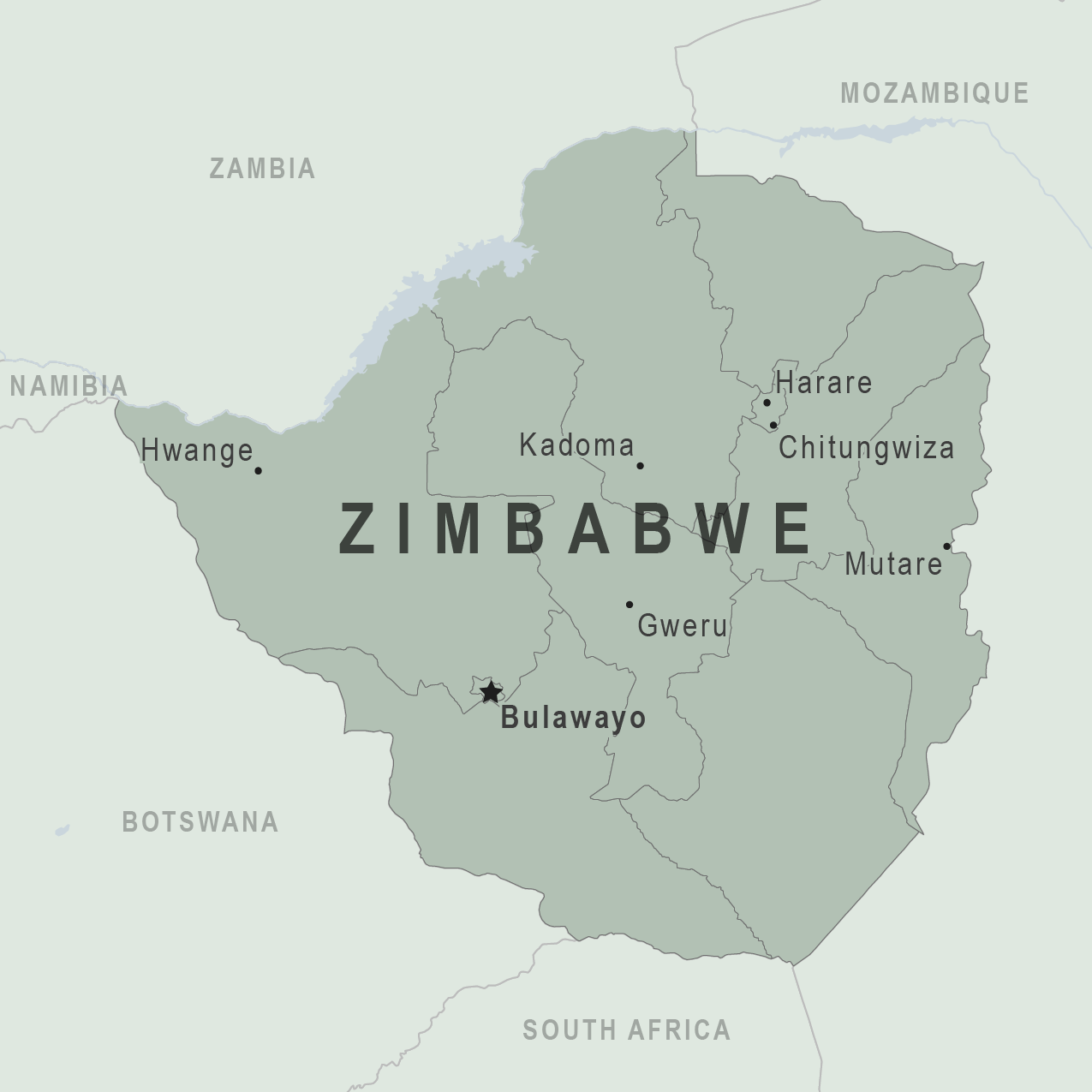
Be aware of current health issues in Zimbabwe. Learn how to protect yourself.
Level 2 Practice Enhanced Precautions
- Updated Global Polio August 20, 2024 Some international destinations have circulating poliovirus. Before any international travel, make sure you are up to date on your polio vaccines. Destination List: Afghanistan, Algeria, Angola, Benin, Botswana, Burkina Faso, Burundi, Cameroon, Central African Republic, Chad, Côte d'Ivoire (Ivory Coast), Democratic Republic of the Congo, Egypt, Ethiopia, Guinea, Indonesia, Kenya, Liberia, Madagascar, Mali, Mauritania, Mozambique, Niger, Nigeria, Pakistan, Republic of South Sudan, Republic of the Congo, Senegal, Sierra Leone, Somalia, Sudan, Tanzania, including Zanzibar, The Gambia, Uganda, Yemen, Zambia, Zimbabwe
⇧ Top
Check the vaccines and medicines list and visit your doctor at least a month before your trip to get vaccines or medicines you may need. If you or your doctor need help finding a location that provides certain vaccines or medicines, visit the Find a Clinic page.
- Avoid contaminated water
Leptospirosis
How most people get sick (most common modes of transmission)
- Touching urine or other body fluids from an animal infected with leptospirosis
- Swimming or wading in urine-contaminated fresh water, or contact with urine-contaminated mud
- Drinking water or eating food contaminated with animal urine
- Avoid contaminated water and soil
- Avoid floodwater
Clinical Guidance
Schistosomiasis
- Wading, swimming, bathing, or washing in contaminated freshwater streams, rivers, ponds, lakes, or untreated pools.
Avoid bug bites
African sleeping sickness (african trypanosomiasis).
- Tsetse fly bite
- Avoid Bug Bites
African Trypanosomiasis
African Tick-Bite Fever
African Tick-bite fever
Chikungunya
- Mosquito bite
Crimean-Congo Hemorrhagic fever
- Tick bite
- Touching the body fluids of a person or animal infected with CCHF
- Mosquito bite
- Avoid animals
Marburg Hemorrhagic Fever
- Touching infected animals (including bats and primates) or their body fluids
- Touching body fluids (blood or sweat) from an infected person
- Touching objects contaminated with the body fluids of a person infected with Ebola or Marburg virus
- Avoid sick people
- Avoid animals and areas where they live
Marburg virus
Rift Valley Fever
- Touching blood, body fluids, or tissue of infected livestock
Rift Valley fever
Airborne & droplet
- Breathing in air or accidentally eating food contaminated with the urine, droppings, or saliva of infected rodents
- Bite from an infected rodent
- Less commonly, being around someone sick with hantavirus (only occurs with Andes virus)
- Avoid rodents and areas where they live
Tuberculosis (TB)
- Breathe in TB bacteria that is in the air from an infected and contagious person coughing, speaking, or singing.
Learn actions you can take to stay healthy and safe on your trip. Vaccines cannot protect you from many diseases in Zimbabwe, so your behaviors are important.
Eat and drink safely
Food and water standards around the world vary based on the destination. Standards may also differ within a country and risk may change depending on activity type (e.g., hiking versus business trip). You can learn more about safe food and drink choices when traveling by accessing the resources below.
- Choose Safe Food and Drinks When Traveling
- Water Treatment Options When Hiking, Camping or Traveling
- Global Water, Sanitation and Hygiene (WASH)
- Avoid Contaminated Water During Travel
You can also visit the Department of State Country Information Pages for additional information about food and water safety.
Prevent bug bites
Bugs (like mosquitoes, ticks, and fleas) can spread a number of diseases in Zimbabwe. Many of these diseases cannot be prevented with a vaccine or medicine. You can reduce your risk by taking steps to prevent bug bites.
What can I do to prevent bug bites?
- Cover exposed skin by wearing long-sleeved shirts, long pants, and hats.
- Use an appropriate insect repellent (see below).
- Use permethrin-treated clothing and gear (such as boots, pants, socks, and tents). Do not use permethrin directly on skin.
- Stay and sleep in air-conditioned or screened rooms.
- Use a bed net if the area where you are sleeping is exposed to the outdoors.
What type of insect repellent should I use?
- FOR PROTECTION AGAINST TICKS AND MOSQUITOES: Use a repellent that contains 20% or more DEET for protection that lasts up to several hours.
- Picaridin (also known as KBR 3023, Bayrepel, and icaridin)
- Oil of lemon eucalyptus (OLE) or para-menthane-diol (PMD)
- 2-undecanone
- Always use insect repellent as directed.
What should I do if I am bitten by bugs?
- Avoid scratching bug bites, and apply hydrocortisone cream or calamine lotion to reduce the itching.
- Check your entire body for ticks after outdoor activity. Be sure to remove ticks properly.
What can I do to avoid bed bugs?
Although bed bugs do not carry disease, they are an annoyance. See our information page about avoiding bug bites for some easy tips to avoid them. For more information on bed bugs, see Bed Bugs .
For more detailed information on avoiding bug bites, see Avoid Bug Bites .
Stay safe outdoors
If your travel plans in Zimbabwe include outdoor activities, take these steps to stay safe and healthy during your trip.
- Stay alert to changing weather conditions and adjust your plans if conditions become unsafe.
- Prepare for activities by wearing the right clothes and packing protective items, such as bug spray, sunscreen, and a basic first aid kit.
- Consider learning basic first aid and CPR before travel. Bring a travel health kit with items appropriate for your activities.
- If you are outside for many hours in heat, eat salty snacks and drink water to stay hydrated and replace salt lost through sweating.
- Protect yourself from UV radiation : use sunscreen with an SPF of at least 15, wear protective clothing, and seek shade during the hottest time of day (10 a.m.–4 p.m.).
- Be especially careful during summer months and at high elevation. Because sunlight reflects off snow, sand, and water, sun exposure may be increased during activities like skiing, swimming, and sailing.
- Very cold temperatures can be dangerous. Dress in layers and cover heads, hands, and feet properly if you are visiting a cold location.
Stay safe around water
- Swim only in designated swimming areas. Obey lifeguards and warning flags on beaches.
- Practice safe boating—follow all boating safety laws, do not drink alcohol if driving a boat, and always wear a life jacket.
- Do not dive into shallow water.
- Do not swim in freshwater in developing areas or where sanitation is poor.
- Avoid swallowing water when swimming. Untreated water can carry germs that make you sick.
- To prevent infections, wear shoes on beaches where there may be animal waste.
Schistosomiasis, a parasitic infection that can be spread in fresh water, is found in Zimbabwe. Avoid swimming in fresh, unchlorinated water, such as lakes, ponds, or rivers.
Keep away from animals
Most animals avoid people, but they may attack if they feel threatened, are protecting their young or territory, or if they are injured or ill. Animal bites and scratches can lead to serious diseases such as rabies.
Follow these tips to protect yourself:
- Do not touch or feed any animals you do not know.
- Do not allow animals to lick open wounds, and do not get animal saliva in your eyes or mouth.
- Avoid rodents and their urine and feces.
- Traveling pets should be supervised closely and not allowed to come in contact with local animals.
- If you wake in a room with a bat, seek medical care immediately. Bat bites may be hard to see.
All animals can pose a threat, but be extra careful around dogs, bats, monkeys, sea animals such as jellyfish, and snakes. If you are bitten or scratched by an animal, immediately:
- Wash the wound with soap and clean water.
- Go to a doctor right away.
- Tell your doctor about your injury when you get back to the United States.
Consider buying medical evacuation insurance. Rabies is a deadly disease that must be treated quickly, and treatment may not be available in some countries.
Reduce your exposure to germs
Follow these tips to avoid getting sick or spreading illness to others while traveling:
- Wash your hands often, especially before eating.
- If soap and water aren’t available, clean hands with hand sanitizer (containing at least 60% alcohol).
- Don’t touch your eyes, nose, or mouth. If you need to touch your face, make sure your hands are clean.
- Cover your mouth and nose with a tissue or your sleeve (not your hands) when coughing or sneezing.
- Try to avoid contact with people who are sick.
- If you are sick, stay home or in your hotel room, unless you need medical care.
Avoid sharing body fluids
Diseases can be spread through body fluids, such as saliva, blood, vomit, and semen.
Protect yourself:
- Use latex condoms correctly.
- Do not inject drugs.
- Limit alcohol consumption. People take more risks when intoxicated.
- Do not share needles or any devices that can break the skin. That includes needles for tattoos, piercings, and acupuncture.
- If you receive medical or dental care, make sure the equipment is disinfected or sanitized.
Know how to get medical care while traveling
Plan for how you will get health care during your trip, should the need arise:
- Carry a list of local doctors and hospitals at your destination.
- Review your health insurance plan to determine what medical services it would cover during your trip. Consider purchasing travel health and medical evacuation insurance.
- Carry a card that identifies, in the local language, your blood type, chronic conditions or serious allergies, and the generic names of any medications you take.
- Some prescription drugs may be illegal in other countries. Call Zimbabwe’s embassy to verify that all of your prescription(s) are legal to bring with you.
- Bring all the medicines (including over-the-counter medicines) you think you might need during your trip, including extra in case of travel delays. Ask your doctor to help you get prescriptions filled early if you need to.
Many foreign hospitals and clinics are accredited by the Joint Commission International. A list of accredited facilities is available at their website ( www.jointcommissioninternational.org ).
In some countries, medicine (prescription and over-the-counter) may be substandard or counterfeit. Bring the medicines you will need from the United States to avoid having to buy them at your destination.
Malaria is a risk in Zimbabwe. Fill your malaria prescription before you leave and take enough with you for the entire length of your trip. Follow your doctor’s instructions for taking the pills; some need to be started before you leave.
Select safe transportation
Motor vehicle crashes are the #1 killer of healthy US citizens in foreign countries.
In many places cars, buses, large trucks, rickshaws, bikes, people on foot, and even animals share the same lanes of traffic, increasing the risk for crashes.
Be smart when you are traveling on foot.
- Use sidewalks and marked crosswalks.
- Pay attention to the traffic around you, especially in crowded areas.
- Remember, people on foot do not always have the right of way in other countries.
Riding/Driving
Choose a safe vehicle.
- Choose official taxis or public transportation, such as trains and buses.
- Ride only in cars that have seatbelts.
- Avoid overcrowded, overloaded, top-heavy buses and minivans.
- Avoid riding on motorcycles or motorbikes, especially motorbike taxis. (Many crashes are caused by inexperienced motorbike drivers.)
- Choose newer vehicles—they may have more safety features, such as airbags, and be more reliable.
- Choose larger vehicles, which may provide more protection in crashes.
Think about the driver.
- Do not drive after drinking alcohol or ride with someone who has been drinking.
- Consider hiring a licensed, trained driver familiar with the area.
- Arrange payment before departing.
Follow basic safety tips.
- Wear a seatbelt at all times.
- Sit in the back seat of cars and taxis.
- When on motorbikes or bicycles, always wear a helmet. (Bring a helmet from home, if needed.)
- Avoid driving at night; street lighting in certain parts of Zimbabwe may be poor.
- Do not use a cell phone or text while driving (illegal in many countries).
- Travel during daylight hours only, especially in rural areas.
- If you choose to drive a vehicle in Zimbabwe, learn the local traffic laws and have the proper paperwork.
- Get any driving permits and insurance you may need. Get an International Driving Permit (IDP). Carry the IDP and a US-issued driver's license at all times.
- Check with your auto insurance policy's international coverage, and get more coverage if needed. Make sure you have liability insurance.
- Avoid using local, unscheduled aircraft.
- If possible, fly on larger planes (more than 30 seats); larger airplanes are more likely to have regular safety inspections.
- Try to schedule flights during daylight hours and in good weather.
Medical Evacuation Insurance
If you are seriously injured, emergency care may not be available or may not meet US standards. Trauma care centers are uncommon outside urban areas. Having medical evacuation insurance can be helpful for these reasons.
Helpful Resources
Road Safety Overseas (Information from the US Department of State): Includes tips on driving in other countries, International Driving Permits, auto insurance, and other resources.
The Association for International Road Travel has country-specific Road Travel Reports available for most countries for a minimal fee.
Traffic flows on the left side of the road in Zimbabwe.
- Always pay close attention to the flow of traffic, especially when crossing the street.
- LOOK RIGHT for approaching traffic.
Maintain personal security
Use the same common sense traveling overseas that you would at home, and always stay alert and aware of your surroundings.
Before you leave
- Research your destination(s), including local laws, customs, and culture.
- Monitor travel advisories and alerts and read travel tips from the US Department of State.
- Enroll in the Smart Traveler Enrollment Program (STEP) .
- Leave a copy of your itinerary, contact information, credit cards, and passport with someone at home.
- Pack as light as possible, and leave at home any item you could not replace.
While at your destination(s)
- Carry contact information for the nearest US embassy or consulate .
- Carry a photocopy of your passport and entry stamp; leave the actual passport securely in your hotel.
- Follow all local laws and social customs.
- Do not wear expensive clothing or jewelry.
- Always keep hotel doors locked, and store valuables in secure areas.
- If possible, choose hotel rooms between the 2nd and 6th floors.
Healthy Travel Packing List
Use the Healthy Travel Packing List for Zimbabwe for a list of health-related items to consider packing for your trip. Talk to your doctor about which items are most important for you.
Why does CDC recommend packing these health-related items?
It’s best to be prepared to prevent and treat common illnesses and injuries. Some supplies and medicines may be difficult to find at your destination, may have different names, or may have different ingredients than what you normally use.
If you are not feeling well after your trip, you may need to see a doctor. If you need help finding a travel medicine specialist, see Find a Clinic . Be sure to tell your doctor about your travel, including where you went and what you did on your trip. Also tell your doctor if you were bitten or scratched by an animal while traveling.
If your doctor prescribed antimalarial medicine for your trip, keep taking the rest of your pills after you return home. If you stop taking your medicine too soon, you could still get sick.
Malaria is always a serious disease and may be a deadly illness. If you become ill with a fever either while traveling in a malaria-risk area or after you return home (for up to 1 year), you should seek immediate medical attention and should tell the doctor about your travel history.
For more information on what to do if you are sick after your trip, see Getting Sick after Travel .
Map Disclaimer - The boundaries and names shown and the designations used on maps do not imply the expression of any opinion whatsoever on the part of the Centers for Disease Control and Prevention concerning the legal status of any country, territory, city or area or of its authorities, or concerning the delimitation of its frontiers or boundaries. Approximate border lines for which there may not yet be full agreement are generally marked.
Other Destinations
If you need help finding travel information:
Message & data rates may apply. CDC Privacy Policy
File Formats Help:
- Adobe PDF file
- Microsoft PowerPoint file
- Microsoft Word file
- Microsoft Excel file
- Audio/Video file
- Apple Quicktime file
- RealPlayer file
- Zip Archive file
- Skip to main content
- Skip to "About this site"
Language selection
Search travel.gc.ca.
Help us to improve our website. Take our survey !
COVID-19: travel health notice for all travellers
Zimbabwe travel advice
Latest updates: Safety and security – removed information on the Southern African Development Community summit
Last updated: August 22, 2024 08:48 ET
On this page
Safety and security, entry and exit requirements, laws and culture, natural disasters and climate, zimbabwe - exercise a high degree of caution.
Exercise a high degree of caution in Zimbabwe due to crime and the risk of civil unrest.
Back to top
Demonstrations and civil unrest
Demonstrations and civil unrest may occur. They usually take place in the central business district and high density suburbs of major cities such as Harare and Bulawayo. They have led to violence in the past.
Even peaceful demonstrations can turn violent at any time. They can also lead to disruptions to traffic and public transportation.
- Don’t attempt to cross roadblocks, even if they appear unattended
- Always carry photo identification, such as your passport, with you
Mass gatherings (large-scale events)
Marange mining area
Security forces restrict the access to the Marange diamond mining fields in Chiadzwa, Mutare.
Don’t attempt to enter the area.
Petty crime, such as pickpocketing and purse snatching, occurs regularly. Crime also includes incidents such as:
- house robberies
- passport theft
Highway robberies are common, particularly at night. Robberies from vehicles have occurred on the road to and from the Robert Gabriel Mugabe International Airport and when travelling through the Beitbridge area. There is also an increased risk of crime near the border with Mozambique.
In addition, you should particularly cautious:
- in large cities such as Harare and Bulawayo
- at tourist sites such as Victoria Falls and Honde Valley waterfalls, including Mterazi Falls and Pungwe Falls
- at popular safari camps in the Hwange and Mana Pools national parks
Criminals target both foreigners and residents.
Local police are often unable to travel to the site of a reported crime. The police are likely to ask you to travel to a local police station to file a report, or to make arrangements to transport police officers to your location.
- Be vigilant and avoid travelling alone at all times
- Avoid walking after dark
- Be particularly cautious when leaving banks and after using ATMs
- Drive to the nearest police station if you suspect that you are being followed by an unknown driver
- Drive with your doors locked and windows up at all times
- Park in a guarded parking lot overnight
- Ensure that your personal belongings are secure at all times
Credit card and ATM fraud occurs. When using debit or credit cards:
- pay careful attention when your cards are being handled by others
- use ATMs located in well-lit public areas or inside a bank or business
- avoid using card readers with an irregular or unusual feature
- cover the keypad with one hand when entering your PIN
- check for any unauthorized transactions on your account statements
There have also been fraud attempts through emails.
Carefully scrutinize any unsolicited business proposal.
Overseas fraud

Outages and shortages
Power outages are common. Many regions, including the city of Harare, regularly experience long and frequent interruptions to the electrical and water supplies. Outages may be scheduled by local authorities or occur without notice. This can affect telecommunications networks.
Food and fuel shortages also occur.
Keep supplies of food, water and fuel on hand in the event of lengthy disruptions.
Wildlife viewing
Wildlife viewing can be risky, particularly if you are on foot or at close range.
- Always keep a safe distance when watching wildlife
- Leave a vehicle only when a professional guide or warden says it’s safe to do so
- Use only reputable and professional guides or tour operators
- Closely follow park regulations and wardens’ instructions
Road safety
Road conditions and road safety are poor throughout the country.
Road conditions
Most roads don’t have street lights. Potholes are common and cause many road accidents. Highways are often narrow and have sharp downhill stretches. Pedestrians often walk on the roads, even at night. Domestic and wild animals roam major roads, also posing a risk.
Avoid driving after dark.
Drivers are reckless and don’t respect traffic laws. Traffic lights are frequently broken, and drivers don’t treat non-functioning lights as four-way stops. They instead use hazard lights when entering these intersections. This often results in accidents.
Vehicles are often poorly maintained. Drivers may not have functioning lights on their cars, which makes driving at night even more dangerous. Pay close attention before proceeding through an intersection.
Security forces may erect roadblocks anywhere without notice. They use them to enforce order and collect fines, particularly in urban centres and on major roads.
Security forces can search you and your vehicle any time, as well as any person travelling with you. They can seize any items they deem suspicious during a search. Police officers may ask you to accompany them to the police station or to pay a fine on the spot.
- Drive carefully and always cooperate if you are stopped
- Don’t go through roadblocks without stopping, even if they appear unattended
- Ask for a ticket to be issued if you are fined by local authorities, as fines on-the-spot are illegal
Public transportation
Public transport is very limited and services are not reliable.
Commuter buses or “combis” are often overcrowded, uninsured and poorly maintained. Drivers are reckless.
Avoid using intercity bus services.
The rail system is underdeveloped and poorly maintained, resulting in numerous accidents.
Avoid using rail services.
Taxi service is only available in major cities. Taxis will normally not take you more than 20 km outside the city limits.
Major hotels usually have their own taxis, which are safe for intra-city travel.
Taxis recommended by hotels are normally reliable and in good condition.
- Only use a reputable taxi company
- Book taxis through your hotel or an authorized taxi centre
We do not make assessments on the compliance of foreign domestic airlines with international safety standards.
Information about foreign domestic airlines
Every country or territory decides who can enter or exit through its borders. The Government of Canada cannot intervene on your behalf if you do not meet your destination’s entry or exit requirements.
We have obtained the information on this page from the Zimbabwean authorities. It can, however, change at any time.
Verify this information with the Foreign Representatives in Canada .
Entry requirements vary depending on the type of passport you use for travel.
Before you travel, check with your transportation company about passport requirements. Its rules on passport validity may be more stringent than the country’s entry rules.
Regular Canadian passport
Your passport must be valid for at least 6 months beyond the date you expect to leave Zimbabwe.
Passport for official travel
Different entry rules may apply.
Official travel
Passport with “X” gender identifier
While the Government of Canada issues passports with an “X” gender identifier, it cannot guarantee your entry or transit through other countries. You might face entry restrictions in countries that do not recognize the “X” gender identifier. Before you leave, check with the closest foreign representative for your destination.
Other travel documents
Different entry rules may apply when travelling with a temporary passport or an emergency travel document. Before you leave, check with the closest foreign representative for your destination.
Useful links
- Foreign Representatives in Canada
- Canadian passports
Tourist visa: required Business visa: required Student visa: required Work permit: required Residential visa: required
Tourist visa
You can obtain a single-entry tourist visa, valid for 30 days, at a port of entry into Zimbabwe or at a Zimbabwean embassy.
You can apply for 2 consecutive extensions (for a total of 90 days) at any Zimbabwean Department of Immigration office.
- Zimbabwe Department of Immigration
- Apply for an eVisa - Government of Zimbabwe eVisa Website
Business visa and work permit
If you enter Zimbabwe with a business visa or work permit, you cannot extend it from within the country.
You will need to exit the country and either:
- re-enter as a visitor
- or apply for a new business visa or work permit and wait for its delivery before re-entering
Working or living in Zimbabwe
It’s very difficult to arrange a work permit or residential visa after arriving in Zimbabwe.
If you plan on working or living in Zimbabwe, you should contact the nearest Zimbabwean diplomatic office before your arrival.
Volunteering and missionary activities are considered work. You will require a business visa to engage in these activities.
Journalists
Foreign media organizations must obtain prior accreditation for their journalists visiting or working in Zimbabwe.
Journalists attempting to enter the country without proper advance accreditation may be denied entry or deported. Journalists working in Zimbabwe without accreditation risk arrest and prosecution.
If you are seeking registration to enter Zimbabwe as a journalist, contact the nearest Zimbabwean diplomatic office well ahead of your planned departure.
Foreign diplomatic missions and consulates in Canada
- Children and travel
Learn more about travelling with children .
Yellow fever
Learn about potential entry requirements related to yellow fever (vaccines section).
Relevant Travel Health Notices
- Global Measles Notice - 13 March, 2024
- COVID-19 and International Travel - 13 March, 2024
- Polio: Advice for travellers - 20 August, 2024
This section contains information on possible health risks and restrictions regularly found or ongoing in the destination. Follow this advice to lower your risk of becoming ill while travelling. Not all risks are listed below.
Consult a health care professional or visit a travel health clinic preferably 6 weeks before you travel to get personalized health advice and recommendations.
Routine vaccines
Be sure that your routine vaccinations , as per your province or territory , are up-to-date before travelling, regardless of your destination.
Some of these vaccinations include measles-mumps-rubella (MMR), diphtheria, tetanus, pertussis, polio, varicella (chickenpox), influenza and others.
Pre-travel vaccines and medications
You may be at risk for preventable diseases while travelling in this destination. Talk to a travel health professional about which medications or vaccines may be right for you, based on your destination and itinerary.
Yellow fever is a disease caused by a flavivirus from the bite of an infected mosquito.
Travellers get vaccinated either because it is required to enter a country or because it is recommended for their protection.
- There is no risk of yellow fever in this country.
Country Entry Requirement*
- Proof of vaccination is required if you are coming from or have transited through an airport of a country where yellow fever occurs.
Recommendation
- Vaccination is not recommended.
- Discuss travel plans, activities, and destinations with a health care professional.
- Contact a designated Yellow Fever Vaccination Centre well in advance of your trip to arrange for vaccination.
About Yellow Fever
Yellow Fever Vaccination Centres in Canada * It is important to note that country entry requirements may not reflect your risk of yellow fever at your destination. It is recommended that you contact the nearest diplomatic or consular office of the destination(s) you will be visiting to verify any additional entry requirements.
There is a risk of hepatitis A in this destination. It is a disease of the liver. People can get hepatitis A if they ingest contaminated food or water, eat foods prepared by an infectious person, or if they have close physical contact (such as oral-anal sex) with an infectious person, although casual contact among people does not spread the virus.
Practise safe food and water precautions and wash your hands often. Vaccination is recommended for all travellers to areas where hepatitis A is present.
Measles is a highly contagious viral disease. It can spread quickly from person to person by direct contact and through droplets in the air.
Anyone who is not protected against measles is at risk of being infected with it when travelling internationally.
Regardless of where you are going, talk to a health care professional before travelling to make sure you are fully protected against measles.
Hepatitis B is a risk in every destination. It is a viral liver disease that is easily transmitted from one person to another through exposure to blood and body fluids containing the hepatitis B virus. Travellers who may be exposed to blood or other bodily fluids (e.g., through sexual contact, medical treatment, sharing needles, tattooing, acupuncture or occupational exposure) are at higher risk of getting hepatitis B.
Hepatitis B vaccination is recommended for all travellers. Prevent hepatitis B infection by practicing safe sex, only using new and sterile drug equipment, and only getting tattoos and piercings in settings that follow public health regulations and standards.
Coronavirus disease (COVID-19) is an infectious viral disease. It can spread from person to person by direct contact and through droplets in the air.
It is recommended that all eligible travellers complete a COVID-19 vaccine series along with any additional recommended doses in Canada before travelling. Evidence shows that vaccines are very effective at preventing severe illness, hospitalization and death from COVID-19. While vaccination provides better protection against serious illness, you may still be at risk of infection from the virus that causes COVID-19. Anyone who has not completed a vaccine series is at increased risk of being infected with the virus that causes COVID-19 and is at greater risk for severe disease when travelling internationally.
Before travelling, verify your destination’s COVID-19 vaccination entry/exit requirements. Regardless of where you are going, talk to a health care professional before travelling to make sure you are adequately protected against COVID-19.
The best way to protect yourself from seasonal influenza (flu) is to get vaccinated every year. Get the flu shot at least 2 weeks before travelling.
The flu occurs worldwide.
- In the Northern Hemisphere, the flu season usually runs from November to April.
- In the Southern Hemisphere, the flu season usually runs between April and October.
- In the tropics, there is flu activity year round.
The flu vaccine available in one hemisphere may only offer partial protection against the flu in the other hemisphere.
The flu virus spreads from person to person when they cough or sneeze or by touching objects and surfaces that have been contaminated with the virus. Clean your hands often and wear a mask if you have a fever or respiratory symptoms.
Malaria is a serious and sometimes fatal disease that is caused by parasites spread through the bites of mosquitoes. There is a risk of malaria in certain areas and/or during a certain time of year in this destination.
Antimalarial medication may be recommended depending on your itinerary and the time of year you are travelling. Consult a health care professional or visit a travel health clinic before travelling to discuss your options. It is recommended to do this 6 weeks before travel, however, it is still a good idea any time before leaving. Protect yourself from mosquito bites at all times: • Cover your skin and use an approved insect repellent on uncovered skin. • Exclude mosquitoes from your living area with screening and/or closed, well-sealed doors and windows. • Use insecticide-treated bed nets if mosquitoes cannot be excluded from your living area. • Wear permethrin-treated clothing. If you develop symptoms similar to malaria when you are travelling or up to a year after you return home, see a health care professional immediately. Tell them where you have been travelling or living.
In this destination, rabies is commonly carried by dogs and some wildlife, including bats. Rabies is a deadly disease that spreads to humans primarily through bites or scratches from an infected animal. While travelling, take precautions , including keeping your distance from animals (including free-roaming dogs), and closely supervising children.
If you are bitten or scratched by a dog or other animal while travelling, immediately wash the wound with soap and clean water and see a health care professional. In this destination, rabies treatment may be limited or may not be available, therefore you may need to return to Canada for treatment.
Before travel, discuss rabies vaccination with a health care professional. It may be recommended for travellers who are at high risk of exposure (e.g., occupational risk such as veterinarians and wildlife workers, children, adventure travellers and spelunkers, and others in close contact with animals).
Safe food and water precautions
Many illnesses can be caused by eating food or drinking beverages contaminated by bacteria, parasites, toxins, or viruses, or by swimming or bathing in contaminated water.
- Learn more about food and water precautions to take to avoid getting sick by visiting our eat and drink safely abroad page. Remember: Boil it, cook it, peel it, or leave it!
- Avoid getting water into your eyes, mouth or nose when swimming or participating in activities in freshwater (streams, canals, lakes), particularly after flooding or heavy rain. Water may look clean but could still be polluted or contaminated.
- Avoid inhaling or swallowing water while bathing, showering, or swimming in pools or hot tubs.
Cholera is a risk in parts of this country. Most travellers are at very low risk.
To protect against cholera, all travellers should practise safe food and water precautions .
Travellers at higher risk of getting cholera include those:
- visiting, working or living in areas with limited access to safe food, water and proper sanitation
- visiting areas where outbreaks are occurring
Vaccination may be recommended for high-risk travellers, and should be discussed with a health care professional.
Travellers' diarrhea is the most common illness affecting travellers. It is spread from eating or drinking contaminated food or water.
Risk of developing travellers' diarrhea increases when travelling in regions with poor standards of hygiene and sanitation. Practise safe food and water precautions.
The most important treatment for travellers' diarrhea is rehydration (drinking lots of fluids). Carry oral rehydration salts when travelling.
Typhoid is a bacterial infection spread by contaminated food or water. Risk is higher among children, travellers going to rural areas, travellers visiting friends and relatives or those travelling for a long period of time.
Travellers visiting regions with a risk of typhoid, especially those exposed to places with poor sanitation, should speak to a health care professional about vaccination.
There is a risk of schistosomiasis in this destination. Schistosomiasis is a parasitic disease caused by tiny worms (blood flukes) which can be found in freshwater (lakes, rivers, ponds, and wetlands). The worms can break the skin, and their eggs can cause stomach pain, diarrhea, flu-like symptoms, or urinary problems. Schistosomiasis mostly affects underdeveloped and r ural communities, particularly agricultural and fishing communities.
Most travellers are at low risk. Travellers should avoid contact with untreated freshwater such as lakes, rivers, and ponds (e.g., swimming, bathing, wading, ingesting). There is no vaccine or medication available to prevent infection.
Insect bite prevention
Many diseases are spread by the bites of infected insects such as mosquitoes, ticks, fleas or flies. When travelling to areas where infected insects may be present:
- Use insect repellent (bug spray) on exposed skin
- Cover up with light-coloured, loose clothes made of tightly woven materials such as nylon or polyester
- Minimize exposure to insects
- Use mosquito netting when sleeping outdoors or in buildings that are not fully enclosed
To learn more about how you can reduce your risk of infection and disease caused by bites, both at home and abroad, visit our insect bite prevention page.
Find out what types of insects are present where you’re travelling, when they’re most active, and the symptoms of the diseases they spread.
There is a risk of chikungunya in this country. The level of risk may vary by:
The virus that causes chikungunya is spread through the bite of an infected mosquito. It can cause fever and pain in the joints. In some cases, the joint pain can be severe and last for months or years.
Protect yourself from mosquito bites at all times.
Learn more:
Insect bite and pest prevention Chikungunya
- In this country, risk of dengue is sporadic. It is a viral disease spread to humans by mosquito bites.
- Dengue can cause flu-like symptoms. In some cases, it can lead to severe dengue, which can be fatal.
- The level of risk of dengue changes seasonally, and varies from year to year. The level of risk also varies between regions in a country and can depend on the elevation in the region.
- Mosquitoes carrying dengue typically bite during the daytime, particularly around sunrise and sunset.
- Protect yourself from mosquito bites . There is no vaccine or medication that protects against dengue fever.
Rift Valley fever is a viral disease that can cause severe flu-like symptoms. In some cases, it can be fatal. It is spread to humans through contact with infected animal blood or tissues, from the bite of an infected mosquito, or eating or drinking unpasteurized dairy. Risk is generally low for most travellers. Protect yourself from insect bites and avoid animals, particularly livestock, and unpasteurized dairy. There is no vaccine available for Rift Valley fever.
African trypanosomiasis (sleeping sickness) is caused by a parasite spread through the bite of a tsetse fly. Tsetse flies usually bite during the day and the bites are usually painful. If untreated, the disease is eventually fatal. Risk is generally low for most travellers. Protect yourself from bites especially in game parks and rural areas. Avoid wearing bright or dark-coloured clothing as these colours attract tsetse flies. There is no vaccine available for this disease.
Animal precautions
Some infections, such as rabies and influenza, can be shared between humans and animals. Certain types of activities may increase your chance of contact with animals, such as travelling in rural or forested areas, camping, hiking, and visiting wet markets (places where live animals are slaughtered and sold) or caves.
Travellers are cautioned to avoid contact with animals, including dogs, livestock (pigs, cows), monkeys, snakes, rodents, birds, and bats, and to avoid eating undercooked wild game.
Closely supervise children, as they are more likely to come in contact with animals.
Anthrax is a serious infectious disease caused by bacteria. People can get sick with anthrax if they come into contact with infected animals or contaminated animal products. Anthrax can cause severe illness in both humans and animals. Travellers to areas where anthrax is common or where an outbreak is occurring in animals can get sick with anthrax if:
- they have contact with infected animal carcasses or eat meat from animals that were sick when slaughtered
- they handle animal parts, such as hides, wool or hair, or products made from those animal parts, such as animal hide drums.
If you are visiting these areas, do not eat raw or undercooked meat and avoid contact with livestock, wildlife, animal products, and animal carcasses.
Person-to-person infections
Stay home if you’re sick and practise proper cough and sneeze etiquette , which includes coughing or sneezing into a tissue or the bend of your arm, not your hand. Reduce your risk of colds, the flu and other illnesses by:
- washing your hands often
- avoiding or limiting the amount of time spent in closed spaces, crowded places, or at large-scale events (concerts, sporting events, rallies)
- avoiding close physical contact with people who may be showing symptoms of illness
Sexually transmitted infections (STIs) , HIV , and mpox are spread through blood and bodily fluids; use condoms, practise safe sex, and limit your number of sexual partners. Check with your local public health authority pre-travel to determine your eligibility for mpox vaccine.
Tuberculosis is an infection caused by bacteria and usually affects the lungs.
For most travellers the risk of tuberculosis is low.
Travellers who may be at high risk while travelling in regions with risk of tuberculosis should discuss pre- and post-travel options with a health care professional.
High-risk travellers include those visiting or working in prisons, refugee camps, homeless shelters, or hospitals, or travellers visiting friends and relatives.
HIV (Human Immunodeficiency Virus) is a virus that attacks and impairs the immune system, resulting in a chronic, progressive illness known as AIDS (Acquired Immunodeficiency Syndrome).
High risk activities include anything which puts you in contact with blood or body fluids, such as unprotected sex and exposure to unsterilized needles for medications or other substances (for example, steroids and drugs), tattooing, body-piercing or acupuncture.
Medical services and facilities
Good health care is limited in Zimbabwe. Quality of care varies greatly throughout the country.
Medical facilities and medical supplies are limited, especially outside of the major cities. The best hospitals are often at full capacity and cannot admit further patients. Trained medical staff are scarce. You will likely need medical evacuation in case of serious illness or injury.
Overseas medical insurance payments may not be accepted. You will likely have to provide upfront payment in cash to obtain medical services, such as:
- doctor visits
- hospitals visits
- air ambulance
- medical evacuation
Make sure you get travel insurance that includes coverage for medical evacuation and hospital stays.
Health and safety outside Canada
There is a significant shortage of prescription medication.
If you take prescription medication, you’re responsible for determining their legality in Zimbabwe.
- Bring sufficient quantities of your medication with you
- Always keep your medication in the original container
- Pack them in your carry-on luggage
- Carry a copy of your prescriptions
Keep in Mind...
The decision to travel is the sole responsibility of the traveller. The traveller is also responsible for his or her own personal safety.
Be prepared. Do not expect medical services to be the same as in Canada. Pack a travel health kit , especially if you will be travelling away from major city centres.
You must abide by local laws.
Learn about what you should do and how we can help if you are arrested or detained abroad .
There are severe penalties for the possession, use or trafficking of illegal drugs. If you are convicted, you can expect to be arrested, detained and prosecuted.
Drugs, alcohol and travel
Demonstrations and assemblies, even for private meetings, are illegal in Zimbabwe if not pre-approved by the government. Local authorities have taken bystanders into custody at such events.
Making political commentary or discussing the President or the President’s office is also illegal.
- Avoid political activities and discussions
- Don’t post or react to online content criticizing the government
- Limit your social media footprint
Online behaviour
Any recording or online activity that could be perceived as critical of the government or the country could be considered illegal by local authorities. Comments or behaviours considered illegal could result in:
- imprisonment
- deportation
Photography
Photography of the following is prohibited unless permission is granted from the Zimbabwe Ministry of Information:
- the State House
- government offices
- military establishments
- official residences and embassies
- police officers
- armed forces members
- demonstrators
You may need a special permit for other photography. Local authorities strictly enforce all restrictions. Observe all restrictions. When in doubt, don’t take a picture.
Identification
Local authorities may ask you to show identification at any time.
You must carry your passport, visa and other travel documents with you at all times. Failure to produce these documents upon request may subject you to detention or arrest.
Keep a photocopy of your passport in a safe place, in case the original is lost or confiscated.
Pornographic material and prohibited items
Possession or importation of pornographic material is prohibited,as is any item or material, including digital content, that could be considered immoral or obscene.
Military clothing
It’s illegal for civilians to wear any form of clothing made from camouflage material.
Precious stones
Carrying precious or semi-precious stones (rough or uncut) without the correct paperwork or permit is prohibited.
2SLGBTQI+ persons
Zimbabwean law prohibits sexual acts between individuals of the same sex.
Those convicted can face imprisonment and heavy fines. 2SLGBTQI+ travellers could also be discriminated against or detained based on their sexual orientation, gender identity, gender expression or sex characteristics.
2SLGBTQI+ persons should carefully consider the risks of travelling to Zimbabwe.
Travel and your sexual orientation, gender identity, gender expression and sex characteristics
Dual citizenship
Dual citizenship is legally recognized in Zimbabwe.
If you are a Canadian citizen, but also a citizen of Zimbabwe, our ability to offer you consular services may be limited while you're there. You may also be subject to different entry/exit requirements .
Dual citizens
International Child Abduction
The Hague Convention on the Civil Aspects of International Child Abduction is an international treaty. It can help parents with the return of children who have been removed to or retained in certain countries in violation of custody rights. The convention applies between Canada and Zimbabwe.
If your child was wrongfully taken to, or is being held in Zimbabwe, and if the applicable conditions are met, you may apply for the return of your child to the Zimbabwean court.
If you are in this situation:
- act as quickly as you can
- contact the Central Authority for your province or territory of residence for information on starting an application under The Hague Convention
- consult a lawyer in Canada and in Zimbabwe to explore all the legal options for the return of your child
- report the situation to the nearest Canadian government office abroad or to the Vulnerable Children's Consular Unit at Global Affairs Canada by calling the Emergency Watch and Response Centre
If your child was removed from a country other than Canada, consult a lawyer to determine if The Hague Convention applies.
Be aware that Canadian consular officials cannot interfere in private legal matters or in another country's judicial affairs.
- List of Canadian Central Authorities for the Hague Convention
- International Child Abductions: A guide for affected parents
- The Hague Convention – Hague Conference on Private International Law
- Canadian embassies and consulates by destination
- Request emergency assistance
Traffic drives on the left.
You must have a copy of your vehicle clearance certificate with you when driving.
You should carry an International Driving Permit.
International Driving Permit
On-the-spot fines are illegal in Zimbabwe.
You can pay a fine at the nearest police station. Police officers may ask you to accompany them there.
If you receive a fine:
- ask for a ticket to be issued
- don’t pay the ticket on-the-spot
The currency in Zimbabwe is the Zimbabwe Gold (ZiG).
Most transactions in Zimbabwe are made in US dollars. Foreign credit cards are not always accepted.
The country is currently experiencing a severe local currency shortage. Withdrawing money from ATMs or banks using an international bank card can be very difficult. Counterfeit banknotes are in circulation.
You can bring in any amount of cash into Zimbabwe. However, you can only leave the country with a maximum of US$10,000 in cash, or the equivalent in other foreign currencies, unless you completed a blue Baggage Declaration form upon entry at the airport.
- Plan accordingly
- Bring sufficient US dollars to cover your stay
- Check with your tour operator or hotel which payment methods will be accepted
- Change currency at registered currency exchange offices only
Importation and exportation of currency by travellers - Zimbabwe Revenue Authority
Rainy season and cyclones
The rainy season extends from November to March. Seasonal flooding can hamper overland travel and reduce the provision of essential services. Roads may become impassable and bridges damaged.
During this season, cyclones also occur.
If you travel to Zimbabwe during this time:
- stay informed of the latest regional weather forecasts
- carry emergency contact information for your airline or tour operator
- follow the advice and instructions of local authorities
- Tornadoes, cyclones, hurricanes, typhoons and monsoons
- Large-scale emergencies abroad
Veld (bush) fires are common during the dry season (April to October). They are very unpredictable and extremely dangerous. They can spread very quickly and travel at speeds of 60 km/h or more, due to high winds.
- Stay clear of active fires
- Always verify local conditions with relevant authorities before going on bush walks, particularly during the dry season
Local services
Emergency services exist but may be limited.
In case of emergency, dial 999.
Consular assistance
Botswana, Malawi
For emergency assistance after hours, call the Embassy of Canada to Zimbabwe, in Harare, and follow the instructions. You may also call the Emergency Watch and Response Centre in Ottawa at 613-996-8885.
The decision to travel is your choice and you are responsible for your personal safety abroad. We take the safety and security of Canadians abroad very seriously and provide credible and timely information in our Travel Advice to enable you to make well-informed decisions regarding your travel abroad.
The content on this page is provided for information only. While we make every effort to give you correct information, it is provided on an "as is" basis without warranty of any kind, expressed or implied. The Government of Canada does not assume responsibility and will not be liable for any damages in connection to the information provided.
If you need consular assistance while abroad, we will make every effort to help you. However, there may be constraints that will limit the ability of the Government of Canada to provide services.
Learn more about consular services .
Risk Levels
take normal security precautions.
Take similar precautions to those you would take in Canada.
Exercise a high degree of caution
There are certain safety and security concerns or the situation could change quickly. Be very cautious at all times, monitor local media and follow the instructions of local authorities.
IMPORTANT: The two levels below are official Government of Canada Travel Advisories and are issued when the safety and security of Canadians travelling or living in the country or region may be at risk.
Avoid non-essential travel
Your safety and security could be at risk. You should think about your need to travel to this country, territory or region based on family or business requirements, knowledge of or familiarity with the region, and other factors. If you are already there, think about whether you really need to be there. If you do not need to be there, you should think about leaving.
Avoid all travel
You should not travel to this country, territory or region. Your personal safety and security are at great risk. If you are already there, you should think about leaving if it is safe to do so.

A journey to Zimbabwe will take you through an attractive patchwork of landscapes, from highveld, balancing boulders and flaming msasa trees, to laidback towns, lush mountains and lifeblood rivers. Here you can spot the Big Five (leopard, lion, rhino, elephant and buffalo) in its national parks, discover World Heritage–listed archaeological sites and stand in awe of one of the natural wonders of the world, Victoria Falls.
Attractions
Must-see attractions.
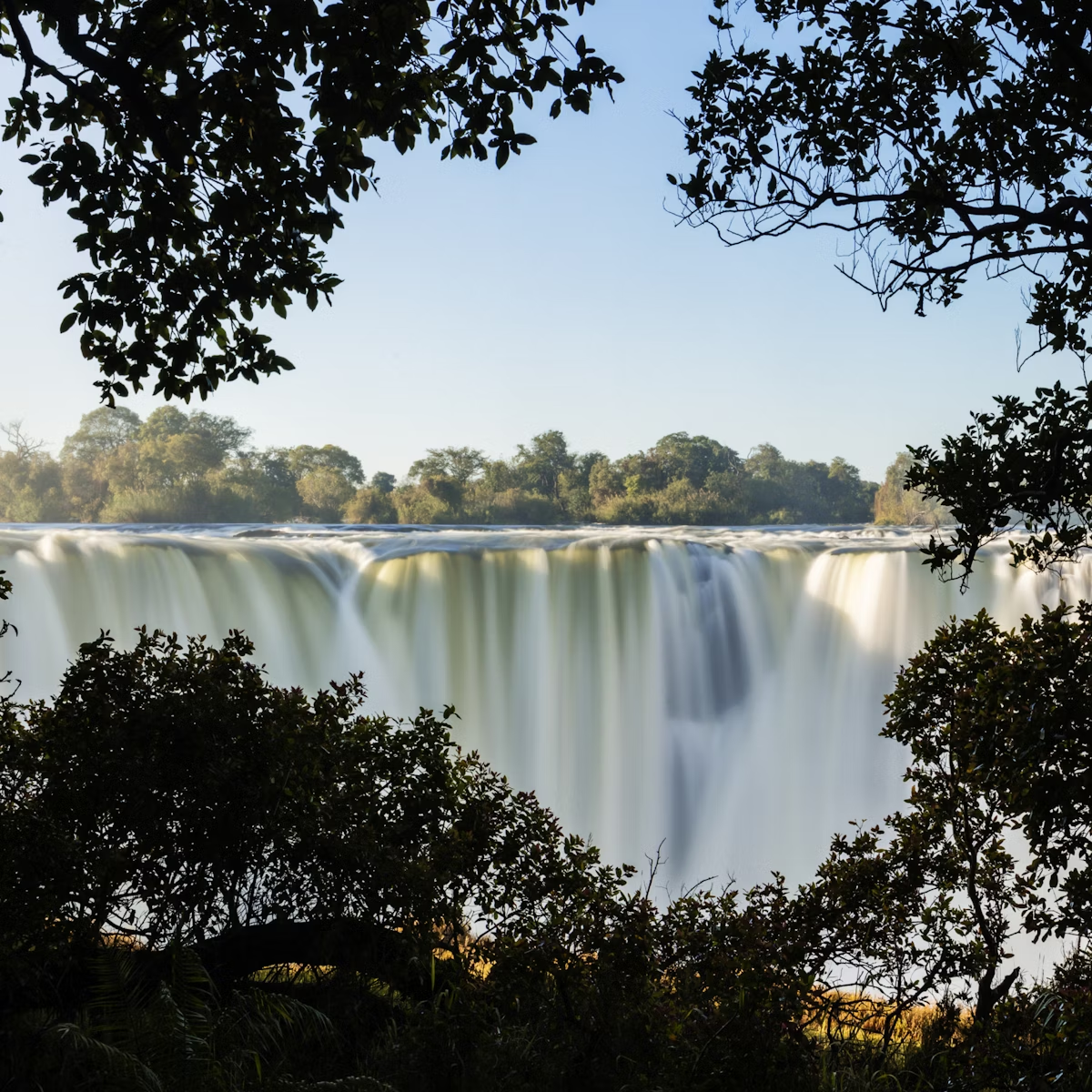
Victoria Falls National Park
Victoria Falls (town)
Here on the Zimbabwe side of the falls you're in for a real treat. Some two-thirds of Victoria Falls are located here, including the main falls themselves…

Great Zimbabwe
The mysterious ruined city of Great Zimbabwe dates back to the 11th to 15th centuries AD and remains the emblem and heart of the nation. The Unesco World…

Gonarezhou National Park
Hidden in the southeast corner of the country is the stunning Gonarezhou National Park, ZImbabwe's second largest park (5000 sq km) and regarded by many…
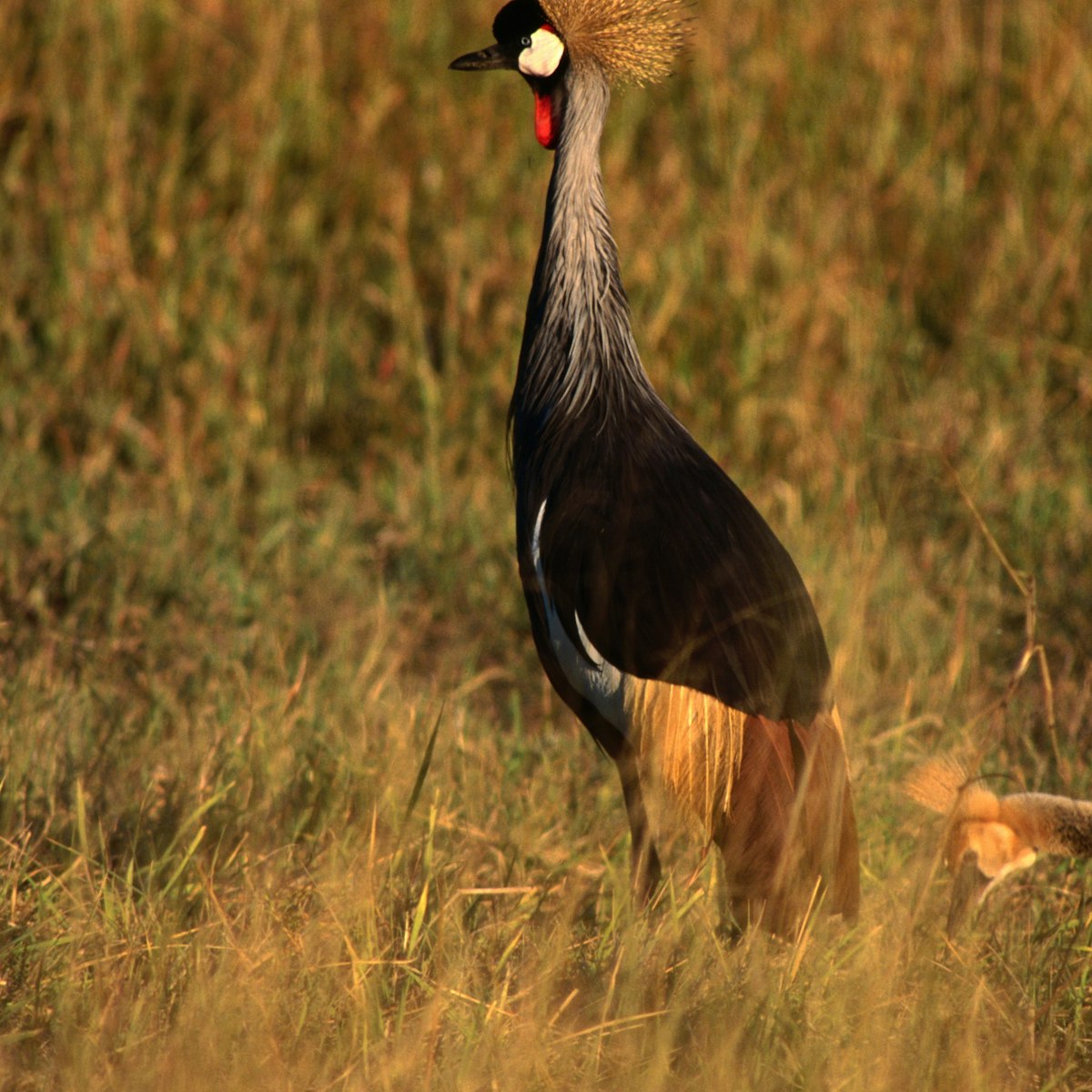
Hwange National Park
One of the 10 largest national parks in Africa, and the largest in Zimbabwe, at 14,651 sq km, Hwange National Park, pronounced ‘Wang-ee’, has a ridiculous…

Matobo National Park
Home to some of the most majestic granite scenery in the world, the Matobo National Park is one of the unsung highlights of Zimbabwe. This Unesco World…

Mana Pools National Park
This magnificent 2200-sq-km national park is a Unesco World Heritage–listed site and its magic stems from its remoteness and pervading sense of the wild…
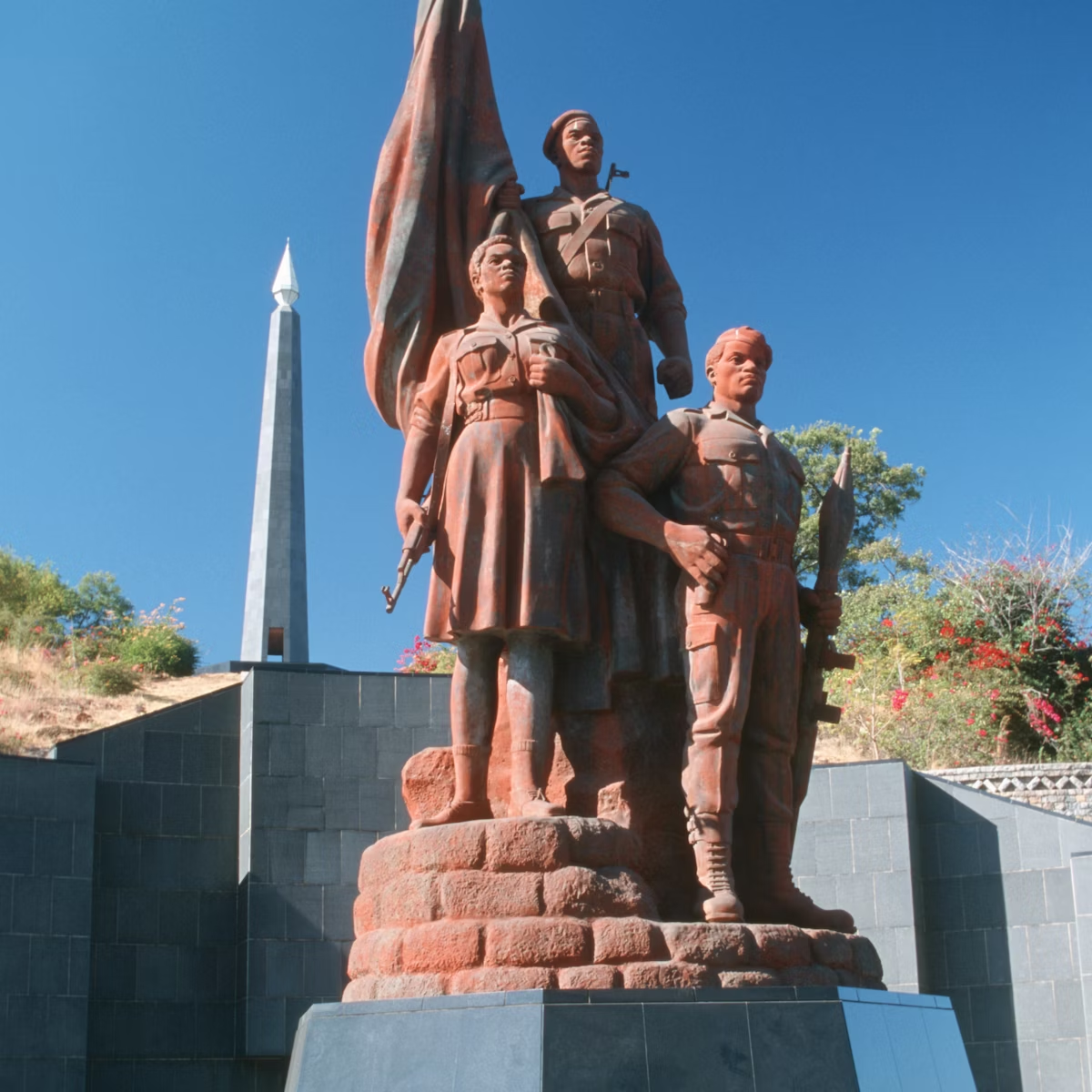
National Heroes' Acre
The grandiose obelisk of Heroes' Acre, overlooking the town, is straight out of Pyongyang, yet lies just 7km from Harare. Designed with the assistance of…

National Gallery of Zimbabwe
In the southeast corner of Harare Gardens, this lovely gallery has multiple spaces exhibiting a mix of contemporary local, African and international…
Plan with a local
Experience the real Zimbabwe
Let a local expert craft your dream trip.

Latest stories from Zimbabwe
Filter by interest:
- All Interests
- Adventure Travel
- Art & Culture
- Beaches, Coasts & Islands
- Food & Drink

National Parks
Sep 7, 2022 • 3 min read
Victoria Falls is a must, but don't miss out on the wild delights of Luangwa, the Zambezi and Chimanimani.

May 20, 2020 • 3 min read
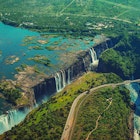
Dec 12, 2019 • 5 min read

Nov 19, 2019 • 6 min read

Nov 7, 2019 • 1 min read

Oct 31, 2019 • 6 min read

Oct 22, 2019 • 5 min read
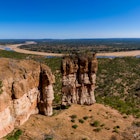
Sep 6, 2019 • 5 min read

Jun 22, 2019 • 6 min read
in partnership with getyourguide
Book popular activities in Zimbabwe
Zimbabwe and beyond.

Winter is here! Check out the winter wonderlands at these 5 amazing winter destinations in Montana
- Travel Destinations
- Africa & Middle East
The Ultimate Zimbabwe Travel Guide
Published: October 15, 2023
Modified: January 3, 2024
by Olivette West
- Plan Your Trip
- Travel Guide
Introduction
Welcome to Zimbabwe, a country steeped in rich history, vibrant culture, and breathtaking natural beauty. Nestled in the southern part of Africa, Zimbabwe is a landlocked country known for its stunning landscapes, diverse wildlife, and warm hospitality. With a blend of traditional African charm and modern amenities, Zimbabwe offers an array of experiences for every type of traveler.
Home to the majestic Victoria Falls, also known as “The Smoke That Thunders,” Zimbabwe boasts one of the Seven Natural Wonders of the World. This awe-inspiring waterfall is a must-see attraction, drawing visitors from around the globe. But Zimbabwe’s allure extends beyond the iconic falls, as it is also home to vast national parks, rugged mountains, picturesque lakes, and ancient ruins.
Getting to Zimbabwe is relatively easy, with international flights arriving at the capital city of Harare or the tourism hub of Victoria Falls. Once here, visitors can explore the country’s diverse landscapes, encounter the Big Five on a thrilling safari, delve into the intricacies of ancient civilizations, or simply unwind in the tranquility of the Zimbabwean countryside.
Whether you’re an adventure seeker, a wildlife enthusiast, a history buff, or a curious explorer, Zimbabwe offers a myriad of experiences to satisfy your wanderlust. From adrenaline-pumping activities such as bungee jumping and white-water rafting, to exploring ancient ruins and interacting with local communities, there is something for everyone.
In this comprehensive travel guide, we will delve into the various aspects of visiting Zimbabwe, including visa requirements, the best time to visit, currency information, transportation options, accommodation choices, top tourist attractions, cultural experiences, adventure activities, shopping opportunities, and much more. So, let’s embark on a journey to discover the wonders of Zimbabwe!
Getting to Zimbabwe
Getting to Zimbabwe is convenient and accessible, with international flights connecting the country to major cities around the world. The primary international airports in Zimbabwe are Harare International Airport (HRE) and Victoria Falls International Airport (VFA).
If you are flying from Europe, Asia, or the Americas, you are likely to have a layover in a major hub city such as Johannesburg, Nairobi, or Dubai before continuing on to Zimbabwe. Airlines such as South African Airways, Emirates, Ethiopian Airlines, and Kenya Airways operate frequent flights to Zimbabwe.
For those traveling from neighboring African countries, there are also several regional airlines that offer direct flights to Zimbabwe. These include Air Zimbabwe, Fastjet, and South African Express, among others.
Once you arrive at either Harare or Victoria Falls airport, you can easily reach your final destination within the country. There are domestic flights connecting major cities and tourist destinations, including Harare, Bulawayo, and Victoria Falls. Domestic airlines such as Air Zimbabwe and Fastjet operate regular flights within the country.
In addition to air travel, there are also land border crossings available for those traveling by road. Zimbabwe shares borders with South Africa, Botswana, Mozambique, and Zambia, making it possible to enter the country via road. However, it is important to check the visa requirements and border regulations before undertaking a road trip to Zimbabwe.
For those seeking a more adventurous journey, there are also train options available. The popular “Zambezi Express” train operates between Victoria Falls and Bulawayo, providing a scenic and nostalgic way to explore the country. It is advisable to book train tickets in advance, as availability may be limited.
Overall, getting to Zimbabwe is relatively straightforward, with various transportation options available. Whether you choose to fly, drive, or take a train, the journey to Zimbabwe is part of the experience, offering glimpses of the country’s diverse landscapes and welcoming atmosphere.
Visa Requirements
Before planning your trip to Zimbabwe, it is essential to understand the visa requirements to ensure a smooth and hassle-free entry into the country. The visa regulations for Zimbabwe vary depending on your nationality, intended length of stay, and purpose of travel.
Visitors from most countries are required to obtain a visa prior to their arrival in Zimbabwe. The easiest and most common way to obtain a visa is by applying for an e-Visa online through the government’s official website or through authorized visa processing agencies. The e-Visa system allows you to apply, pay, and receive your visa electronically, eliminating the need for physical documents and the hassle of visiting an embassy or consulate.
There are different types of visas available depending on the purpose of your visit. The most common types of visas for tourists are the Single Entry Visa and the Kaza Univisa, which allows travel between Zimbabwe and Zambia. The Kaza Univisa is particularly useful for those planning to visit both countries, as it offers the convenience of a single visa for multiple entries within a specified period.
It is important to check the official government websites or consult with the Zimbabwean embassy or consulate in your home country to determine the specific visa requirements for your nationality. The visa fees, required documents, and processing times may vary, so it is advisable to start the application process well in advance of your planned travel dates.
When applying for a visa, be prepared to provide your passport details, travel itinerary, proof of accommodation, and sufficient funds to support your stay in Zimbabwe. Some nationalities may also require additional documents, such as a letter of invitation or a yellow fever vaccination certificate.
Upon arrival at the designated ports of entry, such as airports or land border crossings, you will be required to present your valid passport with the visa. Immigration officials may also ask for proof of return or onward travel, so it is important to have your travel documents readily available.
It is worth noting that visa regulations are subject to change, so it is always a good idea to double-check the requirements closer to your travel date to ensure compliance. By familiarizing yourself with the visa requirements and preparing the necessary documents in advance, you can ensure a smooth entry into Zimbabwe and focus on enjoying your time in this captivating country.
Best Time to Visit Zimbabwe
Zimbabwe enjoys a pleasant subtropical climate, making it a year-round destination. However, the best time to visit Zimbabwe largely depends on your interests and the type of experience you are seeking.
From April to October, Zimbabwe experiences its dry season, which is considered the peak tourist season. During this time, the weather is mild and dry, making it ideal for wildlife viewing and outdoor activities. The months of July to September are particularly popular, as they offer optimal game viewing opportunities in national parks such as Hwange and Mana Pools. It is important to note that the dry season coincides with Zimbabwe’s winter, so early mornings and evenings can be quite chilly. Be sure to pack warm clothing if you are visiting during this period.
If witnessing the magnificent Victoria Falls in all its glory is on your bucket list, consider visiting between February and May. This period follows the rainy season, and the falls are at their most spectacular with a massive flow of water. The mist created by the falls can be intense, so be prepared to get wet and don’t forget to bring a raincoat or poncho.
For bird enthusiasts, the wet season from November to March offers the best opportunities for bird-watching. During this time, the vegetation is lush and vibrant, attracting a colorful array of bird species. The wet season is also considered the shoulder or low season, and you can expect fewer crowds and lower prices on accommodation and tours.
It’s worth noting that wildlife sightings can still be rewarding during the wet season, as the landscapes transform into lush green havens. Many animals give birth during this time, and birdlife is abundant. However, it is important to be prepared for occasional rain showers and muddy conditions when exploring national parks and game reserves.
Ultimately, the best time to visit Zimbabwe depends on your preferences and the experiences you wish to have. Whether you’re seeking optimal wildlife encounters, want to witness the power of Victoria Falls, or simply want to enjoy Zimbabwe’s natural beauty, there is a time of year that will suit your desires. Be sure to plan ahead and consider the weather patterns and activities that interest you most to make the most of your visit to Zimbabwe.
Currency and Money Matters
The official currency of Zimbabwe is the Zimbabwean Dollar (ZWL). In recent years, Zimbabwe has transitioned from using foreign currencies, such as the US Dollar and South African Rand, to reintroducing its own currency. It is important to note that foreign currencies, particularly the US Dollar, are still widely accepted in Zimbabwe for transactions.
When it comes to accessing money during your visit to Zimbabwe, it is recommended to carry a combination of cash and debit/credit cards. While cards are accepted at most hotels, restaurants, and larger establishments in major cities like Harare and Victoria Falls, cash is still king in many rural areas and smaller towns.
Exchanging foreign currency into Zimbabwean Dollars can be done at banks, authorized exchange bureaus, or even hotels. It is advisable to use official exchange facilities to avoid scams and ensure you receive a fair rate. It is also recommended to exchange a sufficient amount of currency upon arrival, as remote areas might have limited exchange options.
ATMs are readily available in urban centers, and most accept Visa and MasterCard. However, it is important to be aware that power cuts and network connectivity issues can sometimes affect ATM functionality. Always carry some cash as a backup, especially if you plan on exploring more remote regions.
Keep in mind that tipping is customary in Zimbabwe, particularly for exceptional service. It is customary to tip hotel staff, safari guides, and restaurant servers. A general guideline is to tip around 10% of the bill, but feel free to tip more if you feel the service was exceptional.
It is also important to note that while Zimbabwe is a relatively safe country, it is always wise to take precautions when it comes to money. Avoid displaying large sums of cash in public, keep valuable items secure, and be vigilant when conducting financial transactions.
Before traveling to Zimbabwe, it is advisable to check with your local bank regarding any travel advisories or restrictions on your debit/credit card usage. Some banks may require you to inform them of your travel plans to avoid any potential blockages on your card for security reasons.
By familiarizing yourself with the currency and money matters in Zimbabwe and planning ahead, you can ensure a smooth and hassle-free financial experience during your visit to this captivating country.
Language and Communication
The official language of Zimbabwe is English, inherited from the country’s colonial history. English is widely spoken and understood, particularly in urban areas, major tourist destinations, and among the educated population. As a result, communication with locals and navigating the country should generally not pose a language barrier for English-speaking visitors.
In addition to English, there are also several indigenous languages spoken in Zimbabwe. The most widely spoken local language is Shona, which is predominantly spoken in the eastern and central parts of the country. Another prominent language is Ndebele, spoken primarily in the western regions and around Bulawayo. Understanding a few basic greetings and phrases in Shona or Ndebele can go a long way in fostering connections and showing respect to the local culture.
When it comes to communication, it is worth noting that internet connectivity and access to mobile networks have significantly improved in recent years. Major cities and tourist areas generally have reliable internet coverage, and most hotels, cafes, and restaurants offer Wi-Fi for guests. However, in more remote areas, internet access may be limited or unreliable.
For international travelers, it is advisable to check with your mobile service provider regarding roaming options and international calling rates. Purchasing a local SIM card upon arrival is an affordable option for staying connected during your time in Zimbabwe. There are several mobile network operators in the country, including Econet, NetOne, and Telecel, offering various data and calling packages.
In terms of etiquette, Zimbabweans are known for their friendly and welcoming nature. It is customary to greet people with a warm “hello” or “good morning/afternoon” when entering establishments or interacting with locals. Handshakes are the most common form of greeting, although some Zimbabweans may also opt for a nod or a slight bow.
Communication with the local people can provide valuable insights into their culture, traditions, and way of life. Engaging in polite conversations and showing genuine interest in Zimbabwe’s rich history and cultural heritage can often lead to memorable interactions and create meaningful connections.
By embracing the linguistic diversity of Zimbabwe and making an effort to communicate respectfully, you can enhance your travel experience and forge lasting memories in this captivating country.
Health and Safety Tips
When traveling to Zimbabwe, it is important to prioritize your health and safety to ensure a positive and stress-free experience. Here are some essential health and safety tips to keep in mind:
1. Vaccinations: Before your trip, consult with a healthcare professional or travel clinic to determine which vaccinations are recommended for Zimbabwe. Common vaccinations include those for hepatitis A and B, typhoid, rabies, and yellow fever. Additionally, make sure your routine vaccinations, such as measles, mumps, and rubella (MMR) and tetanus, are up to date.
2. Malaria Prevention: Zimbabwe is located in a malaria-endemic region, particularly in rural and bush areas. It is advisable to take malaria prophylaxis medication and practice mosquito bite prevention measures, such as using insect repellent, wearing long sleeves and pants, and sleeping under bed nets or in air-conditioned rooms.
3. Safe Food and Water: To avoid gastrointestinal issues, it is recommended to drink bottled or purified water and avoid consuming untreated tap water or ice cubes. Be cautious when eating street food and opt for freshly cooked and hot meals. Wash your hands regularly or use hand sanitizer before meals.
4. Sun Protection: Zimbabwe experiences high levels of sun exposure, especially during the summer months. Protect yourself from the sun by wearing sunscreen (SPF 30+), a wide-brimmed hat, sunglasses, and lightweight, protective clothing. Stay hydrated by drinking plenty of water, especially during outdoor activities.
5. Travel Insurance: It is essential to have comprehensive travel insurance that covers medical expenses, emergency medical evacuation, personal liability, and trip cancellation or interruption. Ensure that your insurance policy covers the activities and destinations you plan to engage in during your visit to Zimbabwe.
6. Personal Safety: Zimbabwe is generally a safe country for tourists. However, it is always important to exercise caution and be aware of your surroundings. Avoid displaying valuable items or large amounts of cash in public. Use reputable transportation services and be cautious when walking alone at night. It is advisable to leave your passport and important documents securely locked at your accommodation and carry a photocopy of your passport for identification purposes.
7. Wildlife Encounters: Zimbabwe is renowned for its remarkable wildlife. When on safari or visiting game reserves, follow the instructions of professional guides and stay inside designated viewing areas. Maintain a safe distance from wild animals and avoid feeding or approaching them, as this can be dangerous.
8. COVID-19 Precautions: Stay informed about the latest COVID-19 travel restrictions, health protocols, and guidelines issued by the Zimbabwean government and international health organizations. Follow the recommended precautions, including wearing masks, practicing social distancing, and regularly sanitizing your hands.
Prioritizing your health and safety during your visit to Zimbabwe will contribute to a worry-free and enjoyable experience. By taking necessary precautions and heeding local advice, you can immerse yourself in the beauty and wonder of this diverse African destination.
Transportation in Zimbabwe
Getting around Zimbabwe is relatively convenient, with various transportation options available to suit every traveler’s needs. Here are the main modes of transportation to consider when exploring this captivating country:
1. Domestic Flights: Zimbabwe has a well-connected domestic flight network, with flights operating between major cities and tourist hubs. Air Zimbabwe and Fastjet are the primary domestic airlines offering regular flights. This is a convenient option for covering long distances quickly and efficiently, particularly if you have limited time.
2. Road Travel: Zimbabwe has an extensive road network, making it possible to explore the country by car or bus. Car rental services are available in major cities, but it is important to familiarize yourself with local road rules and drive defensively. Public buses and minivans (known as “kombis”) are popular modes of transport for shorter distances and are a wallet-friendly option for budget travelers.
3. Taxis and Rideshares: Taxis are readily available in urban areas and can be hailed on the street or booked through local taxi companies. Agree on the fare before starting the journey or ensure that the meter is used. Rideshare services like Uber are also available in major cities, providing a convenient and reliable transportation option.
4. Trains: Traveling by train in Zimbabwe offers a nostalgic and scenic experience. The “Zambezi Express” is a popular train service operating between Victoria Falls and Bulawayo, allowing passengers to admire the country’s picturesque landscapes from the comfort of a vintage-style train. It is advisable to book train tickets in advance, as availability can be limited.
5. Organized Tours: Joining organized tours and safaris is an excellent way to explore Zimbabwe’s national parks, wildlife reserves, and cultural attractions. These tours often include transportation, accommodations, and the expertise of experienced guides, eliminating the hassle of planning and navigating on your own.
When traveling within Zimbabwe, it is important to consider factors such as distance, road conditions, and travel times. While major roads are generally well-maintained, some rural areas may have unpaved or poorly maintained roads. Plan your itineraries accordingly and allow for additional travel time if necessary.
It is worth noting that public transportation schedules may vary, especially in more remote areas. It is advisable to check departure times in advance and be prepared for potential delays. Additionally, be cautious when using public transportation and keep a close eye on your belongings to minimize the risk of theft.
Overall, the transportation options in Zimbabwe cater to the diverse needs of travelers. Whether you prefer the convenience of flying, the flexibility of driving, or the adventure of train travel, you will find a suitable mode of transportation to traverse this beautiful country and discover its many treasures.
Accommodation Options
When it comes to accommodation in Zimbabwe, there is a diverse range of options available to suit different budgets, preferences, and travel styles. From luxurious lodges and hotels to charming guesthouses and campsites, here are the main types of accommodations you can choose from:
1. Hotels and Resorts: Zimbabwe is home to a variety of hotels and resorts, ranging from international chains to boutique establishments. These accommodations offer comfortable rooms, modern amenities, and often feature on-site restaurants, swimming pools, and spa facilities. Hotels are found in major cities like Harare and Victoria Falls, providing convenient access to attractions and amenities.
2. Safari Lodges and Camps: Zimbabwe is renowned for its incredible wildlife and offers a plethora of safari lodge and camp options. These accommodations are located within or near national parks and game reserves, offering an immersive experience in the heart of nature. Safari lodges and camps range from luxurious tents and chalets to more rustic bush camps, allowing visitors to get up close with Zimbabwe’s abundant wildlife.
3. Guesthouses and Bed & Breakfasts: For a more intimate and personalized experience, guesthouses and bed & breakfasts are popular choices. These accommodations are often family-owned and provide a homely atmosphere. Guesthouses can be found in both urban and rural areas, offering comfortable rooms, home-cooked meals, and insider tips from local hosts.
4. Self-Catering Accommodations: Ideal for those who prefer more independence and flexibility, self-catering accommodations such as cottages, apartments, or villas give you the freedom to prepare your own meals. These accommodations are well-suited for longer stays or for travelers who prefer to immerse themselves in local communities.
5. Camping: Zimbabwe boasts stunning natural landscapes, and camping is a popular option for adventure enthusiasts. National parks, like Hwange and Mana Pools, offer designated camping areas with basic facilities. Some private lodges and campsites also provide camping facilities, complete with amenities like hot showers and communal cooking areas.
When selecting your accommodation, consider factors such as location, proximity to attractions, available amenities, and pricing. It is advisable to book accommodations in advance, especially during peak travel seasons, to secure your preferred choice.
As tourism in Zimbabwe continues to develop, eco-lodges and sustainable accommodations are becoming more prevalent. These establishments prioritize the environment, local communities, and responsible tourism practices. Staying at such accommodations allows visitors to contribute to conservation efforts and support the local economy.
Whether you opt for the luxury of a safari lodge, the comfort of a hotel, or the rustic charm of a guesthouse, Zimbabwe offers a wide array of accommodation options to suit every taste and budget. Whichever you choose, you are sure to find a place to rest and recharge while immersing yourself in the country’s natural beauty and warm hospitality.
Top Tourist Attractions in Zimbabwe
Zimbabwe is a treasure trove of natural wonders, cultural heritage, and awe-inspiring wildlife. Here are some of the top tourist attractions that should be on your itinerary when visiting this captivating country:
1. Victoria Falls: Known as “The Smoke That Thunders,” Victoria Falls is one of Africa’s most iconic landmarks. This majestic waterfall on the Zambezi River forms the border between Zimbabwe and Zambia. Witness the tremendous power of the falls as you marvel at the mist and watch as the water cascades down the gorge. Don’t miss the opportunity to take a thrilling helicopter flight or a daring bungee jump for an unforgettable experience.
2. Hwange National Park: As Zimbabwe’s largest national park, Hwange is a haven for wildlife enthusiasts. It is home to a vast array of animals, including the Big Five (elephant, lion, leopard, buffalo, and rhino), as well as giraffes, zebras, cheetahs, and numerous bird species. Embark on exciting game drives, guided walks, or even night safaris to immerse yourself in the natural beauty and diversity of this park.
3. Mana Pools National Park: Situated along the mighty Zambezi River, Mana Pools is a UNESCO World Heritage site known for its breathtaking landscapes and incredible wildlife encounters. Explore the park on foot, accompanied by experienced guides, and witness elephants, hippos, crocodiles, and an abundance of birdlife up close. Canoeing along the Zambezi’s tranquil channels is a must-do activity for nature lovers.
4. Great Zimbabwe National Monument: A testament to Zimbabwe’s ancient civilization, the Great Zimbabwe National Monument is an archaeological site that showcases the remnants of an ancient city. Explore the impressive stone structures, including the Great Enclosure, and learn about the rich history and culture of the area. This UNESCO World Heritage site is a fascinating glimpse into Zimbabwe’s past.
5. Matobo National Park: Known for its striking granite rock formations and diverse wildlife, Matobo National Park is a fascinating destination. The park is home to a large population of rhinos, making it an ideal place for rhino tracking. Don’t miss the chance to visit the burial site of Cecil John Rhodes, located at the top of Malindidzimu Hill, which offers panoramic views of the surrounding area.
6. Eastern Highlands: Escape to the serene beauty of Zimbabwe’s Eastern Highlands, a region of lush green mountains, waterfalls, and picturesque valleys. Explore the Nyanga National Park, hike to the scenic Pungwe Falls, or marvel at the ancient rock paintings in the Chimanimani Mountains. This area is popular for outdoor activities such as hiking, fishing, and bird-watching.
7. Lake Kariba: Africa’s largest human-made lake, Lake Kariba, offers a tranquil getaway in the heart of Zimbabwe. Enjoy boat cruises on the lake, go fishing for tigerfish, or simply relax on its shores and witness stunning sunsets. The lake is also home to a thriving population of hippos and crocodiles.
These are just a few of the many incredible attractions that Zimbabwe has to offer. The country’s natural beauty, rich cultural heritage, and abundant wildlife make it a truly captivating destination. So, immerse yourself in the wonders of Zimbabwe and create memories that will last a lifetime.
Wildlife and Safari Experiences
Zimbabwe is a paradise for wildlife enthusiasts, offering an abundance of national parks and game reserves that allow visitors to experience the wonders of the African savannah. From thrilling game drives to walking safaris, here are some of the best wildlife experiences to enjoy in Zimbabwe:
1. Hwange National Park: Spanning over 14,600 square kilometers, Hwange National Park is Zimbabwe’s largest and most iconic national park. Renowned for its diverse range of wildlife, including massive elephant herds, lions, leopards, zebras, giraffes, and numerous bird species, Hwange promises incredible game viewing opportunities. Embark on a game drive or guided walking safari to immerse yourself in the sights and sounds of the wild.
2. Mana Pools National Park: Located along the Zambezi River, Mana Pools National Park offers a unique and unforgettable wildlife experience. This UNESCO World Heritage site is known for its stunning floodplains, which attract a variety of animals, including elephants, hippos, crocodiles, and a wide range of bird species. Explore the park on foot with experienced guides, who will lead you to wildlife hotspots and ensure a safe and memorable encounter.
3. Matobo National Park: Matobo National Park is not only famous for its rock formations but also for being home to a significant population of black and white rhinos. Join a rhino tracking excursion accompanied by knowledgeable rangers, and witness these magnificent creatures in their natural habitat. The park is also home to other wildlife species such as leopards, zebras, giraffes, and a wealth of birdlife.
4. Zambezi River Safaris: The Zambezi River provides a unique opportunity to witness wildlife from a different perspective. Take a boat safari along the Zambezi, especially in the vicinity of Mana Pools or the Matusadona National Park, and encounter an array of animals coming to the river to drink. From hippos and crocodiles to elephants and buffalo, you are sure to have thrilling up-close encounters with Zimbabwe’s incredible wildlife.
5. Gonarezhou National Park: Located in the southeastern part of the country, Gonarezhou National Park offers a more off-the-beaten-path safari experience. The park is known for its diverse landscapes, including rugged mountains, rolling plains, and picturesque riverine valleys. Explore the park on game drives or walking safaris and encounter a wide range of wildlife, including elephants, lions, cheetahs, and various antelope species.
6. Bird-Watching: Zimbabwe is a haven for bird-watchers, with over 670 bird species recorded within its borders. From vibrant sunbirds and elusive raptors to iconic African species like the African Fish Eagle, bird enthusiasts will be delighted by the diverse avian population. Birding hotspots include Mana Pools, Matusadona National Park, and the Eastern Highlands.
While Zimbabwe’s national parks offer incredible wildlife experiences, it is important to practice responsible and ethical tourism. Respect the animals’ habitat, adhere to park regulations, and follow the guidance of experienced guides to ensure the well-being of wildlife and your own safety.
Embarking on a wildlife safari in Zimbabwe is an opportunity to witness the raw beauty of nature and encounter some of Africa’s most iconic animals. So, grab your binoculars, camera, and adventurous spirit, and get ready for an unforgettable wildlife experience in Zimbabwe.
Cultural and Historical Sites
Immerse yourself in Zimbabwe’s rich cultural heritage and explore its fascinating historical sites. From ancient ruins to vibrant local traditions, here are some of the top cultural and historical attractions to discover:
1. Great Zimbabwe National Monument: The Great Zimbabwe National Monument is one of Zimbabwe’s most important historical sites. This UNESCO World Heritage site showcases the remains of an ancient city, built between the 11th and 15th centuries. Marvel at the intricate stonework of the Great Enclosure and explore the ruins that offer insights into the impressive architecture and culture of the past.
2. Khami Ruins: Located near Bulawayo, the Khami Ruins are another fascinating archaeological site that provides a glimpse into Zimbabwe’s medieval past. These ruins were once the capital of the Torwa dynasty and feature impressive granite masonry and exquisite stone carvings. Explore the intricately decorated walls and learn about the history and significance of the site.
3. Great Zimbabwe Museum: Adjacent to the Great Zimbabwe Ruins, the Great Zimbabwe Museum offers a deeper understanding of the history and significance of the site. The museum displays artifacts and exhibits that provide insights into the daily life, trade, and cultural practices of the people who lived in the ancient city.
4. National Heroes Acre: Located in Harare, the National Heroes Acre is a national monument and burial ground honoring the heroes of Zimbabwe’s struggle for independence. Take a guided tour to learn about the individuals who played a significant role in the country’s history and pay your respects at the monument and gravesites.
5. Traditional Villages and Cultural Experiences: To gain a firsthand experience of Zimbabwean culture, visit traditional villages and engage with local communities. Immerse yourself in traditional dances, music, and crafts while learning about the customs, traditions, and ancestral beliefs of Zimbabwe’s diverse ethnic groups.
6. National Gallery of Zimbabwe: For art enthusiasts, a visit to the National Gallery of Zimbabwe is a must. Located in Harare, the gallery showcases a wide range of contemporary and traditional Zimbabwean art, including paintings, sculptures, ceramics, and mixed-media works. Explore the exhibitions and gain insight into the country’s vibrant arts scene.
7. Cultural Festivals: Zimbabwe hosts a variety of cultural festivals throughout the year, showcasing the country’s vibrant traditions and customs. The Harare International Festival of the Arts (HIFA) and the Mbira Festival are just a few examples of events that celebrate music, dance, and the visual arts, offering an opportunity to engage with the local culture.
By visiting these cultural and historical sites, you can delve into Zimbabwe’s past, appreciate its artistic heritage, and gain a deeper understanding of the country’s diverse cultural tapestry. So, take the time to explore these sites, interact with the local communities, and embrace the richness of Zimbabwe’s cultural and historical treasures.
Adventure Activities
Zimbabwe is a playground for thrill-seekers, offering a wide range of exhilarating adventure activities that cater to every level of adrenaline junkie. From heart-pounding experiences to awe-inspiring natural wonders, here are some of the top adventure activities to enjoy in Zimbabwe:
1. White-Water Rafting: Take on the mighty Zambezi River and experience the thrill of white-water rafting. The rapids below Victoria Falls provide an adrenaline-pumping adventure as you navigate the turbulent waters and exhilarating drops. Various operators offer guided rafting trips, ensuring a safe and unforgettable experience.
2. Bungee Jumping: Test your courage by leaping off the Victoria Falls Bridge, with the Zambezi River swirling beneath you. With a bungee jump height of over 100 meters, this is one of the highest commercial jumps in the world. Feel the rush of extreme adrenaline and enjoy breathtaking views as you plunge towards the river.
3. Canoeing Safaris: Discover the beauty of Zimbabwe’s waterways on a canoeing safari. Paddle along the Zambezi River or the tranquil channels of Mana Pools National Park, keeping an eye out for wildlife along the banks. This unique experience allows for a more intimate encounter with nature and the opportunity to witness incredible birdlife and graceful hippos.
4. Walking Safaris: Embark on a walking safari for an up-close and intimate experience with Africa’s wildlife. Accompanied by experienced guides, venture into Zimbabwe’s national parks and encounter animals in their natural habitat. Discover animal tracks, learn about the local flora, and immerse yourself in the sights, sounds, and scents of the wilderness.
5. Zip-lining: Soar through the treetops and enjoy a bird’s-eye view of the stunning landscapes on a thrilling zip-lining adventure. Various zip-lining courses are available in Zimbabwe, including the Canopy Tour in Victoria Falls. Experience the adrenaline rush as you glide from platform to platform, taking in panoramic views of the surrounding nature.
6. Horseback Safaris: Explore the untamed beauty of Zimbabwe on horseback. Join a guided horseback safari and ride through the wilderness, encountering wildlife along the way. This unique mode of transportation allows for an intimate connection with nature and offers a different perspective on Zimbabwe’s landscapes.
7. Mountain Climbing: For those seeking a physical and mental challenge, consider scaling one of Zimbabwe’s mountains. Mount Nyangani, the highest peak in Zimbabwe, offers rewarding hiking trails, breathtaking vistas, and a chance to conquer its majestic summit. Marvel at the stunning landscapes and relish the sense of achievement upon reaching the top.
These adventure activities in Zimbabwe offer an opportunity to push your limits, create unforgettable memories, and connect with the country’s extraordinary natural beauty. It is essential to engage in these activities with reputable operators who prioritize safety and environmental conservation. So, prepare for an adrenaline-fueled journey and embrace the thrill of adventure in Zimbabwe.
Shopping and Souvenirs
When visiting Zimbabwe, you’ll find a vibrant and diverse shopping scene that offers a range of unique souvenirs and local crafts. From traditional markets to modern shopping malls, here are some of the best shopping experiences to explore:
1. Curio Markets: Zimbabwe is known for its bustling curio markets, where you can find an array of handmade crafts, wood carvings, textiles, and traditional artwork. The most popular markets include the Elephant’s Walk Craft Village in Victoria Falls, Shona Sculpture Gallery in Harare, and Mbare Musika Market in Harare, renowned for its wide selection of traditional crafts.
2. Art Galleries: Zimbabwe is home to a vibrant arts scene, with numerous art galleries showcasing both traditional and contemporary Zimbabwean art. Visit galleries such as the National Gallery of Zimbabwe in Harare, the Village Unhu in Harare, or the Tengenenge Art Community near Guruve to appreciate and purchase unique artworks created by local artists.
3. Local Handicrafts: Take the opportunity to support local artisans by purchasing handcrafted items such as baskets, pottery, jewelry, and woven goods. These items often reflect Zimbabwe’s cultural heritage and traditional craftsmanship. Look for cooperatives and craft centers, such as the Ekhaya Arts and Crafts Cooperative in Bulawayo or the native Amhlope Pottery in Harare.
4. Traditional Fabrics and Clothing: Zimbabwe is known for its vibrant textiles and traditional fabrics. Explore markets and shops for traditional garments like the colorful chitenge or kanga fabric, which can be transformed into clothing, accessories, or decorative items. These fabrics make for stylish and unique souvenirs.
5. Mbira Instruments: The mbira, a traditional thumb piano, holds great cultural significance in Zimbabwe. It is a popular musical instrument and makes for a distinctive and authentic souvenir. Look for mbiras made by local artisans, which can be found at markets or specialized souvenir shops.
6. Gemstones and Jewelry: Zimbabwe is known for its wealth of precious gemstones, such as emeralds, rubies, and garnets. Explore jewelry stores and gemstone markets for intricately crafted pieces or loose gemstones. Verify the authenticity and quality of gemstones from reputable merchants.
7. Open-Air Craft Fairs: Keep an eye out for open-air craft fairs and cultural events, which bring together artisans from different regions of Zimbabwe. These events offer a unique shopping experience, allowing you to interact directly with the craftsmen and learn more about their craft traditions.
When purchasing souvenirs, take note of your country’s customs regulations regarding the importation of materials such as wood, plant products, or animal products. It is important to support sustainable practices and only buy items made from legal or ethically sourced materials.
By exploring Zimbabwe’s shopping scene and purchasing locally made goods, you not only bring home unique and meaningful souvenirs but also contribute to the livelihoods of local artisans and the preservation of Zimbabwean craft traditions.
Traditional Zimbabwean Cuisine
Exploring the culinary delights of Zimbabwe is an essential part of immersing yourself in the country’s vibrant culture. Traditional Zimbabwean cuisine is influenced by the country’s diverse ethnic groups and incorporates local ingredients to create flavorful and hearty dishes. Here are some must-try traditional Zimbabwean dishes:
1. Sadza: Considered the staple food of Zimbabwe, sadza is a thick cornmeal porridge that accompanies almost every meal. It is usually served hot and eaten with different relishes such as vegetable stews, meat dishes, or sautéed greens. Sadza is eaten by rolling it into a ball with your fingers and using it to scoop up the accompanying relishes.
2. Nyama Choma: This dish is a popular favorite, especially during festive occasions or social gatherings. Nyama Choma refers to grilled meat, often goat or beef, marinated with various spices and charcoal-grilled to perfection. It is usually served in chunks, accompanied by a side of sadza and a fresh vegetable salad.
3. Boerewors: This dish has South African origins but is widely enjoyed in Zimbabwe. Boerewors is a type of sausage made from beef mince and a blend of spices. It is typically grilled or braaied and served as a filling in a fresh roll or alongside sadza and relishes.
4. Mopane Worms: A unique delicacy in Zimbabwe, mopane worms are actually caterpillars of the emperor moth. These protein-rich worms are usually dried or cooked in various recipes, such as stir-fries or stews. They are often enjoyed as a snack or incorporated into traditional dishes to add a distinct flavor.
5. Dovi: Dovi is a peanut butter-based stew that is widely enjoyed across Zimbabwe. It is typically made with chicken or beef, vegetables such as tomatoes and onions, and flavored with spices like garlic and chili. Dovi is often served with sadza or rice, creating a hearty and flavorful meal.
6. Muriwo na Nyama: This dish features collard greens or spinach cooked with tender pieces of meat, creating a delicious and nutritious combination. The greens are sautéed with onions, tomatoes, and various spices, giving the dish a savory flavor. It is often served with sadza or rice.
7. Maheu: As a popular traditional drink in Zimbabwe, maheu is a thick and creamy beverage made from fermented grains, usually maize or millet. It has a slightly sour taste and is often flavored with sugar, vanilla, or other natural flavorings. Maheu is a refreshing and filling drink, perfect for quenching your thirst on a warm day.
When exploring traditional Zimbabwean cuisine, you’ll also come across various side dishes and snacks such as roasted peanuts, maputi (popped corn), biltong (dried cured meat), and a wide range of fresh fruits and vegetables that are grown locally.
By sampling traditional Zimbabwean dishes, you’ll discover the rich flavors, textures, and warmth that define the country’s cuisine. Don’t miss the opportunity to savor these local delicacies and experience the gastronomic delights that Zimbabwe has to offer.
Nightlife and Entertainment
While Zimbabwe is famed for its natural beauty and wildlife, the country also offers vibrant nightlife and entertainment options that cater to all tastes. From live music to lively bars and nightclubs, here are some activities to enjoy after the sun sets:
1. Harare’s Entertainment Scene: The capital city of Harare is known for its lively nightlife. Head to popular areas such as Sam Levy’s Village, Newlands, or Borrowdale to find a wide array of bars, restaurants, and nightclubs. Enjoy live music performances by local bands and artists, showcasing genres like Afro-jazz, reggae, or contemporary pop.
2. Victoria Falls: Evenings at Victoria Falls offer a unique experience, with many establishments offering sundowner cruises along the mighty Zambezi River. Sip on cocktails as you sail along the river, enjoying breathtaking views and the beauty of an African sunset. Dinner cruises with live entertainment are also available, combining fine dining with a lively ambiance.
3. Traditional Music and Dance: Immerse yourself in Zimbabwean culture by experiencing traditional music and dance performances. Various cultural centers and festivals provide opportunities to witness captivating performances that showcase the country’s diverse music and dance traditions, including lively performances of traditional Mbira music and energetic tribal dances.
4. Casinos: For those who enjoy gaming and entertainment, Zimbabwe has several casinos offering a variety of games, from blackjack and roulette to slot machines and poker. Test your luck at popular casinos in Harare or the Victoria Falls area, and enjoy the excitement of a vibrant casino atmosphere.
5. Pub Culture: Zimbabwe has a lively pub scene, where locals and tourists come together to socialize over drinks and experience the friendly atmosphere. Enjoy a locally brewed beer, such as Castle Lager or Zambezi Lager, while engaging in lively conversations with friendly locals. Pubs often offer live sports screenings, quiz nights, or live band performances.
6. Night Markets: In some cities and towns, night markets pop up, offering a unique shopping and entertainment experience. Browse through stalls selling local crafts, clothing, jewelry, and food, while enjoying live music and performances by local artists. These markets provide a vibrant and festive ambiance that allows you to experience Zimbabwe’s creativity and cultural diversity.
7. Open-Air Concerts and Festivals: Zimbabwe hosts various music festivals and outdoor concerts throughout the year, featuring local and international artists. The Harare International Festival of the Arts (HIFA) is a major highlight, offering a diverse program of music, dance, theater, and visual arts. Attending these events gives you the opportunity to enjoy high-quality performances in a lively and festive atmosphere.
When venturing out at night, it is always important to practice personal safety precautions and be aware of your surroundings. Stick to well-lit areas, travel in groups when possible, and use reliable transportation options.
Whether you prefer live music, cultural performances, or simply enjoying the vibrant ambiance of a local pub, Zimbabwe offers a thriving nightlife and entertainment scene that will keep you entertained well into the night. So, embrace the rhythm and energy of Zimbabwe’s after-dark offerings and create unforgettable nocturnal memories.
Responsible Travel Tips
When visiting Zimbabwe, it is important to practice responsible travel to minimize your impact on the environment and support local communities. By following these tips, you can make a positive difference during your stay:
1. Respect Wildlife: When embarking on wildlife encounters, maintain a respectful distance from animals and follow the instructions of professional guides. Avoid making excessive noise or sudden movements that can disturb or stress the wildlife. Never feed or touch the animals, as this can disrupt their natural behaviors and habitat.
2. Support Local Businesses: Choose to support local businesses, such as accommodations, restaurants, and shops, as they contribute directly to the local economy. Purchase souvenirs and crafts made by local artisans and craftspeople, encouraging sustainable livelihoods and preserving traditional craftsmanship.
3. Use Responsible Tour Operators: When booking tours and excursions, choose operators that prioritize responsible and sustainable practices. Look for companies that adhere to ethical wildlife interaction guidelines, support local communities, and minimize their environmental impact.
4. Minimize Plastic Waste: Help reduce plastic waste by carrying your own reusable water bottle. Refill it at accommodations or restaurants that offer filtered water. Avoid single-use plastic items and carry a reusable shopping bag for your purchases. Properly dispose of any waste in designated bins or take it with you to dispose of properly.
5. Conserve Water and Energy: Zimbabwe, like many African countries, experiences water scarcity at times. Practice water conservation by taking shorter showers and reusing towels. Switch off lights, air conditioning, and other electrical appliances when not in use to conserve energy and reduce your carbon footprint.
6. Respect Local Customs and Traditions: Familiarize yourself with local customs and cultural sensitivities to show respect for local traditions. Dress modestly when visiting religious sites or rural communities. Ask for permission before taking photographs of individuals, especially in rural areas where cultural sensitivities may vary.
7. Follow Responsible Safari Practices: When on safari, stay on designated paths and roads to avoid damaging delicate ecosystems. Do not litter and dispose of any garbage properly. Use biodegradable or environmentally-friendly toiletries to minimize pollution in natural areas.
8. Support Conservation Efforts: Consider visiting conservation organizations and initiatives that work towards preservation and protection of Zimbabwe’s natural and cultural heritage. Learn about their efforts and, if possible, contribute through donations or volunteer opportunities.
Remember, responsible travel is about being mindful of your actions and their potential impact. By adopting these practices, you can help preserve Zimbabwe’s environment and culture for future generations to experience and enjoy.
Zimbabwe, with its diverse landscapes, rich cultural heritage, and incredible wildlife, offers a captivating and rewarding travel experience. From the majestic Victoria Falls to the abundant game reserves, there is something for every type of traveler. By immersing yourself in the stunning natural beauty, vibrant cities, and warm hospitality of Zimbabwe, you can create memories that will last a lifetime.
As you embark on your Zimbabwean adventure, it is essential to practice responsible and sustainable travel. Respect the environment, support local communities, and appreciate the cultural diversity that makes Zimbabwe unique. By following responsible travel practices, you can contribute positively to the preservation of Zimbabwe’s natural and cultural treasures.
Plan your trip by considering the best time to visit, understanding visa requirements, and exploring the wide range of accommodation options available. Indulge in traditional Zimbabwean cuisine, shop for unique crafts and souvenirs, and embrace the vibrant nightlife and entertainment scene.
Whether you choose to embark on a thrilling safari, explore ancient ruins, or simply immerse yourself in the warm hospitality of the Zimbabwean people, the country promises a truly immersive and unforgettable journey. Take the time to connect with nature, appreciate the local culture, and create lasting memories in this remarkable destination.
So, pack your bags, open your mind and heart, and get ready to discover the wonders of Zimbabwe – a land of breathtaking beauty, rich heritage, and endless possibilities for exploration and adventure.

- Privacy Overview
- Strictly Necessary Cookies
This website uses cookies so that we can provide you with the best user experience possible. Cookie information is stored in your browser and performs functions such as recognising you when you return to our website and helping our team to understand which sections of the website you find most interesting and useful.
Strictly Necessary Cookie should be enabled at all times so that we can save your preferences for cookie settings.
If you disable this cookie, we will not be able to save your preferences. This means that every time you visit this website you will need to enable or disable cookies again.
- Our Newsletter
- Why Book With Us
- How to Book and Pay
- Privacy Policy
- Terms & Conditions
- All Zimbabwe Information
- Victoria Falls
- Lake Kariba
- Great Zimbabwe
- Wildlife Parks
- All Zambia Information
- Livingstone
- All Botswana Information
- Matobo Hills
- Chobe Riverfront
- Moremi Game Reserve
- Okavango Delta
- Packaged Deals
- Special Offers
- Conference Venues
- For Internationals Only
- For Zimbabwe Residents Only
- For SADC Residents only
- Discount Packages
- Annual Events
- African Safaris
- Property for Sale
- Interesting Articles
- Photos of the Falls
- Vic Falls Gallery
- Waterfalls of the World
- Victoria Falls News
- Client Feedback
- Accommodation Reviews
- Activity Reviews
- Restaurant Reviews
- Travel Reviews
Last updated: 13 February 2023
You may be required to obtain a Visa to enter Zimbabwe depending on your nationality. Please read the details below carefully to understand what you need to know and do.
What are the Zimbabwe Visa Categories?
Zimbabwe has 3 visa categories:
Category A: Countries whose nationals do NOT require a Visa. No action required, you will be granted easy entry at any border post.
Category B: Countries whose nationals are granted a Zimbabwe visa at the port of entry on payment of requisite visa fees. These visas are easiest obtained on your arrival at the Airport or border post.
*Note* We recommend that you do NOT pre-apply online via Zimbabwe evisa website if you are a category B National. The e-visa system is designed for Category C nationals, who HAVE to pre-apply. You do NOT save yourself any time on arrival, in fact it can cost you more time as they need to verify your application. Applying online requires registering an account on the website and then supplying a whole lot of information that you do not need when you are category B. Also E-visa applications often go missing. Same thing applies to overseas companies offering visa services at exorbitant costs. Get your visa on arrival with minimal fuss.
Category C: Countries whose nationals are required to apply for and obtain a Zimbabwe visa prior to travelling. You can apply for one through a Zimbabwe High Commission in your home or neighbouring country. Another way is to apply online - click on this link Zimbabwe e-visa for details. Please note that the online system, while convenient, is not always fool proof.
Find out the Category of your country in the tables below.
If you are intending to visit Zambia as well then the Kaza / UniVisa for some nationalities is your most economical choice. Read More
Passport Requirements
All Categories need:-
• Passport valid for a least 6 months from your date of entry. • Return ticket to your country (or enough money to buy one) • Sufficient funds to cover your stay in Zimbabwe • Enough blank pages in your passport to fit the required entry visa.
What are the Zimbabwe Visa Types?
Single Entry visa allows for entry into Zimbabwe one time. Once you exit Zimbabwe, the visa cannot be used again.
Double Entry visa allows for up to two entries into Zimbabwe. Valid up to 90 days from the date of issue. Once you have used it for the two entries and two exits, the visa cannot be used again.
Multiple Entry visas - CANNOT be obtained at the port of entry into Zimbabwe. You may enter Zimbabwe on a single entry visa and then obtain a Multiple Entry Visa from the town office - but this may take up to 7 working days to be issued and in many cases is declined - if you need to enter 3 or 4 times rather buy a single entry and then a double entry visa or two doubles, which is a perfectly accepted by immigration.
How Much are the Visa Fees?
Visitors coming from Category B countries (listed below) can pay the fee for their visa when they arrive at the port of entry, whether it is at the land border or at the airport. We strongly advise visitors who wish to pay on arrival to have cash for their visas, in case the credit card machines are not working due to network problems. Category C nationals who applied for a visa online will pay for the visa during the online application.
Here is the fee structure for Category B - Zimbabwe visas:
What are Zimbabwe Visa Fees for British, Irish, Canadian and Chinese Citizens?
Category C nationals can apply for a single or double entry Zimbabwe visa
Children - Zimbabwe will charge FULL VISA fees for any individual who is required to have a VISA despite their age. This includes infants and children (who were previously being exempted from this).
Do I Need a Zimbabwe Visa?
See below to find out if you will need a visa to go to Zimbabwe. If you plan on travelling to Zambia as well, read this Zambia Visa page.
Visitors from the list below DO NOT require a visa to travel to Zimbabwe
Angola Antigua & Barbuda Aruba Bahamas Barbados Belize Botswana Cayman Islands Congo (DRC) Cyprus Fiji Ghana Grenada Hong Kong Jamaica Kenya Kiribati Leeward Islands Lesotho Madagascar Malaysia Malawi Maldives Malta Mauritius Montserrat Mozambique Namibia Nauru Samoa Western Seychelles Singapore Solomon Islands South Africa St Kitts & Nevis St Lucia St Vincent & The Grenadines Swaziland Tanzania Tonga Trinidad and Tobago Turk & Caicos Islands Tuvalu Uganda Vanuatu Zambia
Visitors from the list below are granted a Zimbabwe Visa at port of entry on payment of requisite visa fees
Albania Algeria Andorra Argentina Armenia Australia Austria Azerbaijan Bahrain Belarus Belgium Bermuda Bhutan Bosnia-Herzegovina Brazil British Virgin Islands Brunei Darussalam Bulgaria Burundi *Canada Cape Verde Islands Chile China Comoros Islands Cook Islands Costa Rica Croatia Cuba Czech Republic Denmark Dominican Republic Ecuador Egypt El Salvador Equatorial Guinea Estonia Ethiopia Finland France French Guiana French Polynesia French West Indies Georgia Germany Gibraltar Greece Guam Guatemala Guyana Haiti Honduras Hungary Iceland India Indonesia Iran *Ireland Israel Italy Japan Kazakhstan Korea (South) Kyrgyzstan Kuwait Latvia Liechtenstein Lithuania Luxemburg Macau Macedonia Marshall Islands Mexico Micronesia Moldova Monaco Netherlands New Caledonia New Zealand Nicaragua Norfolk Islands Northern Mariana Islands Norway Palau Island Palestine Panama Papua New Guinea Paraguay Peru Poland Portugal Puerto Rico Reunion Romania Russia Rwanda Samoa (America) San Marino Sao Tome & Principe Senegal Serbia Slovakia Slovenia Spain Suriname Sweden Switzerland Tajikistan Turkey Turkmenistan Ukraine United Arab Emirates *United Kingdom United States of America Uruguay Uzbekistan Vatican Venezuela Virgin Islands
Countries whose nationals are required to apply for and obtain a Zimbabwe visa prior to travelling. Now Apply Online . Click on this link eVisa Zimbabwe .
Afghanistan Anguilla Bangladesh Benin Bolivia Burkina Faso Cambodia Cameroon Central Africa Republic Chad Colombia Congo (Brazzaville) Cote d'Voire (Ivory Coast) Djibouti Republic East Timore Eritrea Gabon Gambia Guinea Bissau Guinea Conakry Iraq Jordan Kosovo Laos Lebanon Liberia Libya Mali Mauritania Mongolia Montenegro Morocco Myanmar Nepal Niger Nigeria North Korea Oman Pakistan Philippines Qatar Saudi Arabia Sierra Leone Somalia South Sudan Sri Lanka Sudan Syria Taiwan Thailand Togo Tunisia Vietnam Yemen
Afghanistan - Category C
Albania - Category B
Algeria - Category B
Andorra - Category B
Angola - Category A
Anguilla - Category C
Antigua & Barbuda - Category A
Aruba - Category A
Argentina - Category B
Armenia - Category B
Australia - Category B
Austria - Category B
Azerbaijan - Category B
Bahamas - Category A
Bahrain - Category B
Bangladesh - Category C
Barbados - Category A
Belarus - Category B
Belgium - Category B
Belize - Category A
Benin - Category C
Bermuda - Category B
Bhutan - Category B
Bolivia - Category C
Bosnia-Herzegovina - Category B
Burkina Faso - Category C
Botswana - Category A
Brazil - Category B
British Virgin Islands - Category B
Brunei Darussalam - Category B
Bulgaria - Category B
Burundi - Category B
Cambodia - Category C
Cameroon - Category C
*Canada - Category B
Cape Verde Islands - Category B
Cayman Islands - Category A
Central Africa Republic - Category C
Chad - Category C
Chile - Category B
China - Category B
Colombia - Category C
Comoros Islands - Category B
Congo (Brazzaville) - Category C
Congo (DRC) - Category A
Cook Islands - Category B
Costa Rica - Category B
Cote d'Voire (Ivory Coast) - Category C
Croatia - Category B
Cuba - Category B
Cyprus - Category A
Czech Republic - Category B
Denmark - Category B
Djibouti Republic - Category C
Dominican Republic - Category B
Ecuador - Category B
Egypt - Category B
El Salvador - Category B
Equatorial Guinea - Category B
Eritrea - Category C
Estonia - Category B
Ethiopia - Category B
Fiji - Category A
Finland - Category B
France - Category B
French Guiana - Category B
French Polynesia - Category B
French West Indies - Category B
Gabon - Category C
Gambia - Category C
Georgia - Category B
Germany - Category B
Ghana - Category A
Gibraltar - Category B
Greece - Category B
Grenada - Category A
Guam - Category B
Guatemala - Category B
Guinea Conakry - Category C
Guinea Bissau - Category C
Guyana - Category B
Haiti - Category B
Honduras - Category B
Hong Kong - Category A
Hungary - Category B
Iceland - Category B
India - Category B
Indonesia - Category B
Iran - Category B
Iraq - Category C
*Ireland - Category B
Israel - Category B
Italy - Category B
Jamaica - Category A
Japan - Category B
Jordan - Category C
Kazakhstan - Category B
Kenya - Category A
Kiribati - Category A
Korea (North) - Category C
Korea (South) - Category B
Kosovo - Category C
Kuwait - Category B
Kyrgyzstan - Category B
Laos - Category C
Latvia - Category B
Lebanon - Category C
Leeward Islands - Category A
Lesotho - Category A
Liberia - Category C
Libya - Category C
Liechtenstein - Category B
Lithuania - Category B
Luxemburg - Category B
Macau - Category B
Madagascar - Category A
Malaysia - Category A
Malawi - Category A
Maldives - Category A
Malta - Category A
Marshall Islands - Category B
Mauritius - Category A
Mexico - Category B
Micronesia - Category B
Moldova - Category B
Monaco - Category B
Montserrat - Category A
Mozambique - Category A
Namibia - Category A
Nauru - Category A
Netherlands - Category B
New Caledonia - Category B
New Zealand - Category B
Nicaragua - Category B
Norfolk Islands - Category B
Northern Mariana Islands - Category B
Norway - Category B
Oman - Category C
Pakistan - Category C
Palau Island - Category B
Palestine - Category B
Panama - Category B
Papua New Guinea - Category B
Paraguay - Category B
Peru - Category B
Philippines - Category C
Poland - Category B
Portugal - Category B
Puerto Rico - Category B
Qatar - Category C
Refugee - Category C
Reunion - Category B
Romania - Category B
Russia - Category B
Rwanda - Category B
Samoa (America) - Category B
Samoa Western - Category A
San Marino - Category B
Sao Tome & Principe - Category B
Saudi Arabia - Category C
Senegal - Category B
Serbia - Category B
Seychelles - Category A
Sierra Leone - Category C
Singapore - Category A
Slovakia - Category B
Slovenia - Category B
Solomon Islands - Category A
Somalia - Category C
South Africa - Category A
South Sudan - Category C
Spain - Category B
Sri Lanka - Category C
St Kitts & Nevis - Category A
St Lucia - Category A
St Vincent & The Grenadines - Category A
Sudan - Category C
Suriname - Category B
Swaziland - Category A
Sweden - Category B
Switzerland - Category B
Syria - Category C
Tajikistan - Category B
Taiwan - Category C
Tanzania - Category A
Thailand - Category C
The Former Yugoslav Republic Of Macedonia - Category C
Togo - Category C
Tonga - Category A
Trinidad and Tobago - Category A
Tunisia - Category C
Turk & Caicos Islands - Category A
Turkey - Category B
Turkmenistan - Category B
Tuvalu - Category A
Uganda - Category A
Ukraine - Category B
United Arab Emirates - Category B
*United Kingdom - Category B
United States of America - Category B
Uruguay - Category B
Uzbekistan - Category B
Vanuatu - Category A
Vatican - Category B
Venezuela - Category B
Vietnam - Category C
Virgin Islands - Category B
Yemen Rep - Category C
Zambia - Category A
British and Canadian Passports Holders
British and Canadian passport holders need a Zimbabwe visa to visit Zimbabwe. It is easier and in most cases cheaper to get one at the port of entry.
The current charge for a single entry Zimbabwe visa is US$ 55 and US$ 75 for a Double Entry Zimbabwe visa. The KazaVisa ($50) is in theory no longer available for British and Canadian passport holders as Britons and Canadians don't need a visa to get into Zambia anymore. However, there doesn't seem to be a definitive ruling on this, so you can request one, as it is a cheaper option for you.
If you are entering Zimbabwe 3 times i.e. going to Zambia and Botswana and back to Zimbabwe, then you can ask for a KazaVisa, instead of a buying a double entry and a single entry. Again, there are no guarantees that you will be granted one, but worth the try. Credit cards (MasterCard and Visa) are accepted but always have a cash reserve just in case the card machines are not working.
American and Australian Passport Holders
American and Australian passport holders need a Zimbabwe visa to visit Zimbabwe. It is easier and in most cases cheaper to get one at the port of entry.
The current charge for a single entry Zimbabwe visa is US$ 30 and US$ 45 for a Double Entry Zimbabwe visa. If you are also visiting Zambia, you no longer need a visa for Zambia, so there is no point in buying the KazaVisa ($50) as it is more expensive. However, if you are entering Zimbabwe 3 times i.e. going to Zambia and Botswana and back to Zimbabwe, then you can ask for a KazaVisa. However, there are no guarantees that you will be granted one. Credit cards (MasterCard and Visa) are accepted but always have a cash reserve just in case the card machines are not working.
Where Do I Find My Nearest Zimbabwe Embassy and Consulate?
Australia Embassy Of Zimbabwe 26 Numeralla Street, O'Mally, Canberra, ACT 2606 Tel: +61 2 6286 2281 | +61 2 6286 2303 | +61 2 6286 2700 Fax: +61 2 6290 1680
Austria Embassy Of Zimbabwe Neustift am Walde 91, 1190, Vienna Tel: +43-1-4079236 | +43-1-4079237 Fax: +43-1-4079238
Belgium Embassy of Zimbabwe Square Joséphine Charlotte 11, 1200 Woluwe-Saint-Lambert, Brussels Tel: +32 2 762 58 08 Fax: +32 27629605 | +32 27756510
Botswana Embassy Of Zimbabwe Plot 8850, Orapa Close, Government Enclave, Gaborone Tel: +267 314495 Fax: +267 305863
Canada Embassy Of Zimbabwe 332 Somerset St West, Ottawa, Ontario K2P 0J9 Tel: +1 613 421 2824 | +1 613 421 1242 | +1 613 421 1239 Fax: +1 613 422 7403
China Embassy of Zimbabwe No. 7, Dong San Jie, San Li Tun, Beijing 100600 Tel: +86 10 65323665 | +86 10 65323665 Fax: +86 10 65325383
Cuba Embassy of Zimbabwe Ave. 3ra. No.1001 e/ 10 y 12, Miramar, Havana Tel: +53 7 242837 | +53 7 273565 | +53 7 2069504 Fax: +53 2 42720
Egypt 7 Mohandes El Galal Street, Mohandessin, Giza, Cairo Tel: +20 2 305 9743 | +20 2 303 0404 Fax: +20 2 3059741
France Embassy Of Zimbabwe 10 Rue Jacques Bingen, 75008, Paris Tel: +33 1 56 88 16 00 ax: +33 1 56 88 16 09
Germany Embassy of Zimbabwe Kommandantenstrasse 80, 10117 Berlin Tel: +49 30 2062263 Fax: +49 30 20455062
India High Commission Of Zimbabwe 4, Poorvi Marg Vasant Vihar, New Delhi 110057 Tel: +91 11 2611 0430 / 31 | +91 11 2615 4313 | +91 11 2614 4314 Fax: +91 11 2611 4316
Indonesia Embassy Of Zimbabwe Jalan Patra Kunningan VII/15, Jakarta Selatan Tel: +62 21 522 1378 Fax: +62 21 525 0365
Italy Embassy Of Zimbabwe Via Virgilio, 8, Int. 8, 00193 Roma Tel: +39 06 6830 8282 | +39 06 6830 8273 Fax: +39 06 6830 8324 Consulate General in Milan Viale Abruzzi 91, Milano 20131 Tel: +39 800 90 99 99 Fax: +39 02 49 665 244
Japan Embassy Of Zimbabwe 5-9-10, Shiroganedai, Minato-ku, Tokyo 108 0071 Tel: +81 3 3280 0331/2 Fax: +81 3 3280 0466
Kenya Embassy Of Zimbabwe 111/192 Mumwe Avenue, Runda, P.O. Box 693, Nairobi Tel: +254 20 374 4052 | +254 20 374 6546 Fax: +254 20 374 8079
Malawi Embassy Of Zimbabwe Presidential Way, Area 19, Lilongwe Tel: +265 1 774 988 | +265 1 774 997 | +265 1 774 413 Fax: +265 1 772 382
Malaysia Embassy Of Zimbabwe 124, Jalan Sembilan Taman Ampang Utama 68000 Ampang, Kuala Lumpur Tel: +60 3 4251 6779 | +60 3 4251 6781/2 | +60 3 4251 7346 Fax: +60 3 4251 7252
Mozambique Embassy Of Zimbabwe Ave Machava, Caixa Postal 743, Maputo Tel: +258 21 490 404 | +258 21 488 877 Fax: +258 21 492 293
Consulate Of Zimbabwe 617 Rua Francisco Dechage Almeda, Ponde Gea, P.O. Box 649, Beira Tel: +258 23 327 950 | +258 23 327 942 Fax : +258 23 328 942
Namibia High Commission Of Zimbabwe Cnr Independence Ave and Grimm St, PO Box 23056, Windhoek Tel: +264 61 227738 | +264-61-227204 | +264-61-228137 Fax: +264 61 226859
Portugal Consulate of Zimbabwe Avenida Almirante Gago Coutinho No. 56-6-esq., 1700 Lisbon Tel: +351 218 02091 | +351 218 472401 Fax: +351 218 472 400
Russia Embassy Of Zimbabwe Mytnaya Street 3, Office 29-31, Moscow Tel: +7 499 230 1864 | +7 499 230 1932 | +7 499 230 1932 Fax: +7 495 230 1932
Singapore Embassy of Zimbabwe 7500A Beach Road, #13-308 The Plaza 199591 Tel: +656 297 7753/4 Fax: +656 297 7761
South Africa Embassy Of Zimbabwe 798 Mertons, Arcadia 0083, Pretoria Tel: + 27 12 342 5125 Fax: +27 12 342 5126
Consulate of Zimbabwe 13A Boeing Road West, Bedfordview, Johannesburg 2007, P O Box 61736 Tel: +27 11 838 2156/7/8/9 Fax: +27 11 838 5620
Consulate Of Zimbabwe 55 Kuyper St, Zonnebloem 7925, Cape Town 8000, P.O. Box 5561 Tel: +27 21 4614710 Fax: +27 21 4614896
Sweden Embassy of Zimbabwe Herserudsvgen 5A, 7th floor. 181 34 Lidingö Box 3253 103 65 Stockholm Tel: +46 8 765 53 80 Fax: +46 8 21 91 32
Tanzania Embassy Of Zimbabwe 6th Floor New Life House, Sokaine Drive/Ohio St, PO Box 20762, Dar es Salaam Tel: +255 22 260 2930
United Kingdom High Commission Of Zimbabwe Zimbabwe House, 429 The Strand, London WC2R 0SA Tel: +44 20 7836 7755 Fax: +44 20 7379 1167 | +44 20 7836 7755
United States of America Ambassador Of Zimbabwe 1608 New Hampshire Ave NW, Washington DC 20009 Tel: +1 202 332 7100 Fax: +1 202 438 9326
Permanent Mission 128 East 56th Street, New York, NY 10022 Tel: +1 212 980 9511 Fax: +1 212 308 6705
Top of Page

Return from Zimbabwe Visa to our home page
Powered by SBI!
Travel Vaccines and Advice for Zimbabwe

The Zambezi river flows through northwest Zimbabwe, where gorgeous Victoria Falls is located. Travelers see the beautiful, red msasa trees and green mountains.
Those who venture into the cities will meet locals who are friendly, polite, and welcoming, despite the economic and political difficulties they have faced. Zimbabwe is a country for those who want to see some of the natural beauty Southern Africa has to offer.
On This Page: Do I Need Vaccines for Zimbabwe? Other Ways to Stay Healthy in Zimbabwe Health Notices and Outbreaks in Zimbabwe Do I Need a Visa or Passport for Zimbabwe? What Is the Climate Like in Zimbabwe? How Safe Is Zimbabwe? Visiting Hwange National Park What Should I Pack for Zimbabwe? U.S. Embassy in Zimbabwe
Do I Need Vaccines for Zimbabwe?
Yes, some vaccines are recommended or required for Zimbabwe. The CDC and WHO recommend the following vaccinations for Zimbabwe: typhoid , cholera , hepatitis A , polio , yellow fever , chikungunya , rabies , hepatitis B , influenza , COVID-19 , pneumonia , meningitis , chickenpox , shingles , Tdap (tetanus, diphtheria and pertussis) and measles, mumps and rubella (MMR) .
See the bullets below to learn more about some of these key immunizations:
- Typhoid – Food & Water – Shot lasts 2 years. Oral vaccine lasts 5 years, must be able to swallow pills. Oral doses must be kept in refrigerator.
- Cholera – Food & Water – Areas of transmission include Mashonaland East Province. Vaccination is recommended for travelers to the region.
- Hepatitis A – Food & Water – Recommended for most travelers.
- Polio – Food & Water – Due to an increase in cases globally, an additional adult booster is recommended for most travelers to any destination.
- Yellow Fever – Mosquito – Required if traveling from a country with risk of yellow fever transmission.
- Chikungunya – Mosquito – Few cases reported since 2016. Increased risk for those who may be in more rural areas.
- Rabies – Saliva of Infected Animals – Moderate risk country. Vaccine recommended for certain travelers based on destination, activities and length of stay.
- Hepatitis B – Blood & Body Fluids – Recommended for travelers to most regions.
- Influenza – Airborne – Vaccine components change annually.
- COVID-19 – Airborne – Recommended for travel to all regions, both foreign and domestic.
- Pneumonia – Airborne – Two vaccines given separately. All 65+ or immunocompromised should receive both.
- Meningitis – Direct Contact & Airborne – Given to anyone unvaccinated or at an increased risk, especially students.
- Chickenpox – Direct Contact & Airborne – Given to those unvaccinated that did not have chickenpox.
- Shingles – Direct Contact – Vaccine can still be given if you have had shingles.
- Polio – Food & Water – Considered a routine vaccination for most travel itineraries. Single adult booster recommended.
- TDAP (Tetanus, Diphtheria & Pertussis) – Wounds & Airborne – Only one adult booster of pertussis required.
- Measles Mumps Rubella (MMR) – Various Vectors – Given to anyone unvaccinated and/or born after 1957. One time adult booster recommended.
See the table below for more information:
Specific Vaccine Information
- Typhoid – Salmonella Typhi causes typhoid, a potentially life-threatening illness spread through contaminated food and water. Vaccination is a critical preventive measure, especially for travelers heading to endemic regions or individuals with an increased risk of exposure.
- Cholera – Cholera, a diarrheal illness triggered by Vibrio cholerae, spreads through contaminated water and food. Preventing cholera entails sanitation, hygiene, and safe food practices. The CDC recommends cholera vaccination for travelers in high-risk areas and outbreak responses as an effective preventive measure against this infectious disease.
- Hepatitis A – Hepatitis A, caused by the hepatitis A virus (HAV), is a contagious liver infection. It spreads through contaminated food, water, and close contact. Preventive measures include vaccination, good hygiene, and avoiding raw shellfish. The hepatitis A vaccine is highly effective, requiring two doses for long-term protection.
- Chikungunya – Chikungunya, spread by infected mosquitoes, can be prevented through mosquito bite prevention and vaccination. The chikungunya vaccine is considered the best form of protection.
- Rabies – Rabies is a deadly viral disease that affects mammals and spreads through the saliva of infected animals, primarily through bites or scratches. Preventing rabies involves vaccinating pets, avoiding contact with wild animals, and seeking immediate medical attention if exposed. The rabies vaccine is a crucial preventive measure that stimulates the immune system to produce antibodies against the virus.
- Hepatitis B – The hepatitis B vaccine is a potent shield against this liver virus, recommended for all travelers and crucial for healthcare workers. Alongside vaccination, practicing safe sex and avoiding needle sharing are essential in hepatitis B prevention.
- Measles, Mumps, Rubella (MMR) – Measles, mumps, and rubella are contagious viral infections, causing various symptoms and complications. To prevent them, vaccination is key. The MMR vaccine, given in two doses, safeguards against all three diseases and helps establish herd immunity, reducing the risk of outbreaks.
Malaria in Zimbabwe
Antimalarials are recommended for travelers to all regions of Zimbabwe. Chloroquine resistance is present in the country. Atovaquone, doxycycline, mefloquine and tafenoquine are suggested as antimalarials if traveling to the region. Consult with a travel health specialist on which antimalarial will best fit your needs.
Proof of yellow fever vaccination may be required for entry to Zimbabwe. Make sure you are vaccinated before entering the country if you are coming from a region with yellow fever.
Malaria is also present in Zimbabwe. Make sure you are protected with antimalarials, mosquito repellents and netting.
Visit our vaccinations page to learn more. Travel safely with Passport Health and schedule your appointment today by calling or book online now .
Other Ways to Stay Healthy in Zimbabwe
Prevent bug bites in zimbabwe.
Bug bite prevention strategies involve wearing appropriate clothing and utilizing EPA-approved repellents such as DEET or picaridin, as suggested by the CDC. Stay cautious during peak bug activity periods, clean the affected area, refrain from scratching, and consider over-the-counter remedies while promptly consulting a healthcare professional for severe reactions.
Food and Water Safety in Zimbabwe
Safeguard your health while abroad by consuming cooked and hot foods, opting for bottled or sealed drinks, and practicing proper hand-washing. Limit your exposure to risky local dishes. To prevent travelers’ diarrhea , maintain these precautions: eat carefully prepared foods, avoid untreated water, sanitize your hands, consider probiotics, and exercise caution with unfamiliar cuisine.
Altitude Sickness in Zimbabwe
Altitude sickness, also known as acute mountain sickness (AMS), arises at high elevations due to decreased oxygen levels. To prevent AMS, ascend gradually, stay hydrated, and consider medications like acetazolamide. If symptoms like headaches or fatigue develop, descend to lower altitudes for rest and recovery, seeking medical help if necessary.
Infections To Be Aware of in Zimbabwe
- African Sleeping Sickness – African Sleeping Sickness, caused by parasites transmitted through tsetse fly bites in Africa, can be prevented by insect repellent, and avoiding fly-prone areas.
- African Tick-Bite Fever – African Tick-Bite Fever (ATBF) is a disease transmitted through tick bites in sub-Saharan Africa. Preventive measures include wearing protective clothing, using insect repellent, and performing tick checks. Consult a healthcare professional before traveling to endemic areas.
- Crimean-Congo Hemorrhagic Fever – Crimean-Congo Hemorrhagic Fever, which spreads through ticks and human-to-human contact, can be mitigated by practicing tick bite prevention. Vaccinations against the disease are in development.
- Dengue – Dengue fever, transmitted by Aedes mosquitoes, significantly impacts global health, affecting up to 400 million people yearly. Without specific antiviral treatments, prevention through avoiding mosquito bites is key. Repellents and nettings are recommended.
- Marburg Hemorrhagic Fever – Combating Marburg Hemorrhagic Fever involves ongoing research on vaccination, a crucial tool in prevention. MHF transmission stems from contact with infected animals and individuals, underscoring the significance of protective measures.
- Rift Valley Fever – To prevent Rift Valley Fever, vaccination of livestock is crucial, along with controlling mosquito populations and ensuring safe animal handling practices. Public health education plays a vital role in raising awareness about RVF risks.
- Schistosomiasis – Schistosomiasis, caused by parasitic flatworms, is prevalent in areas with contaminated freshwater sources. Prevention involves staying out of potentially infected waters and using protective clothing. Recognizing symptoms such as fever and seeking medical help promptly is crucial for diagnosis and treatment.
Health Notices and Outbreaks in Zimbabwe
- Polio – Polio cases have been reported in Zimbabwe over the last 12 months. Vaccination is considered the best form of protection against the virus. Make sure your polio vaccine history is up-to-date. If you have received the polio vaccine in the past, a single, lifetime booster may be needed.
- Cholera – Over 25,000 cases of cholera have been reported in Zimbabwe since last year. While case numbers have declined in recent weeks, travelers are advised to receive the cholera vaccine before traveling to the region.
Do I Need a Visa or Passport for Zimbabwe?
American travelers visiting Zimbabwe are required to have a passport, a visa, a return ticket, and adequate funds to cover the duration of their stay.
Passports should have at least six months’ validity. Two blank passport pages are also recommended for travel to Zimbabwe. Travelers are limited to taking $2,000 USD on their person when leaving the country.
Sources: Embassy of Zimbabwe and U.S. State Department
Zimbabwe’s visa process is in flux, it is best to speak with a travel document professional to learn more.
What Is the Climate Like in Zimbabwe?
The climate in Zimbabwe is quite variable, depending on the elevation one is at. Throughout the country there is a dry season from May to September and a rainy season from November to March.
In the central Highveld plateau, temperatures are quite warm. Hwange and Zambezi NP, which are lower-lying parks, reach temperatures in the high-80’s. Even lower elevation, Mana Pools gets very hot, peaking in the low-90’s.
Travelers who go to the Eastern highlands will experience cooler temperatures.
How Safe Is Zimbabwe?
To stay safe while traveling in Zimbabwe, you can do a few things.
Pay attention to your surroundings and avoid going to areas known for crime or violence. Research the destination before you go and learn about the local customs, laws and potential safety risks. Use reputable tour operators and accommodations, especially if you’re traveling alone.
Avoid traveling alone at night, especially in areas with low visibility. Carry a copy of your passport with you at all times and keep the original in a secure place. Be cautious with your valuables and keep them out of sight. Respect local customs and laws to avoid any potential misunderstandings or conflicts with locals or authorities.
By following these tips, you can have a safer and more enjoyable trip to Zimbabwe.
Visiting Hwange National Park
Avoid an embarrassing stop, over 70% of travelers will have diarrhea., get protected with passport health’s travelers’ diarrhea kit .
Hwange National Park in Zimbabwe is a popular place for tourists to visit because it has many different kinds of animals, like elephants, lions, and wild dogs.
Visitors can go on game drives, walking safaris, and night drives to see the animals and learn about the park. There are also many birds to watch and visitors can learn about the cultures of the people who live near the park. Hwange National Park is very big, covering over 14,600 square kilometers.
The park is a special place because it is working to protect the animals and plants that live there. When people visit the park, they help support the important work of keeping the animals and environment safe.
What Should I Pack for Zimbabwe?
- A money belt – Due to the amount of pick-pocketing that occurs, a money belt will allow you to keep your money and passport safe.
- Jacket – At night or during the rainy season, temperatures can get quite low, making a warm jacket a must.
- Cash – There is currently a cash liquidity crisis in Zimbabwe, meaning the flow of U.S. dollars out of the country is limited. Travelers should bring enough cash for the duration of their trip.
- Walking shoes – Visitors will likely want to explore the beautiful wilderness or the Zambezi river, meaning a lot of walking.
U.S. Embassy in Zimbabwe
When traveling it is very helpful to find out exactly where the U.S. embassy or consulates are located. Keep the address written down in case you have a legal problem, you lose your passport, or you want to report a crime. Be sure to keep a copy of your passport with you in case you lose the original.
The U.S. embassy in Zimbabwe offers different services to people who travel there. Some of these services include help with passports and visas, emergency assistance, information about local laws and customs, and cultural programs.
U.S. Embassy Harare 2 Lorraine Drive, Bluffhill Harare, Zimbabwe Telephone: +(263) 867-701-1000 Emergency:+(263) 867-701-1000 Fax:+(263) 24-233-4320
It’s important to note that because of the COVID-19 pandemic, embassy services might be limited or changed. If you are planning on traveling to Zimbabwe, you should check the embassy’s website for the most up-to-date information.
Stay safe abroad with Passport Health. Call or book online now and start traveling safely today!
Customer Reviews
Passport health – travel vaccines for zimbabwe.

- Records Requests
- Passport Health App
- Privacy Center
- Online Store
TRENDING...
Africa Wanderlust

Your Ultimate Zimbabwe Travel Packing List
Think you’re ready for your Zimbabwe travel trip? Keep reading to make sure you’re not forgetting anything.
I don’t know if this resonates with you or not, but I sometimes find myself packing my luggage at the last minute for a trip I had planned for months ahead.
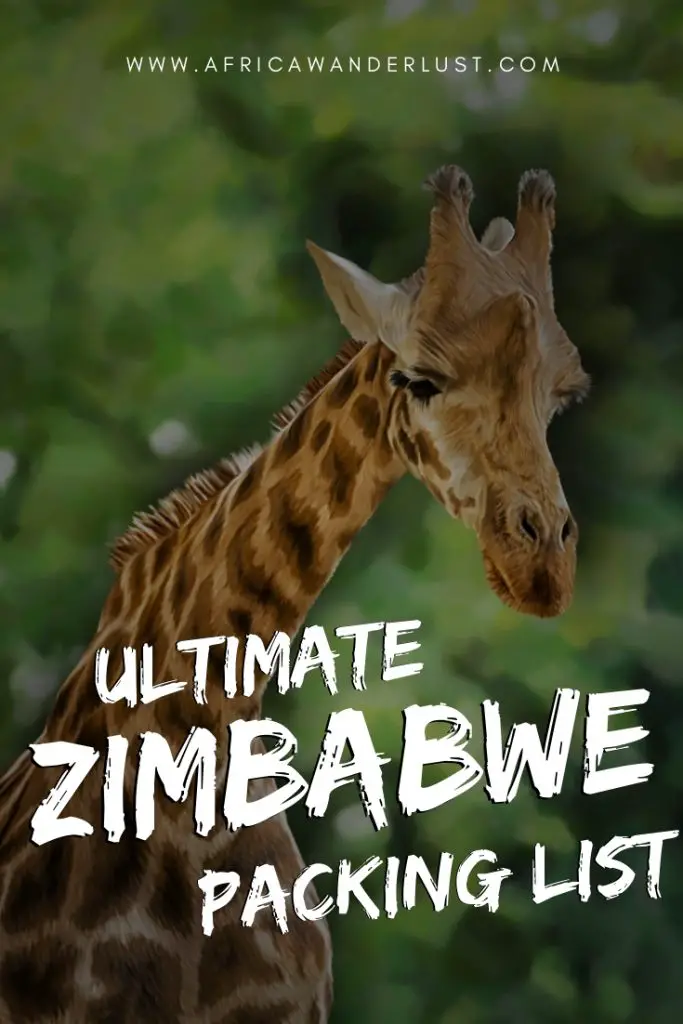
Do you know what always happens? I’m sure you guessed it! You end up forgetting your eye mask, water bottle, travel pillow, and walking shoes – of course, the most important things needed for the trip. So, I created this Zimbabwe travel ultimate packing list packed with travel tips for you (and me)!
This post will help you avoid mishaps like becoming a “Baked Potato.” As your upcoming trip approaches, let this guide be your go-to ultimate packing checklist for all the essential items you’ll absolutely need for your Zimbabwe travel.
But first, let’s share some info on why you should travel to Zimbabwe.
Why You Should Travel to Zimbabwe!
Zimbabwe is a spectacular African country famous for its widespread natural beauty, hospitable inhabitants and a large reserve of natural resources.
Boasting the gigantic Victoria Falls ; the largest waterfall in the world, Zambezi River, a tourist hotspot for game viewing , and Lake Kariba which is the largest man-made lake, Zimbabwe is a real treat for nature lovers. And if you are a great safari lover, then look no more.
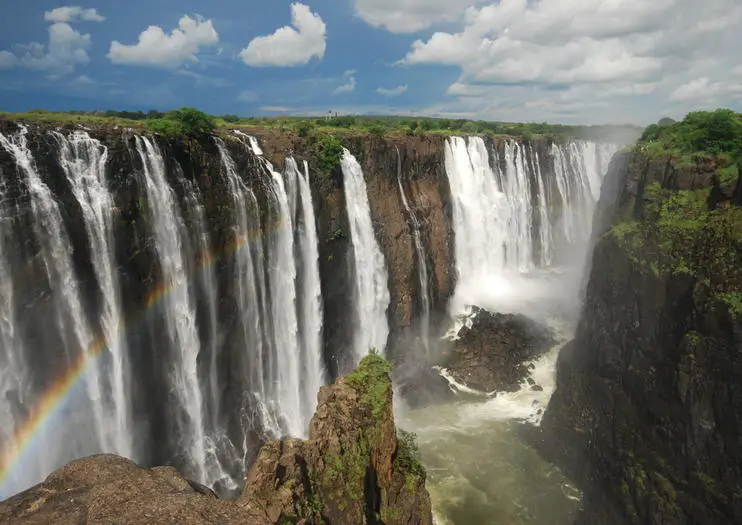
Zimbabwe features highly popular national parks such as Hwange and Mana Pools that offer an absolutely unforgettable African wildlife safari that is flourishing with its majestic herds of buffaloes and elephants. And let’s not forget about the Great Zimbabwe Ruins.
Your travel experience in this Southern Africa country will be filled with awe-inspiring natural wonders and throbbing with a rich cultural heritage .
After South Africa, Zimbabwe should undoubtedly be your next getaway destination if it isn’t already. I’m confident you’ll have a high degree of excitement and a time of a lifetime!
What are the Must-Have Packing List Items You Need for Your Zimbabwe Travel Experience?
Glad you asked! You’ve made up your mind about traveling to Zimbabwe and have even purchased your tickets and planned activities.
As your trip fast approaches, the next step you need to take is to get ready to pack your bags.
But before you’re in a hurry to get this done, keep in mind that to fully enjoy your Zimbabwe travel it is highly essential to pack your bag wisely. You’ll have to make sure you have all the essentials you might need throughout your trip.
To make things a little easier for you, I’ve created an ultimate packing list for your upcoming trip to Zimbabwe. Make sure you read the post thoroughly because you wouldn’t want to miss out on anything. Would you?
[su_button url=”https://africawanderlust.com/wp-content/uploads/2019/07/1-Zimbabwe-Travel-Ultimate-Packing-List-You’ll-Need.png” target=”blank” background=”#000000″ color=”#ffffff” size=”6″ center=”yes” radius=”5″ icon_color=”#e673a9″ text_shadow=”0px 0px 0px ” rel=”nofollow”]CLICK HERE TO DOWNLOAD FREE PACKING LIST[/su_button]
The list contains links for each of the items mentioned that can be easily bought online on Amazon. An asterisk denotes that your hotel may provide those items.
What to wear when in Zimbabwe? Well, it depends. Since the temperate can get as high 90 – 93°F (32 – 34°C) in the summer and as low as 45 – 50°F (7 -10°C) in the winter, having a mix of light and thick clothes is generally a great idea. Here’re clothes you should pack for your trip:
- Long Sleeves Shirts – are ideal for protecting your skin from the scorching sun and mosquito.
- Blouses – Packing some comfortable, earthy toned shirts is always a good option.
- T-shirts – Soft and lightweight T-shirts are a suitcase must-have for both men and women.
- Skirts – It is usually a good idea not to wear mini skirts when traveling to other countries because showing too much could be culturally inappropriate. Long, airy skirts are a Zimbabwe staple.
- Shorts / Capris – are the best item to beat the heat when going for game drives or safari.
- Jeans – Rainfall can often result in a lower temperature, so packing a pair of jeans for the cold evening is recommended.
- Pants / Trousers – Bring along some excellent quality pants for a night out or a formal evening program.
- Leggings – is nice to have as I find it very comfortable in the hot weather.
- Fleece sweater – are nice to have during the cold winter nights in Zimbabwe.
- Warm jacket – You should pack a couple of warm coats if visiting during the winter months, May through September.
- Scarves – Both men and women can benefit from nude-toned scarves during sunny afternoons.
- Raincoat – A raincoat is also a must-have during rainy seasons and especially when visiting the Victoria Falls.
- Hats / Caps – It’s a great idea to carry hats or baseball caps to protect your face in the sun in the summer months.
- Sunglasses – This is another staple that can help provide shade in the sunny Zimbabwe afternoons.
Packing your personal items is, so make sure to grab them.
- Bras / Sports Bras – Safari rides and game drives can get bumpy. Be fully prepared with a couple of sports bras at your disposal once you’ve reserved your trip with the tour operator or guide.
- Swimsuit – A swimsuit with a cover is a useful thing to bring along.
- Swimsuit Cover-up / Wrap – this is a traditional wrapping which can double as a scarf, a DIY (do it yourself) skirt or for shade.
The concept of a capsule wardrobe is pairing outfits with selections in your closet. That concept applies when you’re packing for a trip. Choose shoes that work well with the clothes you’ve packed and the activities you intend to do.
- Running / Walking Shoes – Comfortable and good quality hiking shoes are a must-have for safari trips and climbing up the mountains.
- Sandals – Lightweight and open shoes’ are a staple to walk around the city.
Often overlooked but necessary. I recommend putting your toiletry bag together in advance. Don’t forget your travel size shampoo, body wash/soap, antibacterial wet wipes, and hand sanitizer.
The last thing you want is to spend your day sitting on a dirty toilet seat. Maintaining proper hygiene while traveling is essential to have an A+ rated trip.
- Insect repellent – A mosquito repellents with DEET are highly recommended to counter the mosquitoes attack and avoid potential malaria infections. This brand served us well on our trip to DR Congo.
- Sunscreen – The general rule of thumb is to use a sunscreen with SPF-30 to protect your skin from sunburns during outdoor activities. Consider the waterproof option if you’ll participate in water sports.
- Conditioner*
- Perfume / Cologne
- Shaving Cream
- ChapStick / Lip Balm
- Sanitary Products
- Steamer (if you can’t stand the sight of rumpled clothes) This is the exact one I use.
This section is dedicated to all the female travelers out there.
- Makeup
- Makeup Remover
- Curling Iron / Hair Straightener
- Hair Dryer HO
- Face Moisturizer
Electronics
“What gadgets should I pack?” You might ask! Here are a few things to consider:
- Adaptor Plug – In my opinion, this is one of the most important items in this section because, without one of these, you most likely wouldn’t be able to charge your electronics once your battery runs out.
- Camera, Charger – A decent wildlife camera like this one might help you capture amazing animal shots on your safari tour.
- An extra camera Battery – If you want to capture the beautiful nature and the astounding wild, then make sure to pack a couple of fully charged spare camera batteries for your Zimbabwe trip.
- Cell Phone and Charger – I don’t expect you to forget your phone, but it’s on the list just in case.
- Tablet / Laptop / Kindle and Chargers
- Headphone – if you have an iPhone 7 or later, the audio jack is different than the regular audio jack. Having an earphone with a regular audio jack is nice to have handy, especially in local US flights and flights within Africa as they don’t provide an earphone for you. Or better yet, get a wireless Bluetooth earphone that has a great sound and long-lasting battery life. This is the one I use.
Meds/First Aid
It is crucial you remember to carry your medications. Travel health, safety, and security are of utmost importance. So, don’t forget to buy items in this category so you can quickly fix minor cuts sustained during outdoor activities.
- Allergy Medication
- Diarrheal – A few tablets on hand won’t hurt. Because when you need it, you need it! You can also purchase this medication over-the-counter for less.
- Birth Control
- Band-Aid / First Aid Kit
Travel Documents (The Important Stuff)
- Passport – make sure to apply in advance for a tourist or business visa if you need one to get into Zimbabwe because local authorities will check for it at the port of entry.
- Driver License or Photo ID – do you don’t carry your passport along with you everywhere, so a secondary piece of identification comes in handy for going to the club.
- Itinerary, Plane Tickets, Hotel (see this post on the best places to stay in Zimbabwe ), and Car Rental Confirmation
- Travel Insurance – Never a bad idea, especially if you’re a first-timer. The rules for receiving medical care are very different from that of the US.
- Immunization Records – Proof of immunization record may be needed before you’re allowed to enter the country. The CDC has an awesome vaccination guide for Zimbabwe. I once lost my immunization proof at an international airport. Luckily, this incident happened on our way back to the US. Be careful with these since they can easily slip out from your passport!
- Copy of Passport and Visa – an extra copy of your travel document, paper or digital, comes in handy should you lose your record. Believe me, it could happen to you.
Travel Essentials
- Purse and Wallet
- Carry On – choosing the best carry on can get daunting. To help make the decision process a little easier, learn more about what makes the best wheeled backpack for travel.
- Checked Bag / Packing Cubes
- Credit Card and Cash – make sure you have some cash on hand and only take two credit cards (maybe three if you must) with you. Avoid using your debit cards since the majority, if not all, US credit card has $0 liability.
- Money Belt – the reason I put this on the list is that my father-in-law always says that purchasing a money belt is the best travel advice he’s ever received from one of his friends.
- Towels – Some soft, microfiber towels that are easy to wash, drys quickly and portable
- Handkerchief
- Water Bottle
- Neck Pillow
- Blanket – don’t forget to carry your favorite blanket
- Flashlight / Packing Light – A torch or a flashlight could come in very handy during a late-night outing or power goes out.
- Binoculars – If you are real nature lover, then don’t forget to pack a pair of binoculars to have a close look at the safari natural wonders and wildlife. Read an in-depth review of the best binoculars for travel or home.
- Slippers – for maximum comfort on the plane and at the hotel room.
- Books / Magazine
- Snacks – your favorite meals you can’t do without is always a plus to have.
Whew! That was a long one. I hope you found this Zimbabwe travel and ultimate packing list helpful as you prepare for a trip of a lifetime.
If you forget a couple of items, don’t you worry! Zimbabwe has a lot of convenience stores and shops to get those everyday items. Just remember you may have to pay an arm and a leg to get that sunscreen! Be sure to monitor local media where you plan to travel to as it may provide additional ideas that I may have missed.
So what are you waiting for? Start packing your bags with the must-haves mentioned above. The natural marvels of Zimbabwe await your arrival!

Here’s a summary of the most essential items to park on your next Zimbabwe Travel:
- Long Sleeves Shirts
- Shorts / Capris
- Fleece sweater
- Hats / Caps
- Warm jacket
- Pants / Trousers
- Bras / Sports Bras
- Swimsuit Cover-up / Wrap
- Running / Walking Shoes
- Insect repellent
- Chapstick / Lip Balm
- Curling Iron / Hair Straighter
- Adaptor Plug
- Camera w/Charger
- Camera Battery
- Cell Phone w/Charger
- Tablet / Laptop / Kindle w/Chargers
- Driver License or Photo ID
- Itinerary, Plane Tickets, Hotel, and Car Rental Confirmation
- Travel Insurance
- Immunization Records
- Copy of Passport and Visa
- Credit Card and Cash
- Flashlight / Packing Light
* Hotel may provide these items.
I hope you found this Zimbabwe ultimate packing list helpful. If you did, you may also find helpful our series of post: the trip of a lifetime at Victoria Falls Zimbabwe , the breathtaking Great Zimbabwe Ruins: next to the Pyramids of Egypt!, 10 absolute best things to do in Zimbabwe , or the top 12 safest places to visit in Africa.
For an in-depth post on everything you need to know before visiting Zimbabwe, read our Zimbabwe travel guide . You are going to love it!
Love it? Share and Pin it!
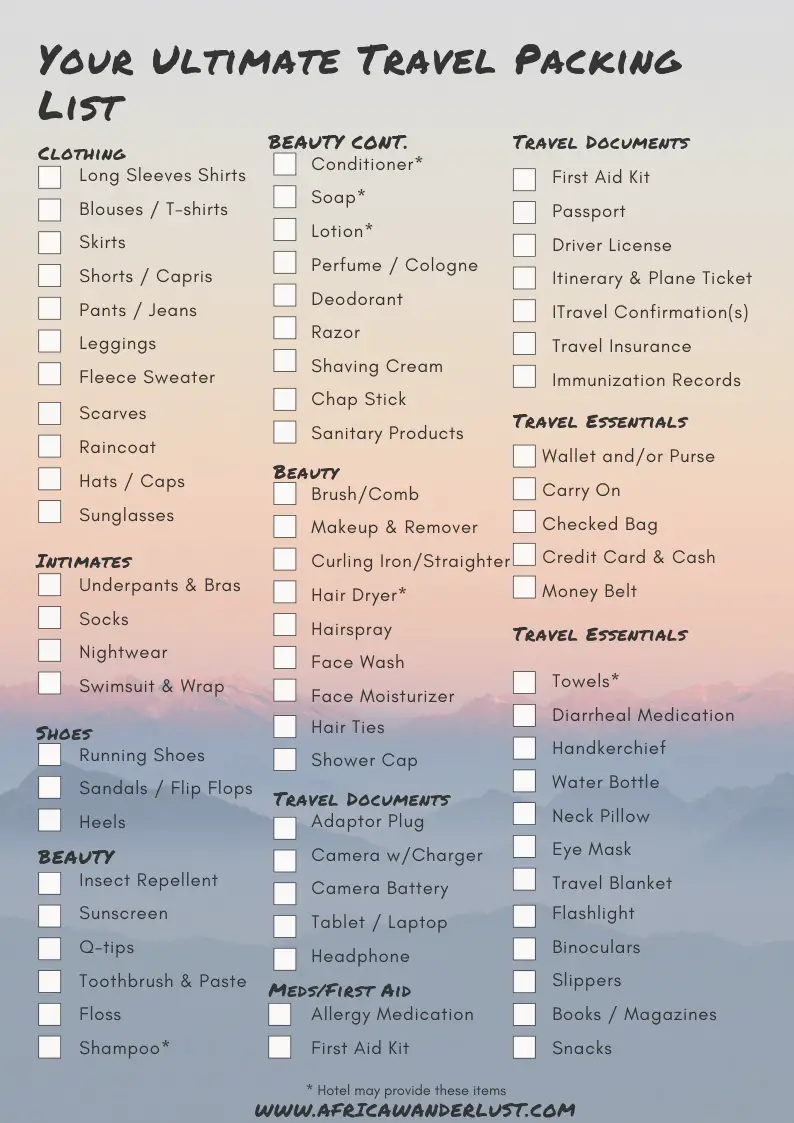
Similar Posts
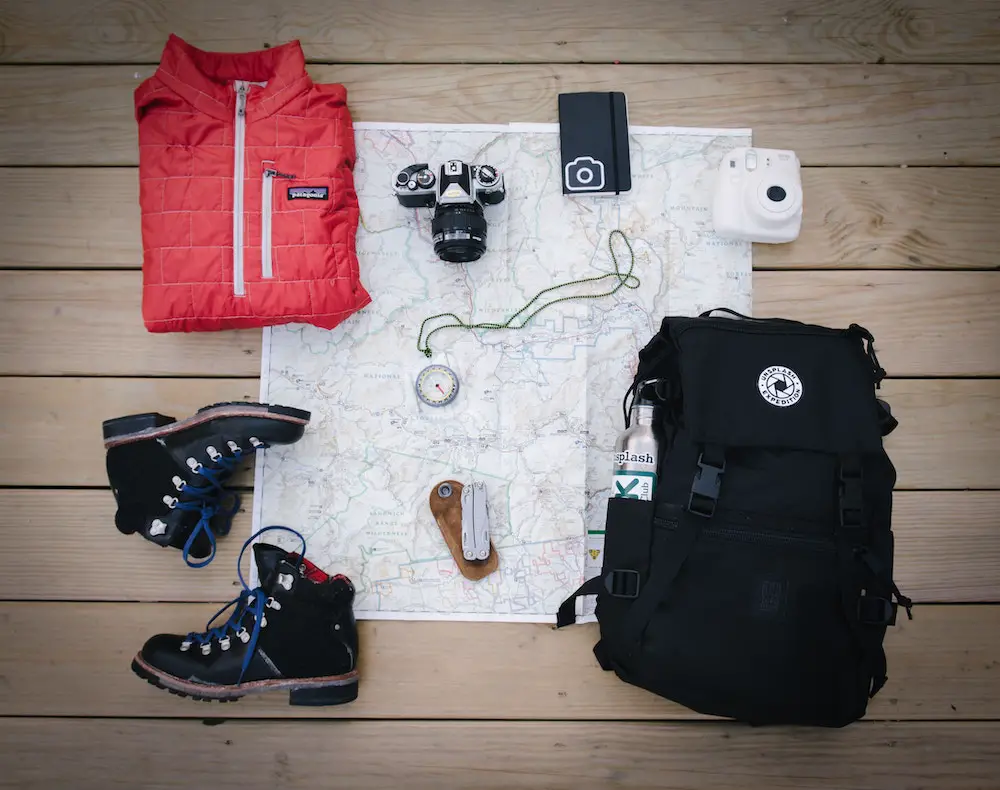
Kilimanjaro Packing List: What Should I Pack for Mt Kilimanjaro?
Packing list for two weeks: get ready for your annual leave.

The Trip of a Lifetime at Victoria Falls Zimbabwe
A detailed guide for your african safari packing list.
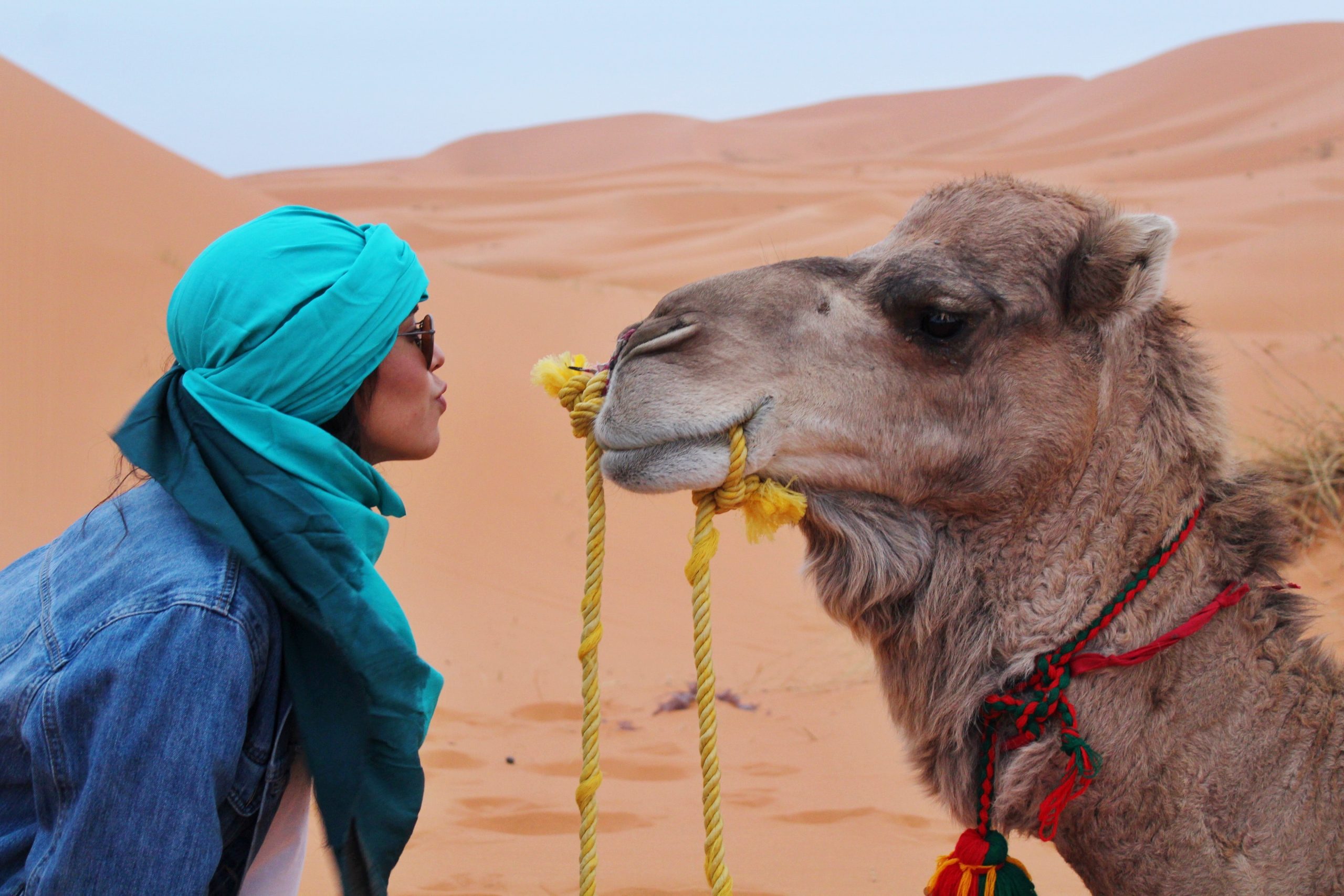
Morocco Packing List: What To Pack For Morocco
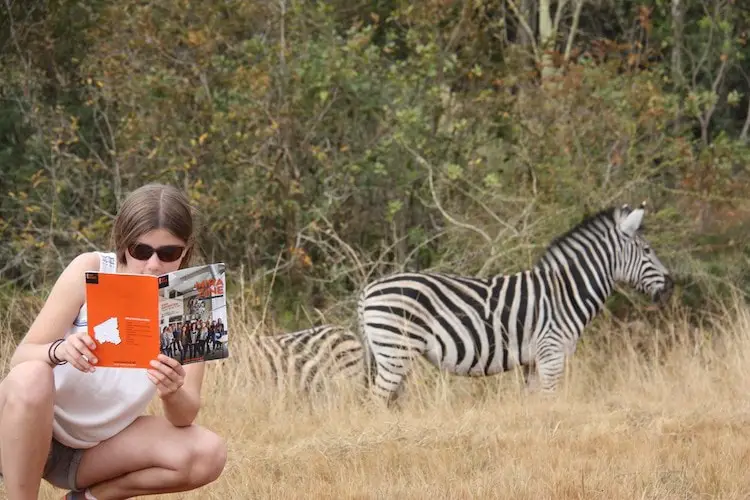
Eswatini Packing List: What to Pack for Swaziland (What NOT to Bring)
16 comments.
This is a great list (and checklist) for international travel. Your opening story had me hooked as I completely resonated with it. I would love to see Victoria Falls for my self one day, so I hope to get to refer back to your post for that specific trip. Thanks for sharing and I will be saving it for future reference.
Haha, I’ll have to let my hubby know that he’s not alone! I’m happy our post on Zimbabwe Travel Packing List is informational. Please let us know if there’s any other information you would like to see from us.
This is such a helpful packing list. I am really really wanting to travel to Zimbabwe soon so this is very helpful to read. And your photos are beautiful!
Thanks, Cate! I’m glad you found our post helpful. Please let us know what other information you might need as you plan your trip to Zimbabwe, Africa.
This looks like a comprehensive list. We always try to pack in advance, but it seems like we always do forget a thing or two. I probably wouldn’t think to bring immunization records, unless you had pointed it out.
Hey Lance, I’m the same way too, and that’s the reason I must have a list of some sort to remind me. Having your immunization records are vital when traveling to any country in Africa since an immigration officer can deny your entry with it. Frankly, it is usually the last thing on your mind when vacationing.
What a great comprehensive list. I will be checking this out if I ever get the chance to travel to Africa
Hello Chris, I’m glad our packing list was helpful. Please let us know if we could answer any questions on your travel plans to Africa.
Wow. What a comprehensive list. I always pack in the last minute and always end up forgetting something. This will be helpful for all future travels ?
Haha, I’m sure I can relate to that! I’m glad we could be of help. The nice thing about this packing list is you could use it for travel preparation to most Africa countries especially Southern and East Africa Countries.
This is an awesome list of things you would need to travel to Africa! This would be one of my dream trips – and I hope I get to travel there one day!
It’s our pleasure, Mandy! I hope you know we’re rooting for you. Should you need more travel ideas and inspirations, be sure to check out our other posts.
I love your opening story. Great exhaustive post on what to pack for an African trip. I would be sure to download the checklist for my next trip so I remember to carry those ear phones.
Thanks, Zeb! Remember to pin the PDF to Pinterest so that way you have it handy. I’m glad we could be an excellent resource for your Africa travel preparation. We plan on posting some exciting posts on Zimbabwe. Come back to learn more.
I love your checklist post! The best part is you can use the checklist as a guide for other local and international trips.
I completely agree with you, Taylor! You can also download the packing list as a PDF or pin it for later for your convenience. We plan on working on other packing lists for several African countries. Be sure to check back for an update.
Comments are closed.

Zimbabwe Entry Requirements
- Evisa.Express
- eVisa Zimbabwe Application
- Entry Requirements
Zimbabwe Entry Requirements comprise all the rules that one who wishes to travel to Zimbabwe must meet to cross the country's borders without any issues.
These requirements, i.a., determine documents that a traveler must prepare or obtain prior to travel, including a passport and visa.
If you are traveling to Zimbabwe, do remember to check your passport validity - it must remain valid for at least 6 months from the date of your intended arrival and have three blank pages.
Whether you need to obtain a visa for Zimbabwe depends on a few factors, including your nationality, travel purpose, as well as duration of stay in Zimbabwe. The Zimbabwe's visa policy specifies which countries' nationals may enter Zimbabwe visa-free and who is permitted to visit the country only when holding an appropriate valid visa.
At the moment, citizens of around 40 different countries are permitted to visit Zimbabwe without a visa as long as their stay will not exceed 90 days. They just need to present a valid passport at a given border entry point to enter Zimbabwe. Most of the visa-exempt travelers hold passports of other Southern and Central African countries and territories.
Additonally, there are over 200 countries in the world, whose citizens need to obtain a visa for Zimbabwe regardless of their intended travel purpose or planned duration of stay.
Zimbabwe also facilitates the visa application for travelers from nearly 170 different countries who are eligible for an e-Visa application. These applicant simply need to submit a short online form, pay the processing fee and receive the approved visa via email. The Zimbabwe electronic visa covers tourism, transit and business purposes. Depending on the selected type of a visa, you will be allowed to stay in Zimbabwe for different periods of time.
For any other long-term purposes, including studying or working, all travelers, including those eligible for e-Visa, will need to apply for a relevant visa or permit from the nearest Zimbabwean Embassy.
Currently, the Government of Zimbabwe does not ban any foreign nationals from entering the country.
There is also KAZA UNIVISA for Zimbabwe and Zambia issued on arrival at certain border entry points to particular travelers.
Amid the still-ongoing Covid-19 pandemic, the Zimbabwean authorities are still maintaining some covid-related restrictions . As for now, all passengers visiting Zimbabwe need to submit one of the following;
- proof of vaccination against Covid-19;
- negative PCR test report issued within 48 hours prior to departure flight.
There are no separate rules for those who recovered from coronavirus recently. They are subject to the same entry protocol according to their vaccination status. All travelers are also required to complete track and trace information upon arriving in the country.
Important note : If you consider traveling abroad, you must remember that Covid-19 restrictions may change at short notice. Some additional safety measures may be implemented by the country of your destination, even during your stay.
Who can enter Zimbabwe?
Zimbabwe welcomes travelers of all nationalities - vaccinated as well as non-vaccinated against Covid-19.
Documents check-list for entering Zimbabwe
- Zimbabwe visa
- negative PCR test result
- Covid-19 vaccination proof
- third-party liability insurance (mandatory)
- travel insurance (optional)
Testing, vaccination, and quarantine requirements
Testing requirements.
Non-vaccinated travelers must provide a negative test result performed no earlier than 48 hours before the intended trip to Zimbabwe. Fully vaccinated travelers can either present a negative test taken 48 hours prior to departure time or a valid vaccination certificate.
Vaccination Requirements
Zimbabwe recognizes all Covid-19 vaccine manufactures approved by the World Health Organization. It must have elapsed at least 14 days from receiving the last vaccination dose to be considered as fully vaccinated.
Quarantine Requirements
Currently, there is no quarantine requirement for arrivals to Zimbabwe. Nevertheless, returning residents who will not present a valid vaccination certificate or negative test result may be subject to on-arrival testing and a 10-day quarantine at their own expense.
Traveling from Zimbabwe
In order to depart Zimbabwe, you may need to provide a valid negative Covid-19 PCR test issued by an approved laboratory. Contact your airline or travel provider for more precise information on requirements that you need to meet to exit Zimbabwe.
Traveling to Zimbabwe
Before traveling to Zimbabwe, make sure to check carefully the guidelines of your airline. Sometimes it may be necessary to show a negative coronavirus test evidence to board the flight to Zimbabwe even if you are fully vaccinated and hold the vaccination proof.
Moreover, please be aware that airlines may change or even cancel flights at short notice. It is possible to book charter flights operating to Zimbabwe through a private company.
Monitor all the changes in international travel requirements and follow travel advice to ensure smooth access to the country.
Entry Rules for Children
Children below 5 years of age.
Children younger than 5 do not need to provide either a vaccination certificate or a negative Covid-19 test result.
Children between 5 and 17
Children in this age range must follow the same rules which are applicable to fully vaccinated travelers entering Zimbabwe.
Transit through Zimbabwe
Covid documents.
To transit through Zimbabwe, travelers must possess either a vaccination certificate confirming that they have received two doses of one or more the WHO-approved Covid-19 vaccinations or a valid negative result of a PCR test issued no earlier than 48 hours before departure time.
Please also remember to check directly with your airline whether they have implemented their additional transit requirements.
Transit visa
Most countries' citizens are also permitted to transit Zimbabwe visa-free if they do not leave an International Airport and they transit stop will not exceed 6 hours on the same calendar day. Bangladeshi and Pakistani passport holders, however, must obtain a transit visa for Zimbabwe no matter the planned duration of their tranist stop.
Zimbabwe visa requirements
Electronic visa.
The Zimbabwe e-Visa system was introduced to speed up the process of getting a necessary visa for short-term stays. The system removed the necessity to spend long hours in embassy lines or at immigration offices on arrival in the country.
An electronic visa for Zimbabwe is issued either as a single-entry or double-entry visa. Additionally, there is KAZA UNIVISA allowing entry not only to Zimbabwe but also Zambia. A holder of Zimbabwe e-Visa may visit the country for tourism, tranist, or business purposes. Depending on the selected visa type, the permitted duration of their stay may vary.
The application for a Zimbabwean online visa will take only a couple of minutes, and you will receive the approved visa delivered to your email inbox. Check if your nationality is listed among Zimbabwe e-Visa eligible countries and obtain your visa in 3 business days before the planned journey.
Regular Visa
There are around 45 different countries whose nationals must get a visa from a Zimbabwean embassy or consulate regardless of their travel reason or desired duration of stay in Zimbabwe. A regular visa for Zimbabwe is issued for various periods depending on the traveler's nationality and their traveling motives.
Individuals must remember to apply for an embassy or consular visa well in advance since the application process can take even several weeks. Moreover, in most cases it will be necessary to provide some supporting documents. These documents vary according to the particular visa type you are applying for. Contact the nearest embassy for more information on how to obtain a visa covering your travel plans.
The following countries must obtain a regular visa for Zimbabwe:
- Aland Islands
- American Samoa
- British Indian Ocean Territory
- British Virgin Islands
- Cayman Islands
- Christmas Island
- Cocos Islands
- Cook Islands
- Falkland Islands
- Faroe Islands
- French Guiana
- French Polynesia
- Isle of Man
- New Caledonia
- Norfolk Island
- Northern Mariana Islands
- Pitcairn Islands
- Puerto Rico
- Saint Barthelemy
- Saint Helena
- Saint Martin
- Saint Pierre and Miquelon
- Sint Maarten
- South Georgia and the South Sandwich Islands
- Svalbard and Jan Mayen
- Turks and Caicos Islands
- United States Virgin Islands
- Wallis and Futuna
Visa on Arrival
Zimbabwe offers on arrival visa facility at certain border checkpoints across the country. Visa on arrival is issued for short stays covering tourism or business purposes. Its holder is allowed to stay in the country up to 3 months with a tourist visa, and up to 30 days with a business visitor permit.
To obtain a VoA, eligible travelers need to go directly to an immigration checkpoint in Zimbabwe and complete the visa application procedures, including providing passport data, personal details, as well as travel information. It may also be necessary to provide some supporting documents. Moreover, every traveler must cover a visa on arrival fee to successfully complete the application process.
Nationals of the countries eligible for e-Visa, are highly recommended to obtain a visa online in advance as it will help them save plenty of time that they would have to spend awaiting at the Zimbabwean border.
The following countries are eligible for Zimbabwe Visa on Arrival:
- Bosnia and Herzegovina
- Brunei Darussalam
- Czech Republic
- Dominican Republic
- El Salvador
- Equatorial Guinea
- Federated States of Micronesia
- Liechtenstein
- Marshall Islands
- Netherlands
- New Zealand
- Palestinian Territory
- Papua New Guinea
- Russian Federation
- Sao Tome and Principe
- South Korea
- Switzerland
- Turkmenistan
- United Arab Emirates
- United States
- Vatican City
Visa-exemption
Currently, there are approximately 40 different countries whose nationals are exempt from the requirement to hold a visa for Zimbabwe for stays lasting maximally 90 days. The purpose of their visit must be tourism or business-related.
Most of these visa-exempt travelers are citizens of other South and Central Africa countries. Moreover, some Southeast Asian nations, as well as Caribbean islands, are also allowed to visit Zimbabwe visa-free. These travelers just need to hold a valid passport to enter Zimbabwe without a visa.
The full list of visa-exempt countries comprises the following:
- Antigua and Barbuda
- Democratic Republic of the Congo
- Republic of Cyprus
- Saint Kitts and Nevis
- Saint Lucia
- Saint Vincent and the Grenadines
- Solomon Islands
- South Africa
- Trinidad and Tobago
- United Kingdom
Passenger Locator Form
The Government of Zimbabwe did not introduce the requirement to complete the health declaration before arrival in the country. However, all travelers need to submit track and trace information on arrival in Zimbabwe.
Travel Insurance
It is recommended to purchase personal insurance from reputable international companies. Third-party liability insurance is obligatory. A short-term policy can be purchased at the border.
Since there are outbreaks of cholera across the country, malaria in lower-lying areas (Kariba, Victoria Falls), and the incidence of AIDS is very high, all travelers should obtain comprehensive travel insurance policy covering overseas medical costs including Covid-19 treatment.
International Air Transport Association (IATA) represents and serves air travel industry with advocacy and global standards for safety, security, efficiency.
trusted by over 800,000+ travellers, and partners including:

Evisa Express uses cookies and similar technologies for statistical and analytical purposes to optimize usage. By continuing to browse the site, you are agreeing to our use of cookies. If you do not change the settings, cookies will be saved in your device's memory. Cookie Policy and Terms of Service.
TOP DESTINATIONS
- Kruger Park
- Okavango Delta
- Serengeti National Park
- Victoria Falls
TOP COUNTRIES
- South Africa
TRAVEL DEALS
View All Travel Deals
SOUTHERN AFRICA
East africa, indian ocean islands, top experiences.
- Beach Holidays
- Family Safaris
- Honeymoon Safaris
- Desert Safaris
- Luxury Rail Safaris
- Multi-Generational Safaris
- Positive Impact Safaris
- Photographic Safaris
- Walking Safaris
WILDLIFE SAFARI
- Big Five Safaris
- Birding Safaris
- Gorilla Trekking Safaris
- Migration Safaris
- Mobile Camping Safaris
- Horseback Safaris
FEATURED EXPERIENCES
Comfort levels, property types.
- Tented Camps
- Boutique Hotels
Featured Safari Collections
- Elewana Collection
- Newmark Hotels
- Green Safaris
- The Safari Collection
GET TO KNOW US
- Meet The Team
- Pricing Explained
- Traveller Reviews
- Traveller Stories
- Why Book With Us?
- HerdTracker
- Safari Cost Calculator
- South Africa In 360
- Trusted Safari Partners
- Newsletter Sign Up
What are you looking for?
- Multi-generational Safaris
- Positive Impact
- Meet the team
- Why book with us?
- Herdtracker
- Safari Cost Estimator
Hello traveller!
It's in Cape Town now.
We're sorry. Our safari planners aren't available now. Our office hours are 08:00 - 19:00 (GMT+2).
Call us to speak to an experienced safari planner.
Alternatively, we recommend...
Schedule a phone or Zoom call with one of our safari planners
Complete our travel enquiry form to connect with a safari planner
10 Places You Have to Photograph in Zimbabwe

Adelle Bell
Safari Travel Planner
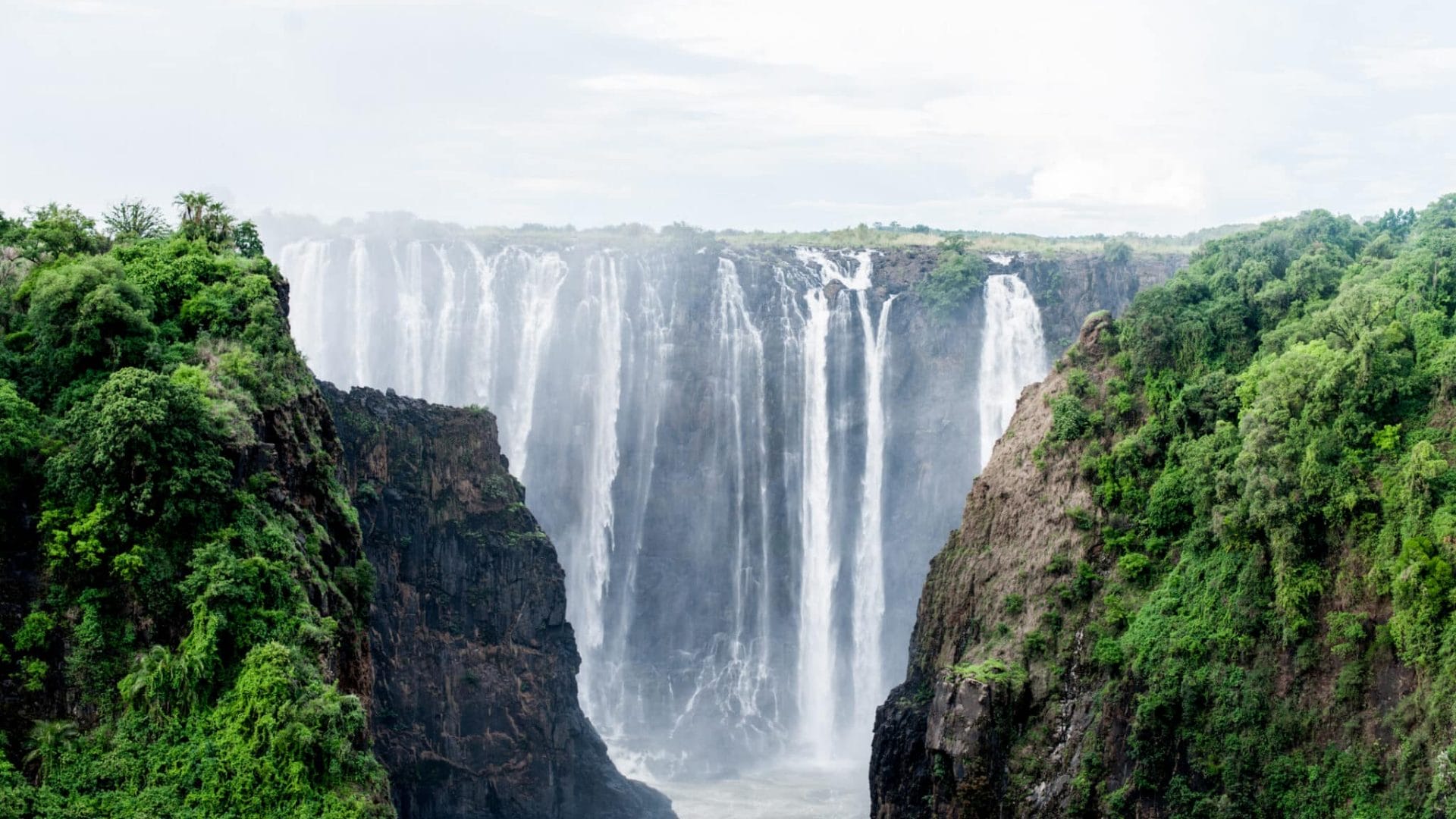
Author: Adelle Bell
Published: 11 September 2024
Last Update: 9 September 2024
With its extraordinary landscapes, abundant wildlife, and enigmatic historic ruins, you can’t go wrong with Zimbabwe for photographic safaris . The landlocked country has some of the most breathtaking scenery on the African continent – if not the world.
Its photographic highlights include the dramatic granite formations of Matobo National Park , the ancient stone ruins of Great Zimbabwe , the rock art sites of Mashonaland and Matabeleland, and the stunning riverine forests of Mana Pools National Park. Then, of course, there’s Victoria Falls – photographing this natural wonder from the air is on many a traveller’s bucket list.
Though it’s utterly impossible to list all of Zim’s extraordinary photographic destinations, we have highlighted 10 of the very best that every keen shutter-bug should add to their plans. Read on to learn more about them.
1. Hwange National Park

Located in the northwest corner of Zimbabwe, Hwange National Park is the country’s largest natural reserve. It encompasses semi-desert scrub, vast savannahs, mopane woodlands, teak forests, and dramatic granite hills. Its extraordinary wildlife includes more than 100 mammal species and it’s home to one of the largest elephant populations in the world.
The park’s many other species include lions, leopards, African wild dogs , buffalos, sable, roan,, giraffes, wildebeest, and even gemsbok (oryx). And, with more than 400 bird species recorded, “twitchers” will be in their element here. The park has several lodges and campsites for accommodation. Each offers guided game drives, walking safaris, and night drives.
- Best For: Elephants, lions, and African wild dogs. Other rare animals seen here include aardvarks, porcupines, servals, and the extremely rare and critically endangered pangolin .
- Photographic Highlight: An image of elephants silhouetted against the vivid colours of a classic African sunset.
2. Mana Pools National Park

Mana Pools National Park lies below the Zambezi River, which forms Zimbabwe’s border with Zambia. In fact, Zambia’s Lower Zambezi National Park is on the opposite bank, making this an open environment for free-ranging animals like elephants and hippos.
In 1984, UNESCO proclaimed Mana Pools as part of a World Heritage Site, citing its untouched wildness and notable natural beauty. Once you’re here, you’ll understand. Its landscapes are a combination of riparian forests, with mahogany, ebony, baobab, and vachellia (acacia) trees, and the expansive floodplains of the Zambezi River.
The park is renowned for large populations of hippos and crocodiles and also hosts elephants, lions, leopards, buffalos, and many antelope species. More than 380 bird species, including waterbirds and woodland species, make it a birding hotspot. Accommodation in Mana Pools ranges from safari lodges and luxury tented camps to a variety of unfenced camping sites along the river.
- Best For: Hippos, crocodiles, and elephants. Endangered cheetahs, wild dogs, and brown hyenas are also seen here. Mana Pools is also renowned for its superb walking safaris .
- Photographic Highlight: Close-ups of wildlife during guided walking safaris, including elephants standing on their hind legs to pick fruit.
3. Matobo National Park

Granite koppies, ancient and weirdly balancing rock formations, and wooded valleys: that’s Matobo National Park. Located in the southern part of Zimbabwe , near Bulawayo, it’s another UNESCO World Heritage Site steeped in natural and historical significance. Perhaps its most notable feature is its granite “kopjes”, called matobo (bald heads) in IsiNdebele, which dot the landscape.
In terms of wildlife, the park is particularly famous for its successful rhino conservation efforts, making it one of the best places to see both black and white rhinos. Matobo is also known for its leopards – of which it may well have the world’s densest population – as well as zebra, wildebeest, giraffe, and a diverse range of bird species. It’s equally renowned for its stunning ancient rock art , as well as hiking, rock climbing, and mountain biking. Accommodations in the park range from luxury lodges to more affordable options and camping sites.
- Best For: Rhinos, leopards, rock hyrax (dassies), black eagles, and ancient rock art.
- Photographic Highlight: Capturing images of rhinos with a backdrop of unique rock formations.
4. Gonarezhou National Park
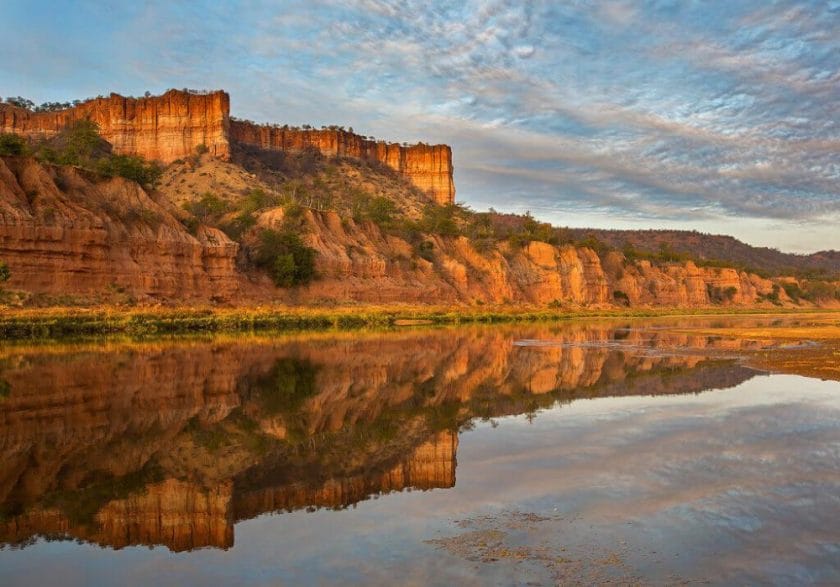
Towering red sandstone cliffs, baobabs, and rivers: Gonarezhou is a hidden gem for photographers and wildlife lovers. It’s off the beaten track, too, meaning it’s far less frequented than other parks. As part of the Great Limpopo Transfrontier Park, it borders Kruger National Park in South Africa and Limpopo National Park in Mozambique. As such, it’s a prime example of this region’s vast, rugged terrain.
Many consider Gonarezhou to be one of the last remaining pristine wildernesses in Africa. Its most iconic feature is the imposing red sandstone Chilojo Cliffs , which make for some incredible photography. It’s also home to the Big Five and an elusive population of African wild dogs.
Baobab-dotted scrubland, vachellia (acacia) woodlands, riverine areas and vast mopane forests, provide habitats for large herds of elephants. The park is also famous as an adventure and 4×4 destination . Accommodation in Gonarezhou includes self-catering options, camping sites and luxury lodges.
- Best For: Elephants, buffalo, antelopes and self-drive safari adventures.
- Photographic Highlight: The majestic Chilojo Cliffs at sunrise.
5. Victoria Falls

Victoria Falls ; Mosi-oa-Tunya ; The Smoke That Thunders. No matter what you call it, this is one of Africa’s most iconic natural spectacles and one of the world’s largest waterfalls overall. It marks the transition from the Upper Zambezi to the Middle Zambezi, spanning a width of 1,708 m and plunging up to 108 m below.
This UNESCO World Heritage Site is shared by Zimbabwe and Zambia. On the Zimbabwean side, Victoria Falls National Park extends several kilometres each side of the falls and is prime habitat for species like elephant, buffalo, white rhino, and many antelope.
The mist-soaked landscapes around Victoria Falls are as spectacular as the falls themselves, with lush rainforests, thrilling gorge views, and very photogenic rainbows. Several adventure activities are on offer, and the wide range of accommodation options include luxury hotels, lodges and tented camps , as well as more budget-friendly options .
- Best For: A vast number of activities, beautiful rainbows, lush rainforests, dramatic gorge views, and birds like the iconic African fish eagle.
- Photographic Highlights: Too many to list, but the cascading falls under a full moon has to be up there!
6. Lake Kariba

Straddling the border between Zimbabwe and Zambia, Lake Kariba is the world’s largest man-made lake by volume. Its expansive waters are marked by skeletal tree trunks that rise eerily from the still waters and offer an amazing setting for photography.
The wildlife around Lake Kariba is abundant, with large populations of hippos, elephants, and crocodiles, in particular. Its birdlife includes herons, kingfishers and African fish eagles. Fishing from traditional wooden fishing boats is a popular activity here, as are luxury boat cruises . Accommodation around Lake Kariba ranges from luxury lodges , safari camps , and houseboats to more affordable rustic campsites ideal for family holidays.
- Best For: Sunsets, hippos, water birds, fishing, and boat cruises.
- Photographic Highlight: Evocative shots of the silhouettes of skeletal trees during the golden hours.
7. Kazuma Pan National Park

Lesser-known Kazuma Pan National Park is a protected area in the extreme northwest of Zimbabwe. In contrast to the country’s hilly and mountainous regions, it offers a blend of panoramic plains landscapes, abundant wildlife, and plenty of birdlife in an unspoiled, tranquil and diverse environment. Animals tend to congregate in the park’s vast grasslands, dense mopane woodlands, and around seasonal water pans.
The park attracts a multitude of bird species like ducks, cormorants, cranes, and storks, and is renowned for its large herds of buffalo and elephants. Lions, leopards, giraffes, zebras, eland, reedbuck, gemsbok, roan, sable, and tsessebe all occur here. There’s no formal accommodation in the park, but that doesn’t mean you can’t visit for a safari.
- Best For: Buffalos, elephants, and bird species, particularly waterbirds.
- Photographic Highlight: Capturing images of birds like egrets, storks, and pelicans taking off from the pans.
8. Chimanimani Mountains

Forming part of the Eastern Highlands on the border between Zimbabwe and Mozambique, the Chimanimani Mountains include the country’s second-highest peak, Monte Binga. Here, visitors can see unique montane plant ecosystems bisected by numerous waterfalls, crystal-clear streams, and deep gorges. If you’re into landscape photography, you should definitely include this destination on your Zimbabwe itinerary.
Its astonishing flora includes rare orchids and aloes, which you can explore on several well-marked hiking trails. Other activities include horse riding, fishing, and golf. Chimanimani National Park protects much of the landscape, and although it’s not a Big Five destination, it’s notable for its birdlife. Accommodation in the Chimanimani area ranges from camping sites to comfortable lodges.
- Best For: Landscapes, waterfalls, and stunning endemic plants.
- Photographic Highlights: Sweeping vistas from the mountain peaks and capturing images of stunning floral specimens.
9. Matusadona National Park
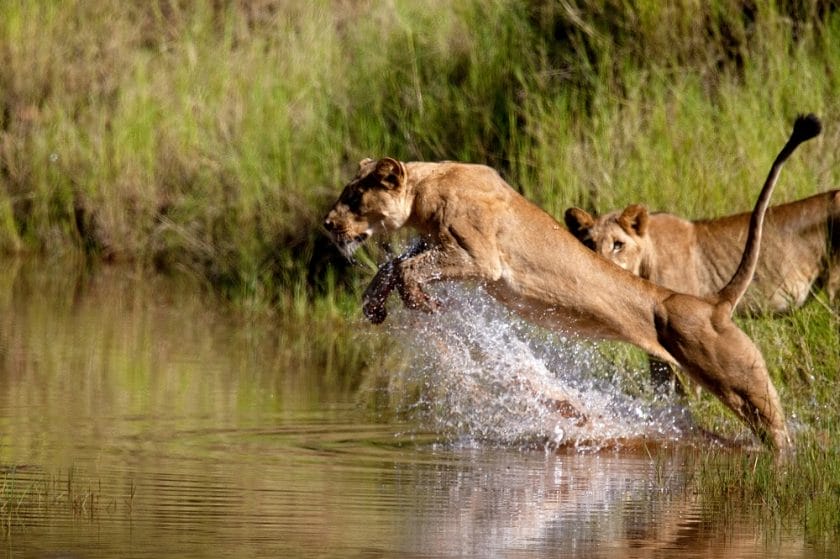
Matusadona National Park extends to the shores of Lake Kariba in northern Zimbabwe . Like the lake itself, it’s a remarkable photographic destination, with scenery ranging from the tranquil albeit crocodile-infested shores of Lake Kariba to the rugged mountains of the Zambezi Escarpment.
As you can see wildlife all over Zimbabwe, the park is no different. It has many herds of African elephants and impressive lion prides, making for some epic wildlife photography. Activities on offer include game drives, walking safaris, and boat cruises. The park offers a range of accommodation options, from luxury lodges and houseboats to more rustic bush camps and camping sites.
- Best For: Lions, elephants, and lake views as the light changes across the water.
- Photographic Highlight: Reflection shots of animals in the mirror-like surface of the lake during the early morning.
10. Nyanga National Park

Nestled in the tranquil Eastern Highlands of Zimbabwe, Nyanga National Park protects Zimbabwe’s highest point: Mount Nyangani. As a result of its extreme montane environment, the park is home to interesting species like the endemic Nyanga aloe and healthy populations of blue duikers and samango monkeys.
The landscape comprises rolling green hills, high-altitude grasslands, and mist-covered mountains, which hide some of Zimbabwe’s most important archaeological sites. Mount Nyangani is a magnet for photographers, not just for its imposing peaks, but for the views it offers of the surrounding landscapes. There are also numerous cascading waterfalls here, including Mutarazi Falls, the highest in the country.
Wildlife found here includes kudu, eland, sable antelopes, leopard, and abundant birdlife. Hiking, horse riding, and trout fishing are popular activities, and the accommodation options range from luxury lodges to comfortable chalets and camping sites.
- Best For: Landscapes, spectacular Nyangombe Falls and Mutarazi Falls, and the ancient ruins of pit structures.
- Photographic Highlight: Wide-angle shots of Mount Nyangani, Zimbabwe’s highest peak.
At Discover Africa, we know that Zimbabwe’s remarkable landscapes and rich wildlife make it a premier destination for visitors, wildlife enthusiasts, and photographers alike. From iconic Victoria Falls to the serene wildernesses of the country’s breathtaking Eastern Highlands, a safari in Zimbabwe offers unrivalled opportunities for every photographer, whether you’re a veteran or a part-time shutterbug.
10 Must-Try Dishes From South Africa
Related Safari Tours
These popular itineraries can be customised to match your budget and how many people you're planning to travel with..
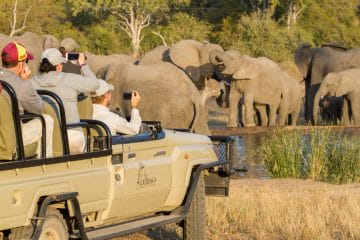
South Africa Big 5 Safari and Victoria Falls Jo...
Southern Africa South Africa Timbavati Sabi Sands Zimbabwe Victoria Falls
From $ 4090 /USD
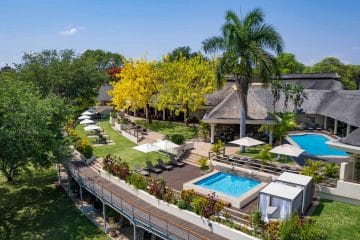
Vic Falls, Hwange and Matusadona Safari
Southern Africa Zimbabwe Hwange Victoria Falls
From $ 4820 /USD
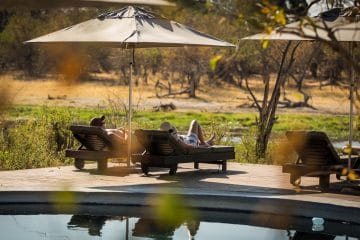
Untamed Botswana and Zimbabwe Safari
Southern Africa Botswana Okavango Delta Zimbabwe Hwange
From $ 6820 /USD
What Our Guests Have to Say?
Read recent reviews from travellers who have planned and booked their trips with us.
10 Day South African Adventure Review
Diana, Romania 03 Jan 2024
Many thanks adelle for your precious help.
Timbavati & Sabi Sands Safari Review
Donald, Canada 01 Nov 2022
Fantastic tour all arranged by discover africa.
Cape Town, Garden Route and Safari in South Africa Review
Alison Hilk, United Kingdom 03 Oct 2022
Hassle free and very professional service from start to finish..
Motswari Game Reserve & Cape Town Tour Review
Debbie, Australia 16 Mar 2020
First class experience.
Zambia,Zimbabwe & Mozambique Holiday Review
Colin Duncan, United Kingdom 03 Jan 2018
Perfect arrangements & fast service..
Cape Town Holiday Review
Sharan, Singapore 06 Jan 2017
We have 5 rating for 447 reviews
We have 4.7 rating for 35 reviews
We have 4.9 rating for 73 reviews
Join our newsletter
Sign up to receive exclusive offers, safari inspiration, and expert tips straight to your inbox.
By proceeding you agree to our Privacy Policy and Terms & Conditions .
POPULAR DESTINATIONS
Popular tours.
- Luxury Explorers Safari in Botswana
- Romantic Cape Town & Luxury Safari
- Masai Mara and Serengeti Combo
- Wildlife and Gorillas of Rwanda
- Luxury Honeymoon in Mauritius
POPULAR ACCOMMODATIONS
- Sabi Sabi Earth Lodge
- Chobe Game Lodge
- Khwai Lediba
- Camp Okavango
- Khwai Leadwood
QUICK LINKS
- Safari Cost Estimator Tool
- [email protected]
POPULAR DESTINATION
This website uses cookies to ensure you get the best experience on our website. Learn more
- Australian Dollars
- British Pounds
- Canadian Dollars
- New Zealand Dollars
- South African Rands
- Swiss Francs
- U.S. Dollars
Talk to an expert +44 203 405 6666 Lines open now

Traveller reviews
Travel reviews by Deb from Florida
Review Distribution
Total number of trips
Countries visited
Lodges stayed in
Excursions taken
Exceeded expectations
Zimbabwe and 1 other country between 22 Aug 2024 and 6 Sep 2024
Arranged By Anton Walker
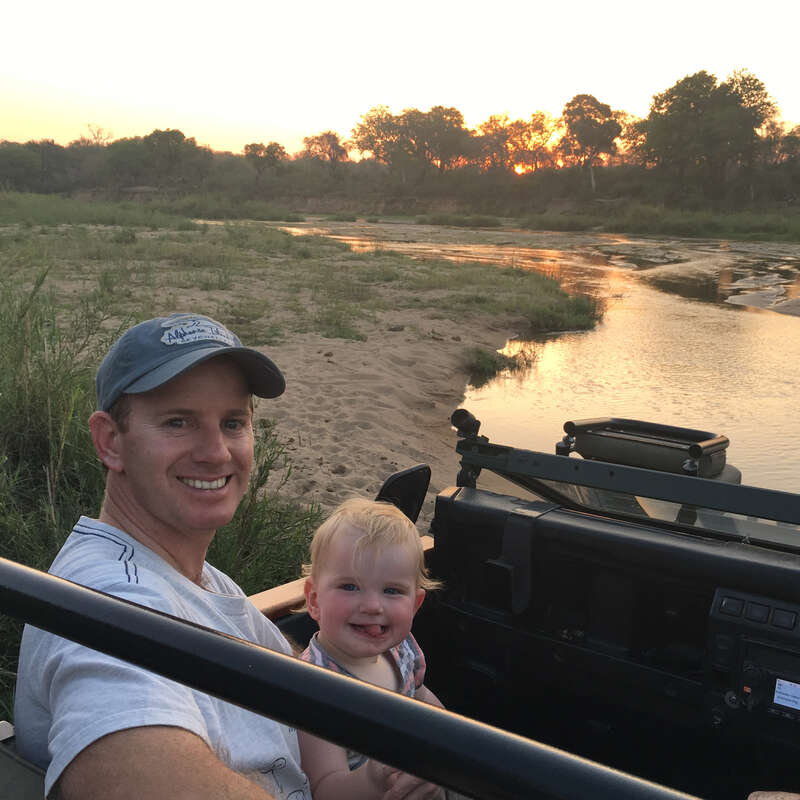
Old Drift Lodge
"Old Drift Lodge review"
Many sightings
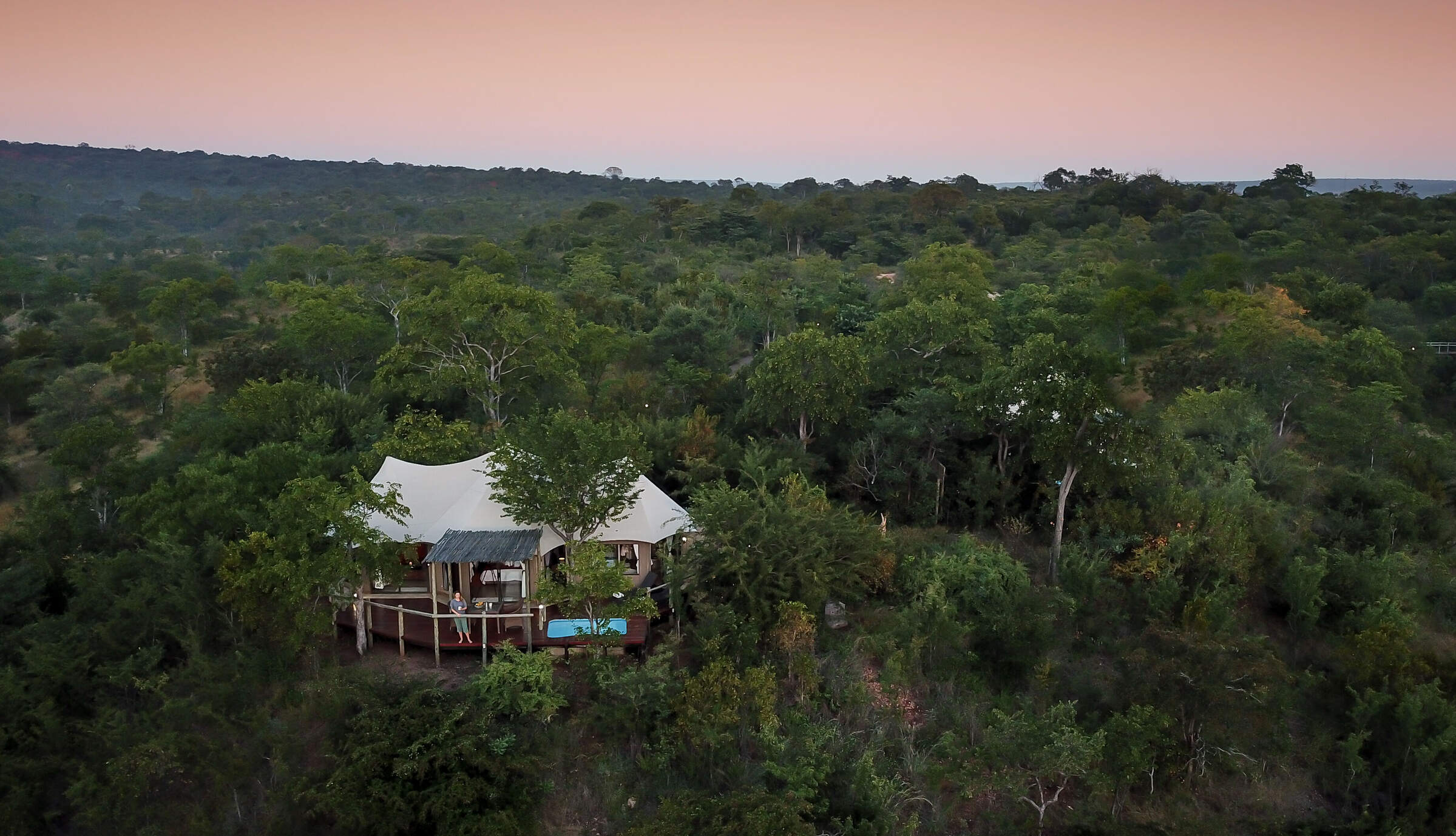
The Elephant Camp
"The Elephant Camp review"
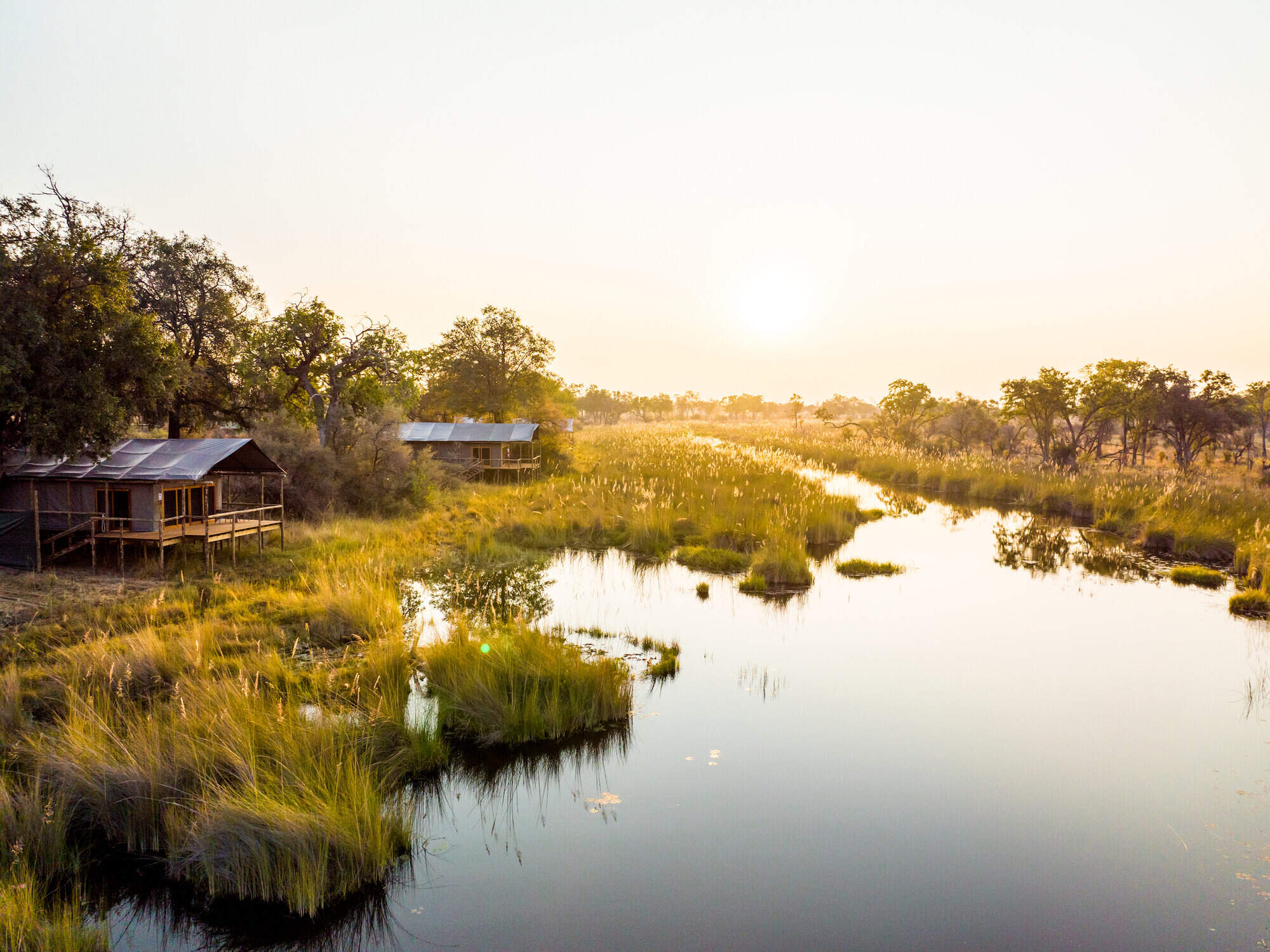
"4 Rivers review"
10+ sightings
2 sightings
4 sightings
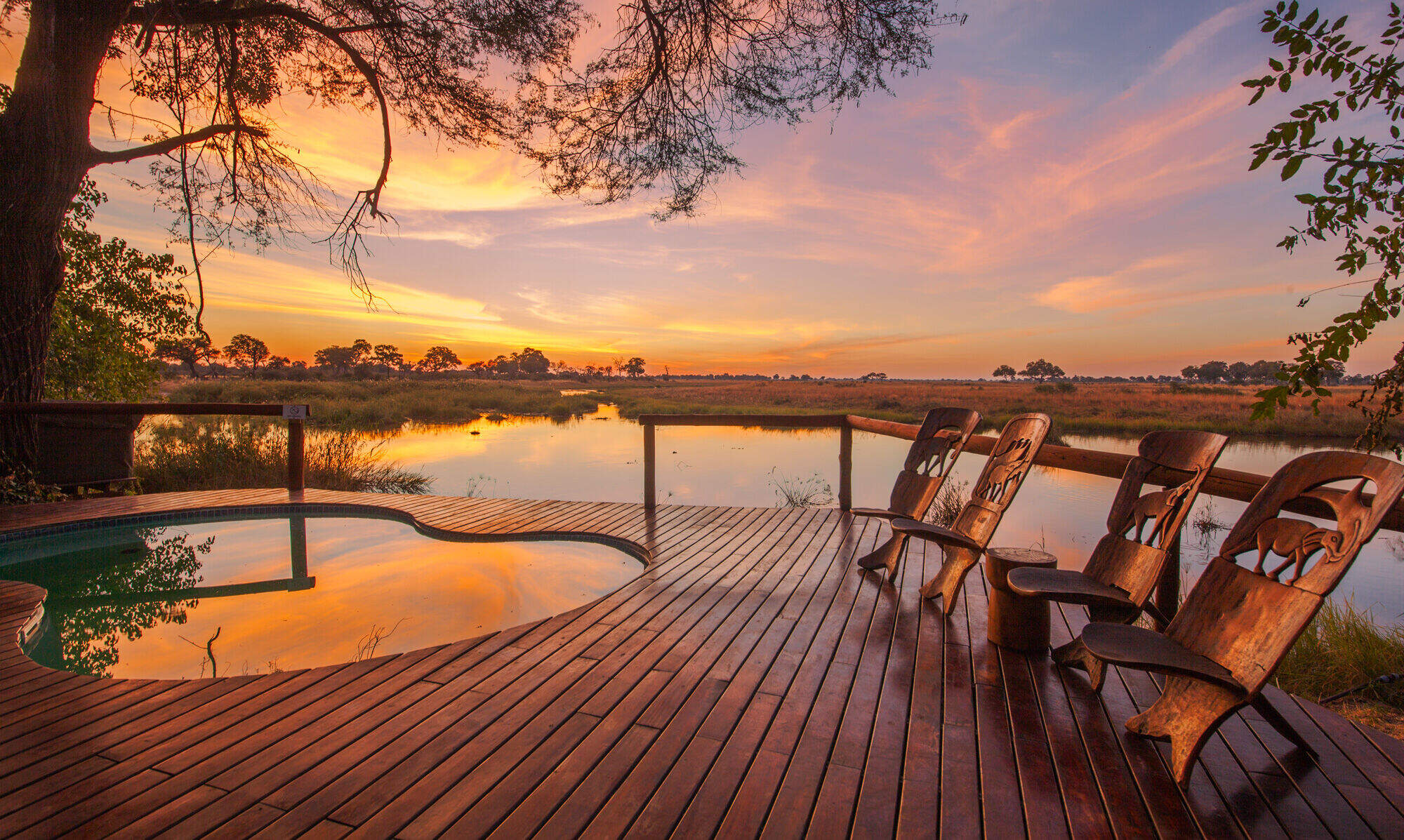
Lagoon Camp
"Lagoon Camp review"
6 sightings
Spotted Hyena
5 sightings
Login to Expert Africa
Sign in with password
Sign in with email link
New to Expert Africa? Create an account
Forgotten your details?
It's free & quick to set up
- Save your wish-list
- Send us an enquiry
- Pay online for your trip
- Subscribe to our newsletter
- Give us feedback on your trip
- Full site benefits of the site
Need some help? Talk to our team
- Arts & Culture
TV review: The Grand Tour: One for the Road is a very watchable travel show
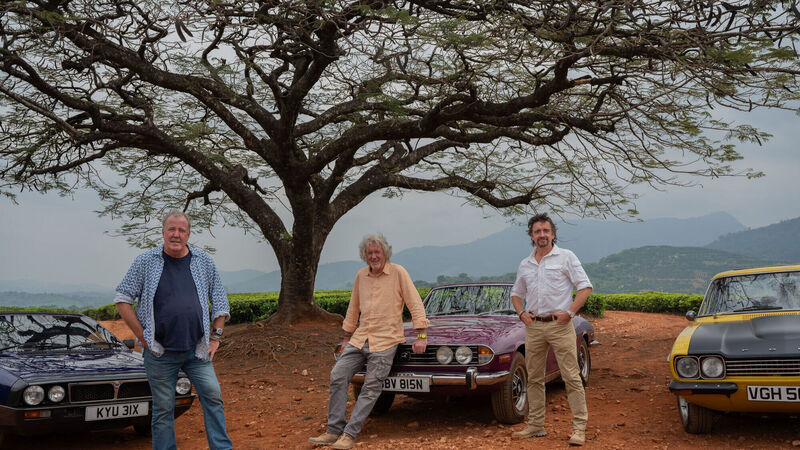
Jeremy Clarkson, James May and Richard Hammond travel to Zimbabwe. Picture: Prime Video/PA Wire
I was an hour in before I laughed out loud at The Grand Tour: One for the Road (Prime Video). It was James May saying “oh no we won’t” when Hammond told them to stop banging on about his time in the pantomime. You had to be there.
I liked Clarkson, Hammond and May in Top Gear on BBC, before they became like Brexit in a Hillman Hunter. The Brits being assholes abroad bits are gone now, in this last hurrah on Prime Video.
This is essentially a travel show about Zimbabwe and no one wants to see wealthy middle-aged Brits making lame jokes about the locals. So instead we’re invited to believe they drove east-west across the country, got lost, headed north and followed the Zambezi westwards instead. They also bought a load of silver and rolled a VW Beetle off a cliff. They did the trip in three classic cars from the 1970s. They didn’t say “that was the last time anything was any good”, because they didn’t need to.
It was a lot like a recent weekend reunion I had with three friends in their 50s. (Except for the VW Beetle.) Everyone was in character. James May was grumpy, Hammond was perky, Clarkson likes a drink. They sniped at each other about the same things they’ve always sniped about, just like my friends and I did in Glengarriff.

There was just the right amount of disdain for health and safety. Clarkson calling his little river ferry HMS Shitfaced was a nice joke within a joke. He referred to James May as Greta Thunberg, but not in a nasty way.
They spent a lot of time drinking on their river ferries, making wistful comments about this being the last show for the three of them. It probably won’t be.
It was pointless in the way middle-aged men slowly realise life is pointless. Rather than finishing at the western border of Zimbabwe, they ‘decide’ to cross into Botswana and the place where they made their first special. The cars start to fall apart, in sympathy with their drivers.
The genius of Clarkson’s Top Gear was to make it more about the presenters than the cars. It lost its way because three middle-aged English blokes are bound to make dodgy comments about the natives. They copped on to that, and now it’s a very watchable TV travel show. Particularly if you’re a middle-aged man who’s learned not to take life too seriously. If you’re not in that gang, it might seem foolish and self-indulgent. But they’ve earned it.
More in this section

Late Late Show host Kielty feared he’d infected the Pope with shingles
Scene & heard newsletter.
Sign up for Scene & Heard, our dynamic weekly arts and culture newsletter curated by the Irish Examiner Arts Editor.
Please click here for our privacy statement.

FOLLOW IRISH EXAMINER
Music, film art, culture, books and more from Munster and beyond.......curated weekly by the Irish Examiner Arts Editor.

Family Notices
© Examiner Echo Group Limited

COMMENTS
AA Zimbabwe's 24-hour emergency roadside helpline is +263-4-776-760 or +263-712-406-033. Travelers can also contact the Road Angels, another roadside assistance service, at +263-4-334-304 and +263-4-334-418. It is illegal to use a cell phone while driving in Zimbabwe.
An Honest Opinion of Traveling Zimbabwe. We debated about traveling to Zimbabwe on our overland trip through Africa. We had heard rumors of fuel shortages, cash restrictions, power cutoffs, and harsh police roadblocks. However, this is Africa, and we decided that crossing into Zimbabwe was right on our route and could not be missed.
If you plan to travel with any of the following items when visiting Zimbabwe, you will want to plan accordingly so that you do not violate the Zimbabwe entrance requirements: Live animals - health certificate required along with complete and valid inoculations. Contact the nearest embassy to obtain permission.
Top Attractions. Victoria Falls, Great Zimbabwe Ruins, Hwange National Park, Mana Pools National Park, Matobo National Park, Lake Kariba, Zambezi River. Best Time to Visit. April-Oct (dry season), May-July (moderate temps), Nov-March (wet season) Top Destinations. Victoria Falls, Hwange NP, Bulawayo, Mana Pools NP, Great Zimbabwe Ruins.
Passport validity requirements. To enter Zimbabwe, your passport must: be valid for at least 6 months from the date of your arrival. have 3 blank pages, in case you need to enter Zimbabwe and exit ...
FCDO travel advice for Zimbabwe. Includes safety and security, insurance, entry requirements and legal differences.
Zimbabwe first imposed travel restrictions, in response to COVID-19, in March 2020. The regulations have, since then, been frequently changed depending on the Government of Zimbabwe's response to the spread of the pandemic. Ahead of the festive season, here is what you need to know about the current travel regulations. Borders
Find continuously updated travel restrictions for Zimbabwe such as border, vaccination, COVID-19 testing, and quarantine requirements.
Highlight. Best Time To Visit. Zimbabwe is one of the few places in the world that boasts sunshine for more than 320 days per year, making it a wonderful year-round destination. However, depending on the activities you're interested in, there are better times to visit. December through March means plenty of rain.
This page was last updated on 16 December, 2021. At a Glance Travel Restrictions Entry For Vaccinated Travelers: Allowed Vaccination Requirements: Fully vaccinated individuals may now enter Zimbabwe via the Victoria Falls and Kazungula border posts. Tourist Entry: Allowed Testing: Anyone entering Zimbabwe will undergo thermal scan and review of travel history. Quarantine Required: […]
Reissued after periodic review with updates to crime and civil unrest information. Exercise increased caution in Zimbabwe due to crime and official harassment of U.S. citizens.. Country Summary: Opportunistic crime, such as pickpocketing, theft, and smashing of car windows with intent to steal, is common.Violent crime, such as assault, carjacking, and home invasion, also occurs.
Safety. The security situation can be volatile. There may be food, water, medicine and fuel shortages, sometimes at short notice. Essential services, such as the electricity supply, can be unreliable. Communication networks can also be weak and unreliable. Demonstrations and protests in Zimbabwe can be unpredictable and may turn violent quickly.
If your travel plans in Zimbabwe include outdoor activities, take these steps to stay safe and healthy during your trip. Stay alert to changing weather conditions and adjust your plans if conditions become unsafe. Prepare for activities by wearing the right clothes and packing protective items, such as bug spray, sunscreen, and a basic first ...
Points of Interest: Victoria Falls, Hwange National Park, Zimbabwe Ruins, and more… Average Flight Time: 24 h 30 min flight Fun Fact: Zimbabwe has not one but two largest water body in the world - Victoria Falls, the largest waterfall in the world, and Lake Kariba, the largest man-made lake in the world. Why Visit Zimbabwe. Amongst all the political unrest, Zimbabwe's touristic profile ...
Before you travel, check with your transportation company about passport requirements. Its rules on passport validity may be more stringent than the country's entry rules. Regular Canadian passport. Your passport must be valid for at least 6 months beyond the date you expect to leave Zimbabwe. Passport for official travel
Zimbabwe. Africa. A journey to Zimbabwe will take you through an attractive patchwork of landscapes, from highveld, balancing boulders and flaming msasa trees, to laidback towns, lush mountains and lifeblood rivers. Here you can spot the Big Five (leopard, lion, rhino, elephant and buffalo) in its national parks, discover World Heritage ...
Road transfers in Zimbabwe are usually conducted in mini buses and game drives in open-sided 4X4 vehicles. Light aircraft charters are available for flights to more remote destinations. Visa & Passport Requirements. Visas are required by most visitors to Zimbabwe and can usually be obtained at your point of entry.
Road Travel: Zimbabwe has an extensive road network, making it possible to explore the country by car or bus. Car rental services are available in major cities, but it is important to familiarize yourself with local road rules and drive defensively. Public buses and minivans (known as "kombis") are popular modes of transport for shorter ...
US$ 60. Double Entry. US$ 90. CATEGORY C: ZIMBABWE VISA FEES. Single Entry. US$30. Category C nationals can apply for a single or double entry Zimbabwe visa. Children - Zimbabwe will charge FULL VISA fees for any individual who is required to have a VISA despite their age.
Yes, some vaccines are recommended or required for Zimbabwe. The. See the bullets below to learn more about some of these key immunizations: Shot lasts 2 years. Oral vaccine lasts 5 years, must be able to swallow pills. Oral doses must be kept in refrigerator. Areas of transmission include Mashonaland East Province.
So, I created this Zimbabwe travel ultimate packing list packed with travel tips for you (and me)! This post will help you avoid mishaps like becoming a "Baked Potato." As your upcoming trip approaches, let this guide be your go-to ultimate packing checklist for all the essential items you'll absolutely need for your Zimbabwe travel.
Entry Requirements. Zimbabwe Entry Requirements comprise all the rules that one who wishes to travel to Zimbabwe must meet to cross the country's borders without any issues. These requirements, i.a., determine documents that a traveler must prepare or obtain prior to travel, including a passport and visa. If you are traveling to Zimbabwe, do ...
3. Zimbabwe's national parks are superb. In the north, you get a triple dose of natural wonder from Victoria Falls, Hwange and Mana Pools National Parks, a World Heritage Site. From your deck at Ruckomechi Camp in Mana Pools, you can see both the Zambezi River and the far-off mountains of the Great Rift Valley.
Passport, Visa & Other Entry Requirements. Entry requirements can change, so please contact your local Zimbabwean embassy and check the Zimbabwe e-visa website to verify that the information below is current. A passport is required for all foreign visitors and has to be valid for at least six months. Passports must have at least three empty pages.
Leopard in a tree in Mana Pools National Park, Zimbabwe. Photo: Zambezi Expeditions. Mana Pools National Park lies below the Zambezi River, which forms Zimbabwe's border with Zambia. In fact, Zambia's Lower Zambezi National Park is on the opposite bank, making this an open environment for free-ranging animals like elephants and hippos.
Anton also arranged for me to visit the Victoria Falls Wildlife Trust, where I got a private introduction to all the great work they are doing both with the animals and the community. Fascinating! Also - wanted to mention how great the other people on safari were. As a solo traveler, it made it an even more rewarding experience.
This is essentially a travel show about Zimbabwe and no one wants to see wealthy middle-aged Brits making lame jokes about the locals. So instead we're invited to believe they drove east-west ...